TOGETHER WE WILL FIND A CURE
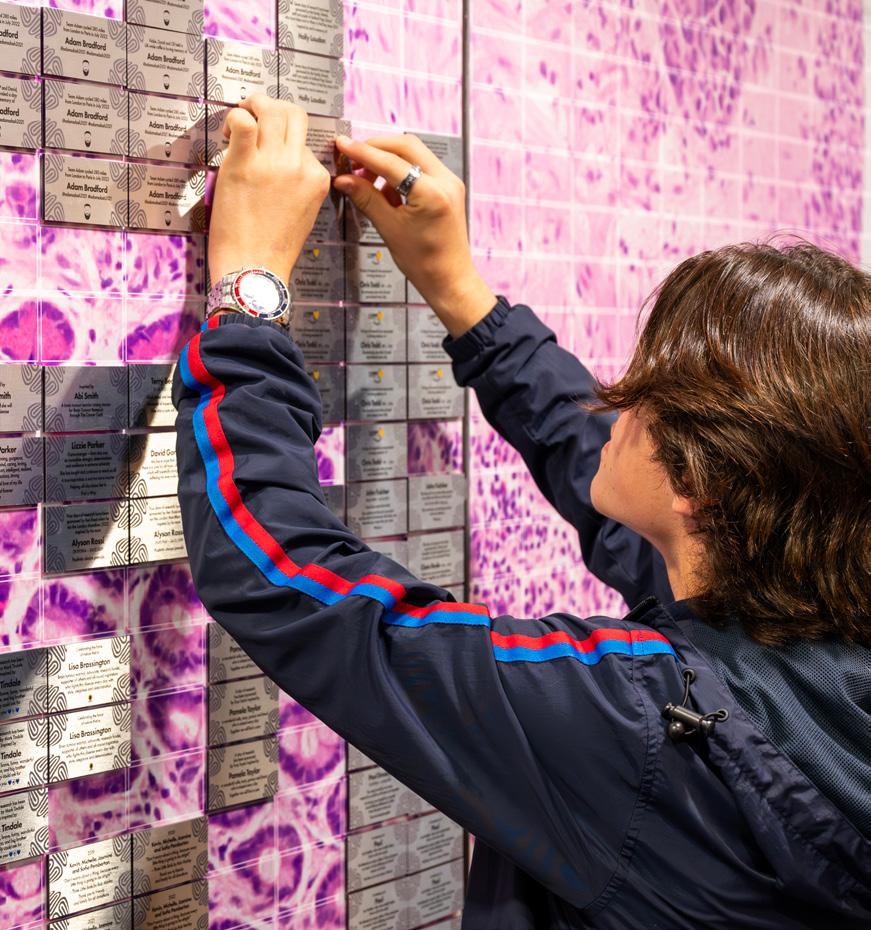
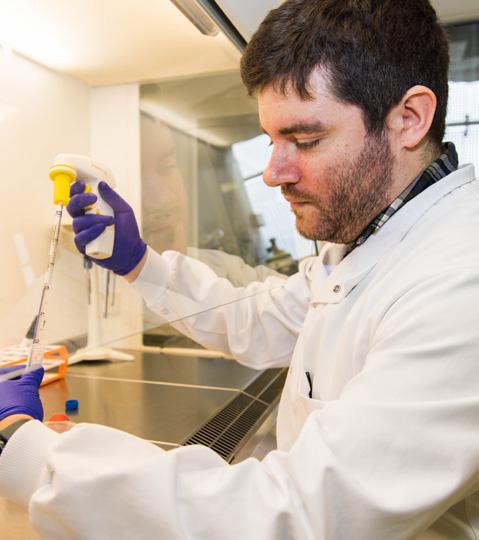
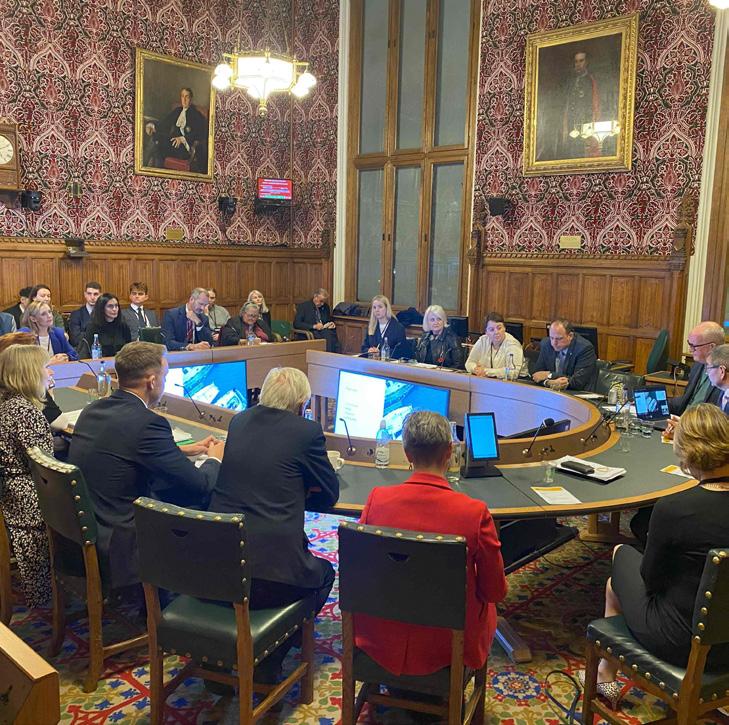
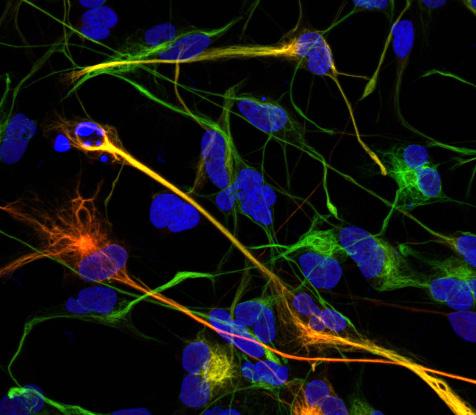


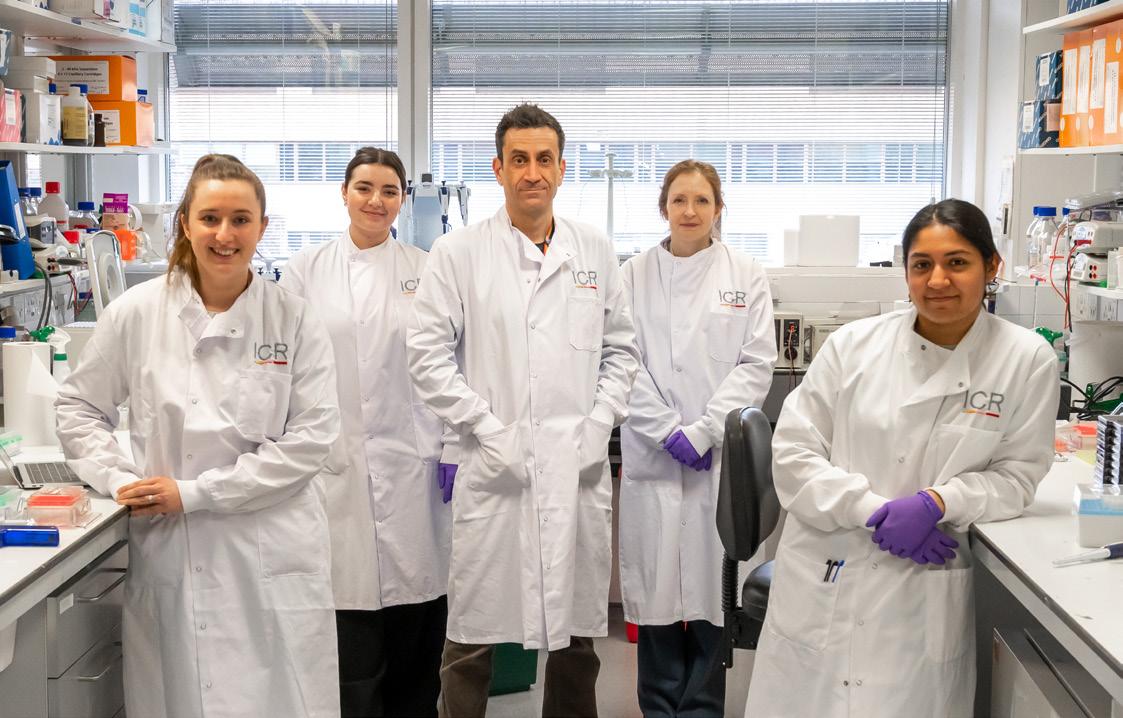
for the Year Ended 30th June 2023
Annual Report and Financial Statements
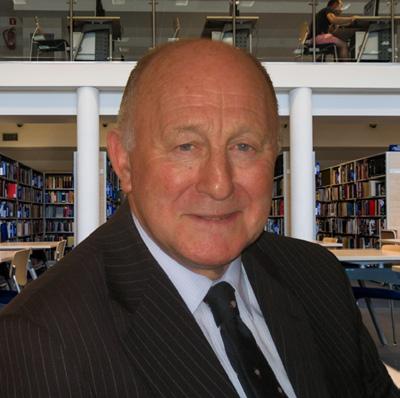

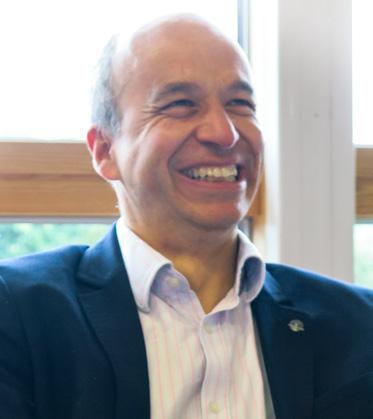
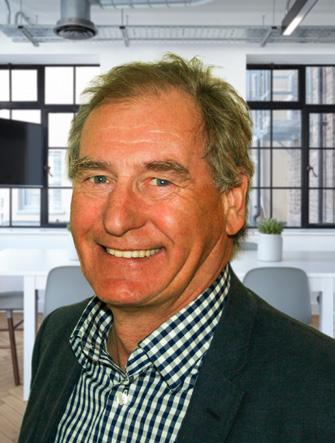
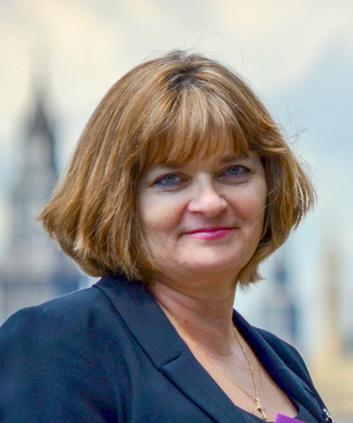
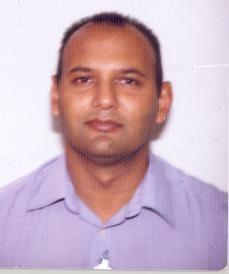
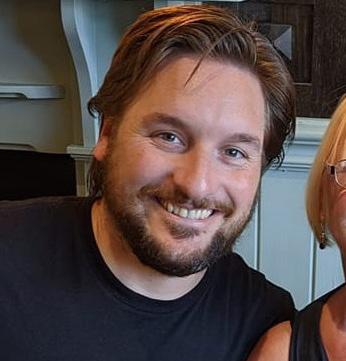
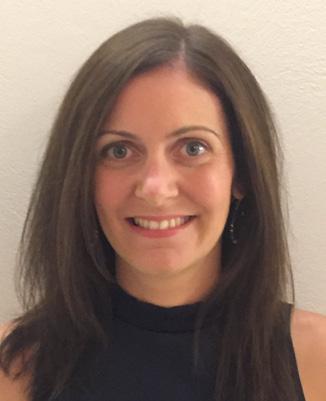
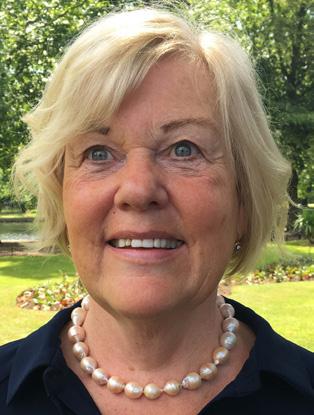
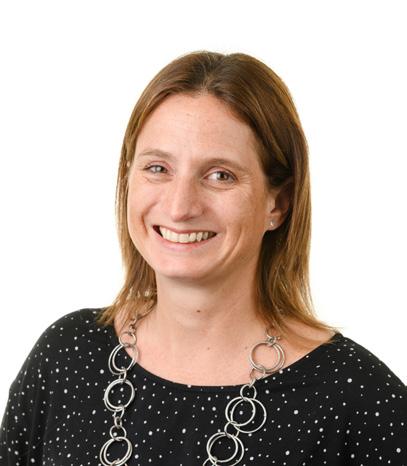
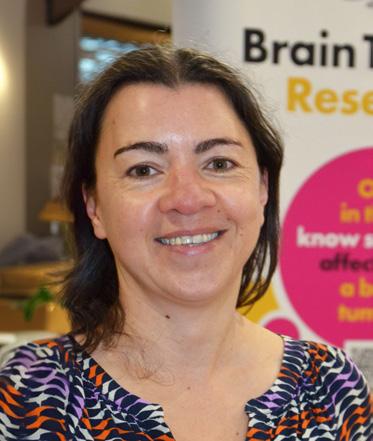
Reference and Administrative Information
Registered Charity Number 1153487 (England and Wales).
Registered Charity Number SC046840 (Scotland).
Registered Company Number 08570737.
Registered Office and Headquarters: Suite 37, Shenley Pavilions, Chalkdell Drive, Shenley Wood, Milton Keynes MK5 6LB
Telephone number: 01908 867200
Website: www.braintumourresearch.org Email: info@braintumourresearch.org
Contents
Reference and Administrative Information
Chairman’s Report
Chief Executive’s Report
Scientific and Medical Advisory Board Report
Report of the Trustees

Trustees
Wendy Fulcher (Chairman)
D M Sandy Saunders BEM RD (President)
Rob Hughes (Deputy Chairman)
Jeremy Aron
Nigel Boutwood
Sue Farrington Smith (appointed 1st July 2023)
Sukanta Ghosh
Jack Goodwin (appointed 1st August 2023)
Jessica Ranft (resigned 9th February 2023)
Denise Sefton (appointed 1st August 2023)
Margaret Stockham Turner PhD (resigned 31st July 2023)
Dr Nicola Haines (appointed 1st November 2023)
Bank
Nat West, 1 Penn Road, Beaconsfield, Bucks HP9 2PU
Leadership Team
Auditors
Sayer Vincent LLP, Invicta House, 108-114 Golden Lane, London EC1Y 0TL
Chief Executive – Sue Farrington Smith MBE (resigned 30th June 2023)
Chief Executive – Daniel Knowles (appointed 18th September 2023)
Deputy Chief Executive and Director of Finance and Operations –Ashley Bailey ACMA
Director of Marketing and Communications – Andrea Abbis
Director of Research, Policy and Innovation – Dr Karen Noble
Director of Income Generation and Development – Russell Marriott
Scientific and Medical Advisory Board
Professor Garth Cruickshank
MBBS PhD FRCS(Ed), FRCS (Eng), FRCS(SN) (Chairman)
Dr Verena Amberger-Murphy
Dr Neil Kad
Dr Sean Lawler
Professor Steven M. Pollard
Professor Dr Paolo Salomoni
Dr Khalid Shah
Statement of Financial Activities Balance Sheet Statement of Cash Flows Notes to the Financial Statements 2 3 5 6-7 8-27 28-29 30 31 32 33-45
Independent Auditor’s Report
Margaret Stockham Turner PhD
Jack Goodwin
Rob Hughes Co-Founder (Deputy Chairman)
Sukanta Ghosh
Sue Farrington Smith MBE Co-founder
Nigel Boutwood Co-Founder
Jeremy Aron
DM Sandy Saunders BEM RD Co-Founder (President)
Jessica Ranft
Denise Sefton
Dr Nicola Haines
Chairman’s Report
The strong Leadership Team that was put in place during 2022/23 has been able to weather the storm of economic uncertainty and delivered £6.5 million income and further strengthened free reserves to £1.9 million.
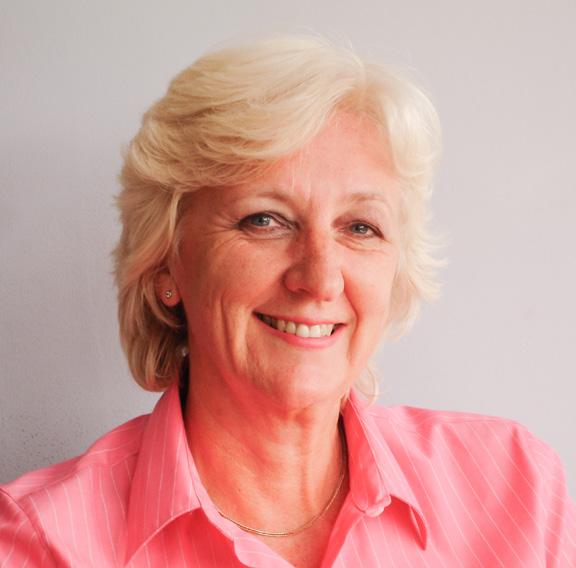
The Board of Trustees and I give particular thanks to our Deputy Chief Executive, Ashley Bailey (Director of Finance and Operations) for stepping up and holding the fort while our Chief Executive, Sue Farrington Smith MBE was on long-term absence undergoing treatment for and recovery from cancer.
During the year, Jess Ranft resigned as a Trustee following the birth of her baby and for personal reasons, Margaret Stockham Turner decided not to stay on for a third term. We thank them for their valuable contributions and wish them well.
Following a review of succession planning for the Board, we decided to recruit further Trustees to fill the skill gaps and were delighted to appoint Sue Farrington Smith MBE with effect from 1 st July 2023 and both Jack Goodwin and Denise Sefton with effect from 1 st August 2023.
During our annual Away Day, the Board reviewed the Governance Code and were pleased with our performance, identifying some areas of improvement which we are working towards.
The Leadership Team revisited the 2025 strategy and produced our 2026 strategic plan as part of the budgeting process which will underpin our plans for the next three years.
Following Sue’s retirement as Chief Executive, we underwent an extensive search to find her replacement and are pleased that Dan Knowles joined us on 18 th September, having been CEO of Oxfordshire Mind for the last seven years, where he oversaw a period of significant growth. He started his career in strategy consultancy and has worked with corporates including Pepsi and John Lewis.
I would like to take this opportunity to thank Sue for her dedication and commitment since founding the Charity in 2009. During her time the Charity has raised £43 million, established five Brain Tumour Research Centres of Excellence, raised awareness beyond our dreams, built and led a highly successful All-Party Parliamentary Group on Brain Tumours and become the leading voice for the brain tumour community: in Parliament, across social media channels and through national, regional and online media. Furthermore, the national investment in brain tumour research has increased to £17 million a year, compared to less than £1 million when she and her family lost her sister’s little girl Alison Phelan in June 2001.
Despite the current economic climate, we anticipate being able to continue our growth strategy with the support of Dan and the Charity’s committed team, Board of Trustees and the continued loyalty of our supporters.
Together we will find a cure.
 Wendy Fulcher, Co-Founder and Chairman
Wendy Fulcher, Co-Founder and Chairman
Brain Tumour Research – Registered Charity 1153487 (England and Wales) and SC046840 (Scotland). 3 Company Limited by Guarantee 08570737. Report of The Trustees and Accounts, Year Ended 30th June 2023
income
in an uncertain economic climate Capital
strengthened to £1.9m
£6.5m
delivered
reserves were
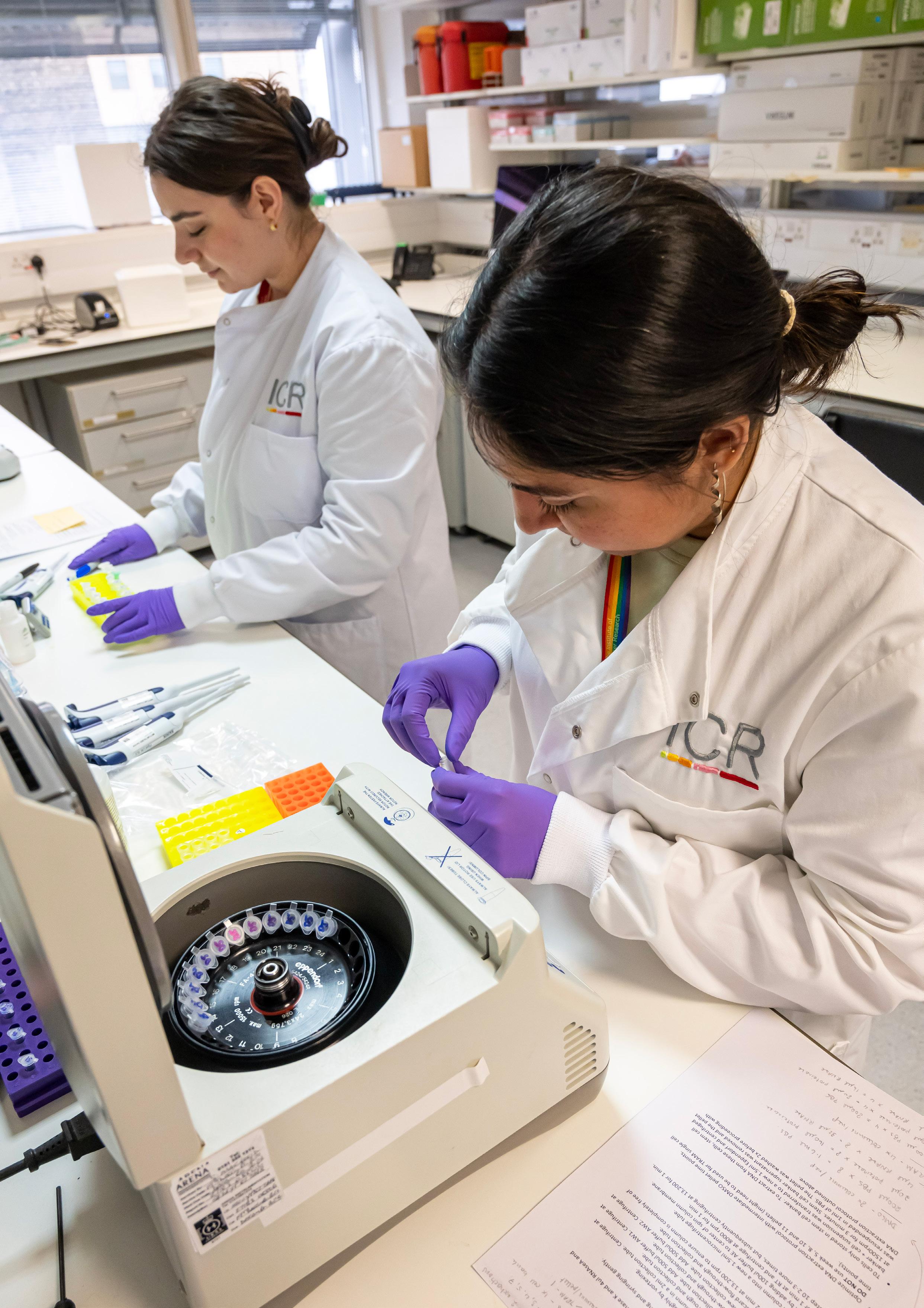
4 Brain Tumour Research – Registered Charity 1153487 (England and Wales) and SC046840 (Scotland). Company Limited by Guarantee 08570737. Report of The Trustees and Accounts, Year Ended 30th June 2023 Our newest Centre of Excellence at The Insitiute of Cancer Research OUR VISION To find a cure for all types of brain tumours OUR MISSION To increase the UK investment in brain tumour research Values: Focused, Influential, Embracing, Game-changing and Intelligent
Chief Executive’s Report
In the midst of a challenging economic environment, impacting both fundraising and our ability to recruit as quickly as we had planned, we were pleased to deliver £6.5 million income for the year ending June 2023. This was 13% down on the previous year (£7.5 million) which had benefited from a single donation of £1 million.
What’s more, we were able to make our highest ever grant awards of £3 million during the year, up 10% on last year. We finished the year with £1.9 million free reserves, up 36% on the previous year.
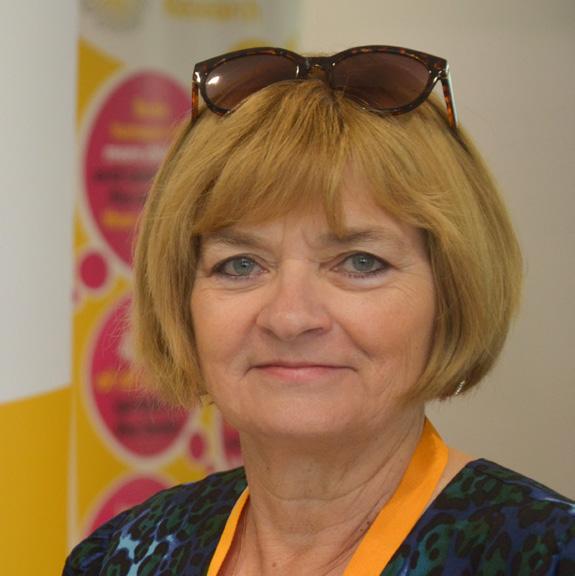
The Leadership Team has focused on diversifying our income streams, building the foundations, and growing the pipelines for corporate, trust and foundations and major donors. We remain confident that we will achieve our strategic income growth in the medium term.
Our campaigning to increase the national investment in brain tumour research has gone from strength to strength. We published the All-Party Parliamentary Group on Brain Tumours (APPGBT) inquiry report, Pathway to a Cure – breaking down the barriers, in March 2023 to much acclaim, having identified that the current funding system is not fit for purpose. This was followed by the first ever business debate on brain tumours in the House of Commons.
Highest ever grant awards of £3m Published the APPGBT inquiry report Pathway to a Cure
In March we were also delighted to announce the establishment of our fourth Brain Tumour Research Centre of Excellence at the Institute of Cancer Research, following a successful application and international peer review process, which also identified two further Centres that were highly fundable. The new Centre will generate laboratory data to support new clinical trials and will span the gap between basic biology and clinical benefit for children and young adults with high-grade glioma.
Our ever-growing loyal supporter base continues to inspire us with their fundraising efforts and willingness to share their stories and raise awareness. We now communicate with more than 85,000 people who have opted in to receive our communications, as well as more than 180,000 followers on social media. We are indebted to each and every one of our amazing fighting force of supporters.
It is with much sadness that I decided to retire as Chief Executive on 30 th June 2023, having been diagnosed with low-grade abdominal cancer, followed by extensive surgery in September 2022. In the interest of the Charity and its future growth and for the sake of my family, I am therefore stepping down but am delighted to be able to continue to serve the Charity as a Trustee.
I look forward to working with Dan Knowles as the incoming Chief Executive; he is supported by a strong Leadership Team and an amazing workforce.
Together we will find a cure.
Sue Farrington Smith MBE, Co-Founder and Chief Executive
180,000 social followers
85,000 opting in to hear more from us
Brain Tumour Research – Registered Charity 1153487 (England and Wales) and SC046840 (Scotland). 5 Company Limited by Guarantee 08570737. Report of The Trustees and Accounts, Year Ended 30th June 2023
Scientific and Medical Advisory Board Report
This has been an exciting year for Scientific and Medical Advisory Board (SMAB) members as we see our efforts to accelerate impact of the Charity on growing the scientific brain tumour community, take a leap forward. Most funding organisations only provide money for programmes or periods of time for specific projects. At Brain Tumour Research we have always felt that this was not enough, and that we must also build up the research community and encourage existing researchers to join us, and young researchers to stay with us in this vital task. The approach we have taken is to focus our funding into several research Centres of Excellence.
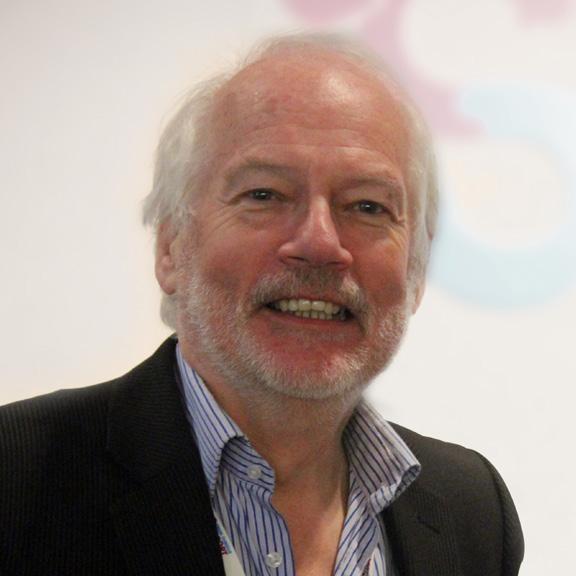
Eleven new Centre applications
Through the three established Centres (Plymouth, Queen Mary, Imperial College) we have not only supported the development of excellent research, but also enabled established researchers to have the time and space to grow their ideas, and crucially to nurture postgraduate researchers to become advocates for brain tumour research in the future. Based on the huge success of this approach, we were tasked by Brain Tumour Research to see if there were other UK research groups who recognised this Centre approach to funding, and who could step up to the standards of Quality, Feasibility and Novelty that would offer a real opportunity to see advances to cure brain tumours. We were to receive 11 very high-quality applications.
We had a hard but fascinating task in selecting Professor Chris Jones’ team at the ICR as our new Centre from these. Not only did this team fit all our criteria but also demonstrated some very exciting and realistic new possibilities for treatment using for example targeted protein degradation, techniques that might offer treatments to a wide range of brain tumour patients. We were very impressed with the overall quality of all the applications, so much so, that we have entreated the Charity to continue discussion with close runners-up to think about further Centres as soon as possible, funding permitting.
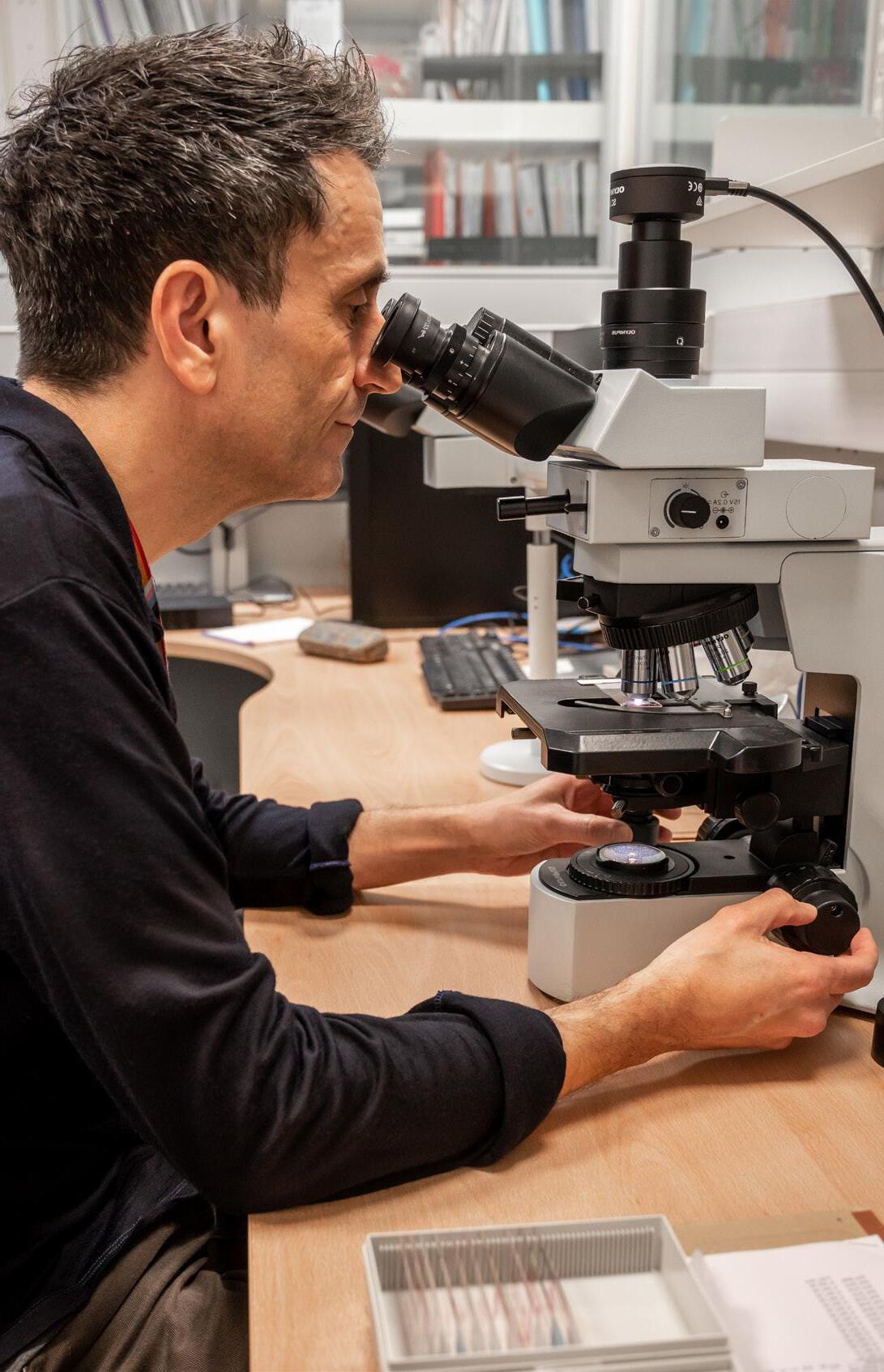
We have of course continued with our formal responsibilities to review and assess the performance of our Centres and other funded initiatives. In these reviews we receive reports from each on the progress of research. We look at the research output publications, funding success, training structure and host support, amongst other quality measures. Through this process we are able to bring our expertise to help the Charity plan its approach.
As one of our funded initiatives, we reviewed the exemplary work of BRAIN UK that provides a remarkable service to facilitate all researchers access to nearly 200,000 tumour samples and can lay claim to providing the material for the publication of more than 60 high-impact factor publications to date.
Collaboration is a vital part of research but also a vital responsibility, especially where we have the opportunity to leverage our funding power. We were therefore delighted to partner with the MRC in funding an important project in Cardiff into ‘super sponges’, a novel drug delivery system for use after resection surgery.
Nearly 200,000 tissue samples accessed by researchers
6 Brain Tumour Research – Registered Charity 1153487 (England and Wales) and SC046840 (Scotland). Company Limited by Guarantee 08570737. Report of The Trustees and Accounts, Year Ended 30th June 2023
Professor Chris Jones
The Charity has been working to address the concerns of the scientific community about the quality and focus of research funding applications. We recognise the need to ensure the feasibility as well as the quality of research into brain tumours whilst realising the unique difficulties these researchers have to face. The Brain Tumour Research Novel Therapeutics Accelerator (run by the Tessa Jowell Brain Cancer Mission) is an example of this commitment to both the funding community and to researchers, to provide a comprehensive world-class forum to increase the success of applications in accessing funding.
The first round of this process has now begun and reflects the urgency with which we take our responsibility to hasten the research process towards clinical trials for all brain tumour patients.
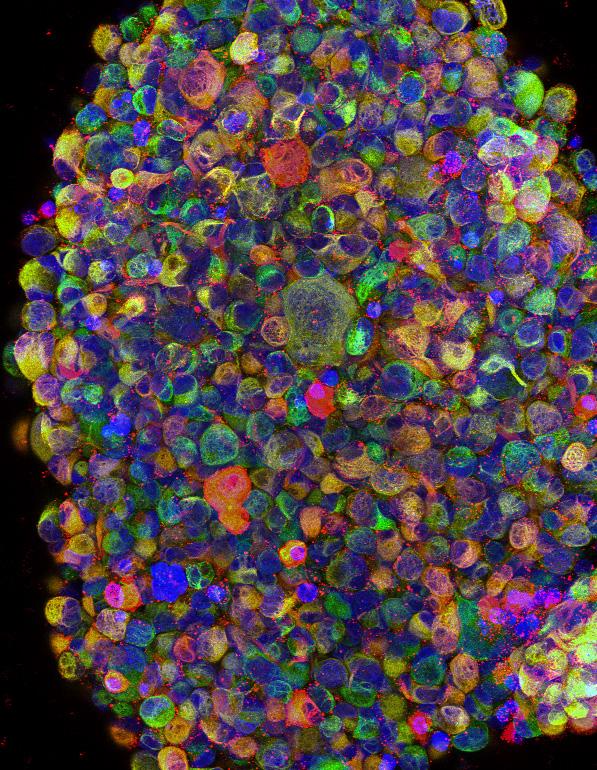
Making trials safe for patients is an absolute requirement when designing clinical trials. However, this alone is not enough. We also need to ensure that patients’ voices are heard early on in the design of trials to help researchers maximise recruitment, ensure safety and acceptability and demonstrate applicability. To this end we have extended our support to the braintrust’s PRIME project, which is now an essential component of protocol design and trials management, ensuring that we can grow the number of brain tumour patients able to take part in trials.

MBBS PhD FRCS(Ed), FRCS (Eng), FRCS(SN) Chairman, Scientific and Medical Advisory Board
New funding granted for exciting research in Wales
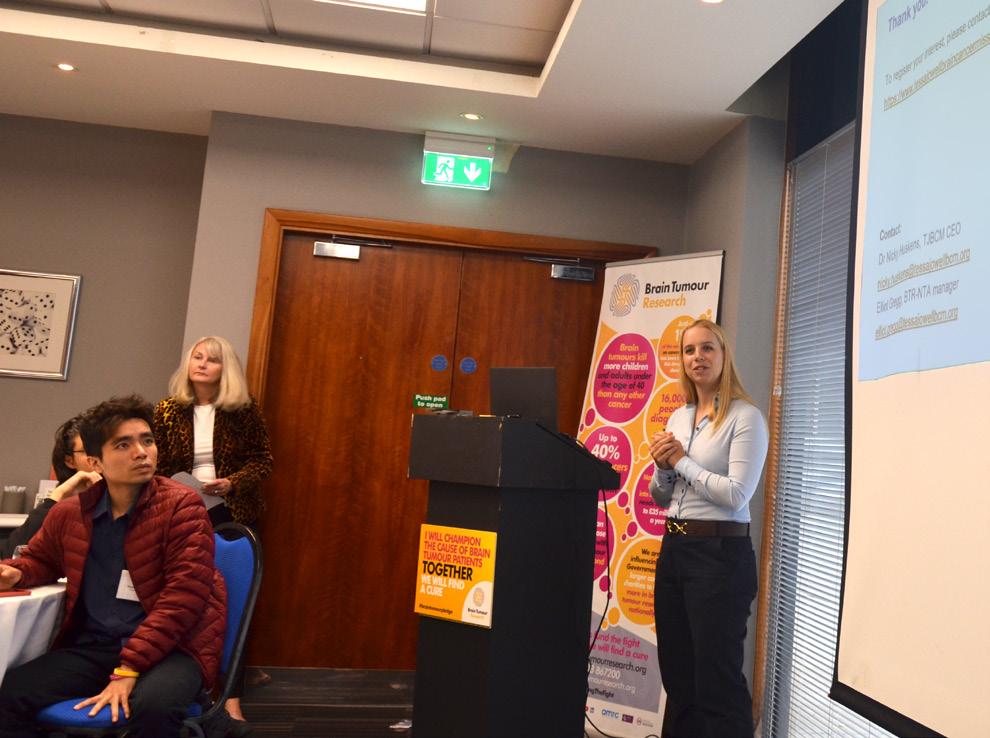
Dr


Brain Tumour Research – Registered Charity 1153487 (England and Wales) and SC046840 (Scotland). 7 Company Limited by Guarantee 08570737. Report of The Trustees and Accounts, Year Ended 30th June 2023
Nicky Huskens, CEO of the The Tessa Jowell Brain Cancer Mission presenting at our Annual Researcher Workshop Paediatric glioblastoma (GBM) neurosphere – credit Institute of Cancer Research
Trustees’ Annual Report
The Trustees of Brain Tumour Research, who are also directors of the Charity for the purposes of the Companies Act, present their Annual Report and audited financial statements for the year ended 30th June 2023
Objectives and Activities
Our Aims
Our vision is to find a cure for all types of brain tumours, and our mission is to increase the UK investment in brain tumour research and build a network of experts in sustainable brain tumour research. We work with Parliamentarians to raise awareness about brain tumours and to influence national cancer policy at the highest levels as we campaign to increase national investment for research into this devastating disease to £35 million per annum and bring parity with other cancers such as breast and leukaemia.
We believe that with sustainable long-term funding, we can build capacity at our Brain Tumour Research Centres of Excellence such that they are able to recruit and train more promising researchers who might otherwise be attracted into other cancer research areas, which have traditionally attracted greater funding and with it, greater prospects and job security. Over time, as specialist brain tumour expertise and knowledge builds, it is our plan that researchers who are experienced and knowledgeable in the field will move between Centres to support ‘cross-pollination’ of the very best thinking at the cutting-edge of brain tumour research.
With a growing ability to build outstanding teams of collaborative researchers amongst the academic and medical communities, we believe our Centres of Excellence are well-placed to develop long-term strategic research plans to explore new avenues and potentially find the key breakthroughs that patients and their families so desperately need.
Each Centre of Excellence is an active partner with Brain Tumour Research. We support these Centres by providing dedicated members of the Charity’s staff with expertise in fundraising, marketing and PR to work at a local and national level. This cooperation and dedication to the brain tumour cause supports and enhances the identity of each Centre as well as that of Brain Tumour Research, providing a dynamic fundraising atmosphere with the goal to help each Centre ultimately raise at least £1 million per year, to support sustainable research.
Our Centres form part of a national network collaborating with each other and other institutes, both within the UK and internationally, in order to accelerate progress in brain tumour research and ultimately make a real clinical difference. We partner with researchers and clinicians who share our vision of a sustainable and secure future for UK brain tumour research. We believe this will help to deliver the better future for all those living with a brain tumour that we are so determined to achieve.
Collaboration is one of our core values and the number of registered charities which have joined forces with us to raise awareness and campaign as one voice numbered 24 at the end of the year. We aim to work with Member and other charities to continually grow the market for brain tumour fundraising in the UK in order to increase the investment into brain tumour research and expand the specialist information and support that our Members provide to those diagnosed with a brain tumour and their families.
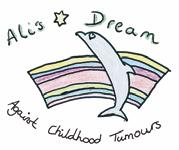
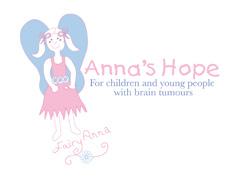
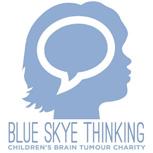
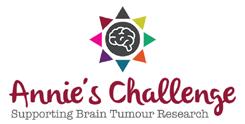
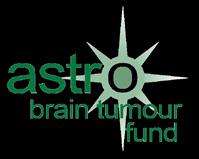
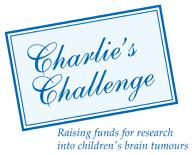



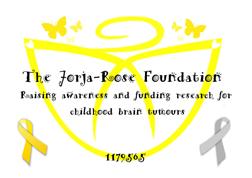
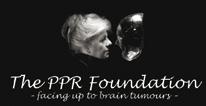
Our Charitable Objects are for the Public Benefit
To assist in the relief of sickness and distress of persons suffering from brain tumours particularly by supporting research projects into the causes and treatment of brain tumours and disseminating the useful results of such research.
The Charity operates throughout England, Wales, Scotland and Northern Ireland.
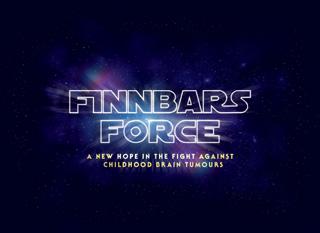

Collaborating with 24 Member Charities –campaigning as one voice
The Trustees have referred to the guidance contained in the Charity Commission’s general guidance on public benefit when reviewing the Charity’s aims and objectives and in planning its future activities. In particular, the Trustees consider how planned activities will contribute to the aims and objectives that have been set.
8 Brain Tumour Research – Registered Charity 1153487 (England and Wales) and SC046840 (Scotland). Company Limited by Guarantee 08570737. Report of The Trustees and Accounts, Year Ended 30th June 2023
Structure, Governance and Management
The Charity is a charitable company limited by guarantee and was originally known as The Diana Ford Trust and registered on 14th August 2002. In 2005, The Diana Ford Trust joined an informal partnership of UK brain tumour charities known as The United Brain Tumour Campaign. In 2008, the Charity formalised this relationship and amended its name, to better demonstrate its objectives, to Brain Tumour Research.
The Trustees who served during the year ending June 2023 were:
Wendy Fulcher (Chairman)
D M Sandy Saunders BEM RD (President)
Rob Hughes (Deputy Chairman)
Jeremy Aron
Nigel Boutwood
Sukanta Ghosh
Jessica Ranft (resigned 9th February 2023)
Margaret Stockham Turner PhD (resigned 31st July 2023)
Members of the Charity guarantee to contribute an amount not exceeding £10 to the assets of the Charity in the event of winding up. The total number of such guarantees at 30th June 2023 was seven (2022: nine). The Trustees are members of the Charity but this entitles them only to voting rights. The Trustees have no beneficial interest in the Charity.
The Remuneration Committee meets to review the remuneration policy and the pay and benefits of the Charity’s employees. The Finance, Audit and Risk Committee meets in accordance with its purpose to assist the Board in its duty to supervise the broad direction of the Charity’s financial affairs and to oversee the audit and risk management processes. The Research Committee meets to consider new programmes, review existing programmes and receive research reports. The Fundraising and Communications Committee meets to protect the brand and ensure that fundraising activities and marketing communications are appropriate and within the law. During the year, we introduced an Investment Committee which is tasked with the evaluation and implementation of investments on behalf of the Board and reporting the results to the Board.
Governing Documents
Declaration of trust made 17th July 2002 as amended 4th April 2008 and 9th December 2008 and Memorandum and Articles of Association dated 14th June 2013.
Appointment, Induction and Training of Trustees
New Trustees are appointed by a resolution of the existing Trustees. In selecting potential Trustees, the Trustees take into account the benefits of appointing a person who through lived experience, residence, occupation, employment or otherwise has special knowledge of the area of benefit or who is otherwise able by virtue of his or her personal or professional qualifications to make a contribution to the pursuit of the objects or the management of the Charity.
Potential Trustees are identified through advertising in relevant publications, recommendations from Member Charities and approaches (informal or formal) to the Charity. They are scrutinised by at least three serving Trustees.
On appointment, all new Trustees receive thorough induction and training, which includes receiving detailed information about the Charity via a Trustee Induction Pack, including its Memorandum and Articles, latest accounts, latest financial reports and minutes of recent Trustees’ meetings. In addition, new Trustees attend an induction process at head office, where they are briefed by the Chief Executive and key staff on all aspects of the Charity’s operations, staffing and organisational management. Trustees are encouraged to attend appropriate external training events where these will facilitate the undertaking of their role.
Management
The Trustees have always sought to develop a professional, well managed and proactive charity in line with good business practice.
Trustees oversee governance, agree strategy and the direction of the Charity, they approve financial accounts, budgets and reserves and approve research grants and risk management policies. The Trustees delegate the day-to-day management of the Charity to the Leadership Team, as referenced on page 3.
Following the continuing success and growth of the Charity, this year saw our focus move to succession planning for key roles throughout the organisation and particularly the Leadership Team. This year, we created the roles of Head of Community Fundraising, Head of Finance and Accounting, and Head of Digital. These roles will be key to delivering a sustainable organisation.
The Key Management Personnel comprise the Trustees and the Leadership Team.
Remuneration Policy
The Trustees are not remunerated. The Charity is committed to ensuring that it pays its employees fairly and in a way which ensures it attracts and retains the right skills to have the greatest impact in delivering its charitable objectives. As such, its principles are to pay a fair salary and offer benefits that are competitive within the charitable sector and the local employment market, as well as affordable, proportionate to the complexity and technical demands of each role, and in line with organisational objectives.
The Charity seeks to offer a competitive package of benefits for all staff as affordability improves. In addition to market-leading holiday entitlement, salaries and healthcare, this year the Charity introduced occupational sick pay for the first time.
The Charity reviews the salaries of all staff annually in July, with the Board of Trustees approving the percentage rates for any baseline or higher rate increases. A salary review does not imply an increase and, in making any pay award, the review will be based on affordability and the Charity’s financial health. The remuneration policy, applicable to all team members, is reviewed annually and the Remuneration Committee oversees its application, providing advice to the full Board.
AGM
The AGM is held at the annual Members’ Workshop – the agenda includes Presentation of the Financial Statements for the prior year, a verbal update of where the Charity is presently, developments in strategy, and a welcome to any new Members and Trustees. This was held virtually again in 2023.
Brain Tumour Research – Registered Charity 1153487 (England and Wales) and SC046840 (Scotland). 9 Company Limited by Guarantee 08570737. Report of The Trustees and Accounts, Year Ended 30th June 2023
Our new CEO Dan Knowles (centre rear) with our Research Centre leads (left to right) Dr Nel Syed and Mr Kevin O’Neill (Imperial); Professor Silvia Marino (Queen Mary); Professor Oliver Hanemann (Plymouth); Professor Chris Jones (ICR)
Operations and Financial Review
Achievements and Performance – Research
In a high-impact year, we launched our fourth Centre of Excellence, granted a net £3 million to research – our largest funding year to date, and partnered with the Medical Research Council (MRC) to fund ground-breaking research at Cardiff University.
Our funding portfolio includes:
•Four Centres of Excellence: Imperial College London, Queen Mary University of London, The Institute of Cancer Research (ICR) and The University of Plymouth
•BRAIN UK: the virtual brain tumour tissue registry based at the University of Southampton
•The Brain Tumour Research Novel Therapeutics Accelerator (BTR-NTA) in partnership with the Tessa Jowell Brain Cancer Mission
•The PRIME initiative in partnership with brainstrust
•‘Super sponge’ project with Dr Ben Newland at Cardiff University in partnership with the MRC
Our wide-ranging portfolio is focused on delivering and enabling high quality research, to deliver on our strategic goals of growing capacity, building infrastructure and accelerating treatments, all vital to achieve our vision – a cure for brain tumours.
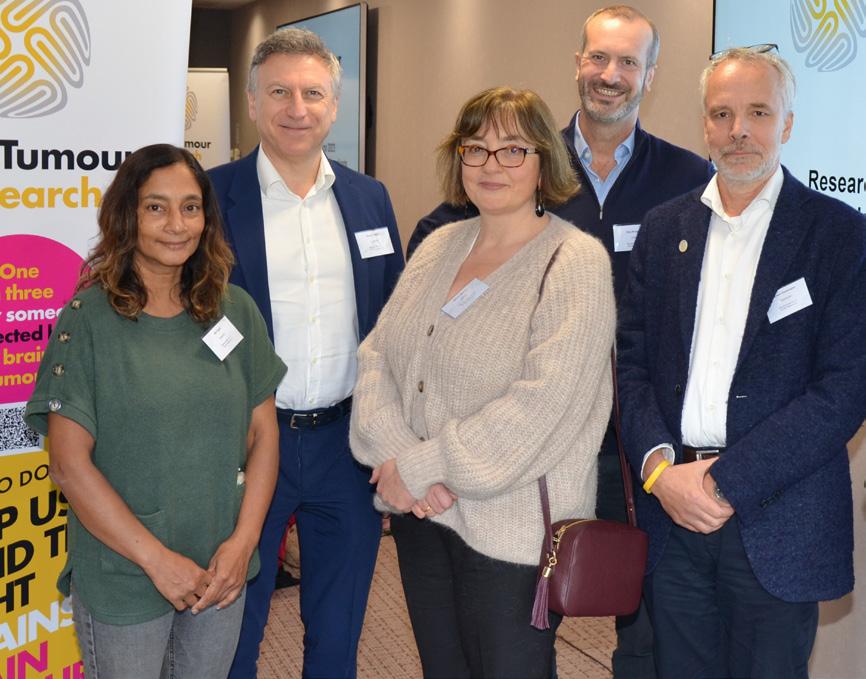
Director of the Centre, Professor Chris Jones, and his team, will identify, assess, and validate new therapeutic targets, generating the laboratory data needed to support the launch of new clinical trials. Their work spans the gap between basic biology and clinical benefit for children and young adults with high grade glioma.
“This Centre will act as an international hub for the development of new treatments for children and young adults with these terrible brain tumours. Improving outcomes for those affected with these types of tumours is crucial if we are to make progress and bring much-needed hope to so many.”
– Dr Karen Noble, Director of Research, Policy and Innovation
Funding in Wales
A new technique to deliver drugs directly to the brain following surgery for glioblastoma (GBM) is now being researched thanks to a funding partnership between Brain Tumour Research and the MRC.
The project award of £500k will see Dr Ben Newland at the School of Pharmacy and Pharmaceutical Sciences at the University of Cardiff, Wales, working to develop an innovative surgically implanted drug-delivery system which represents a “paradigm shift” in treatment for this most common and deadly brain tumour type in adults.
The grant is the Charity’s first significant investment in Wales and our first such partnership with the MRC. Dr Newland’s project was awarded following an MRC sandpit event where multidisciplinary academic experts got together to design innovative new projects to address cancers of unmet need.
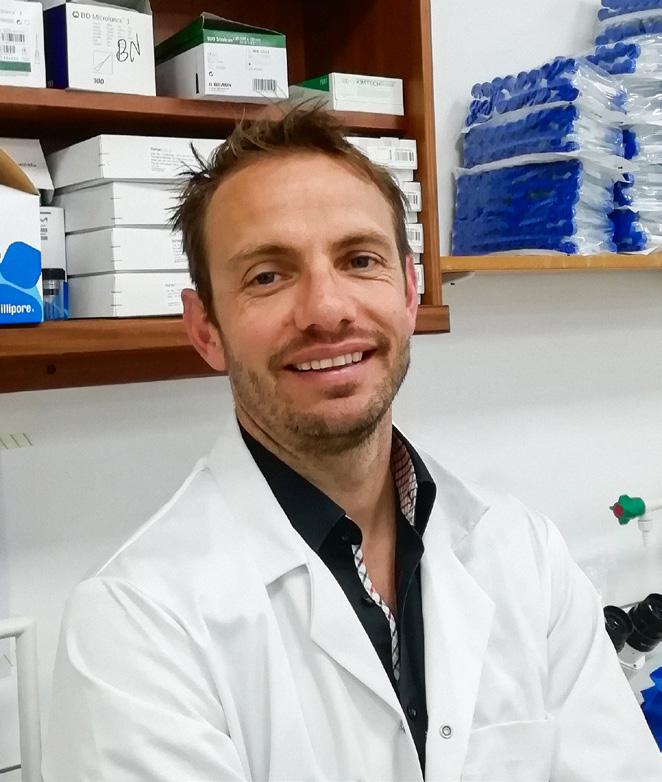
Dr Ben Newland
Total Research Grants Awarded by Year
New for 2023
Following a competitive and rigorous selection process, we launched our fourth Centre of Excellence at The Institute of Cancer Research (ICR), Sutton, Surrey. The new Centre of Excellence, announced in March 2023, will identify new treatments for paediatric-type diffuse high-grade glioma brain tumours occurring in children and young adults, such as diffuse midline glioma.
Dr Newland said: “This project marks the start of our journey towards a paradigm shift in brain cancer treatment. By creating a new delivery system, we aim to tap into the multitude of existing drugs and unlock their potential to thwart brain tumours. Our team draws together a range of expertise, and we are very excited to undertake this challenge to improve the outcomes for brain tumour patients.”
Annual Researcher Workshop
In October, the Brain Tumour Research fifth annual researcher workshop look place, with nearly 50 researchers attending from our Centres of Excellence, as well as from our funded initiatives. It was the first in-person workshop for a number of years and hosted talks from each of our Centres. This meeting saw Brain Tumour Research-funded scientists furthering their relationship with each other, identifying areas of joint interest and collaboration, and also with us as a charity, to fundraise and campaign.

10 Brain Tumour Research – Registered Charity 1153487 (England and Wales) and SC046840 (Scotland). Company Limited by Guarantee 08570737. Report of The Trustees and Accounts, Year Ended 30th June 2023
3,250k 3,000k 2,750k 2,500k 2,250k 2,000k 1,750k 1,500k 1,250k 1,000k 750k 500k 250k 0 Financial
Total
2011 2012 2013 2014 2015 2016 2017 2018 2019 2020 2021 2022 2023
Year Ending
spend on research (£)
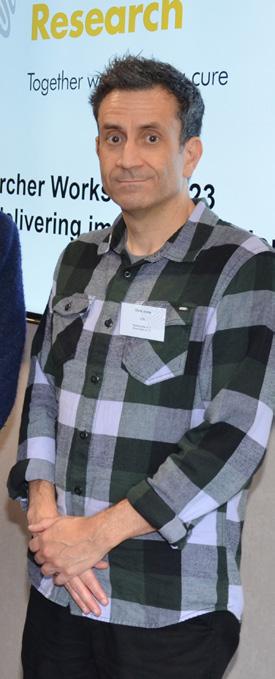
Research Strategy
Brain Tumour Research is dedicated to funding continuous and sustainable scientific research into brain tumours. This is vital if we are to achieve our vision of finding a cure for brain tumours and building a network of experts in sustainable brain tumour research.
Our research aims are:
•Grow capacity – attract and retain talented researchers to increase the quantity of brain tumour research in the UK
•Build infrastructure – support the research infrastructure, connecting and improving coordination across the UK brain tumour research community
•Accelerate treatments – improve the quality of brain tumour research in the UK and support innovative research to generate new treatments for brain tumours
Our Centres provide an environment where the most promising scientists are provided with the experience and opportunities for career development needed in order to fulfil their performance potential. This facilitates the development of a strong neuro-oncology research base in the UK and encourages researchers to remain in the brain tumour field rather than being tempted away into other areas of cancer research that currently attract greater funding.
Our longer-term sustained funding is also strengthening researchers’ applications for project and career-development grants from larger funding bodies such as the Medical Research Council (MRC), the National Institute for Health Research (NIHR) and Cancer Research UK, with increasingly successful grant applications being enjoyed across our Centres.
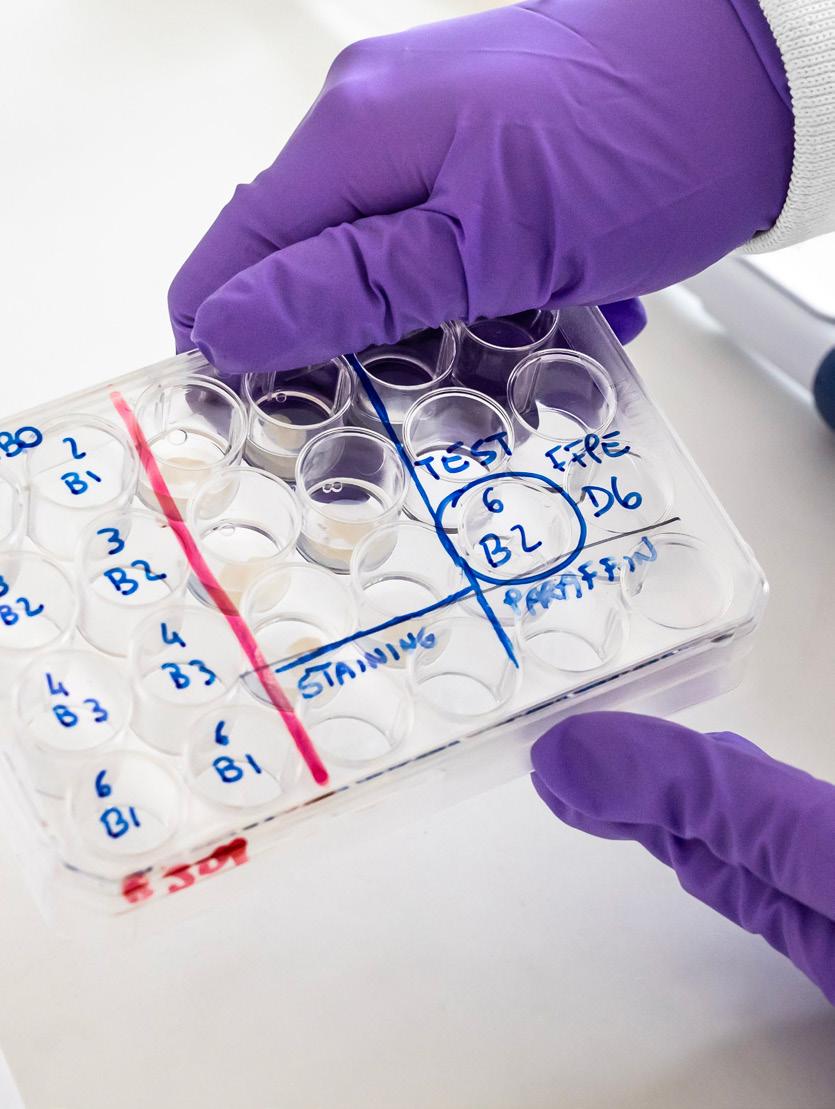
By building outstanding teams of collaborative researchers within the academic and medical communities, our Centres of Excellence facilitate the development of long-term strategic research plans to explore promising new avenues. As the critical mass of high-quality scientists builds, our Centres are attracting outstanding researchers from across the globe, bringing with them expertise from a wide range of backgrounds whilst simultaneously increasing opportunities for new collaborations. This will bring us closer to finding that key breakthrough that the brain tumour world so desperately needs.
All Brain Tumour Research Centres of Excellence are taken through a rigorous annual review, led by the Scientific and Medical Advisory Board, chaired by Professor Garth Cruickshank. This ensures that we are investing in high-quality, peer-reviewed research that best serves the interests of patients, scientists and clinicians, and provides the best basis for effective clinical trials and eventually new therapies that will bring us closer to a cure for brain tumours. For more information on our research strategy, please visit our website: www.braintumourresearch.org/research-strategy
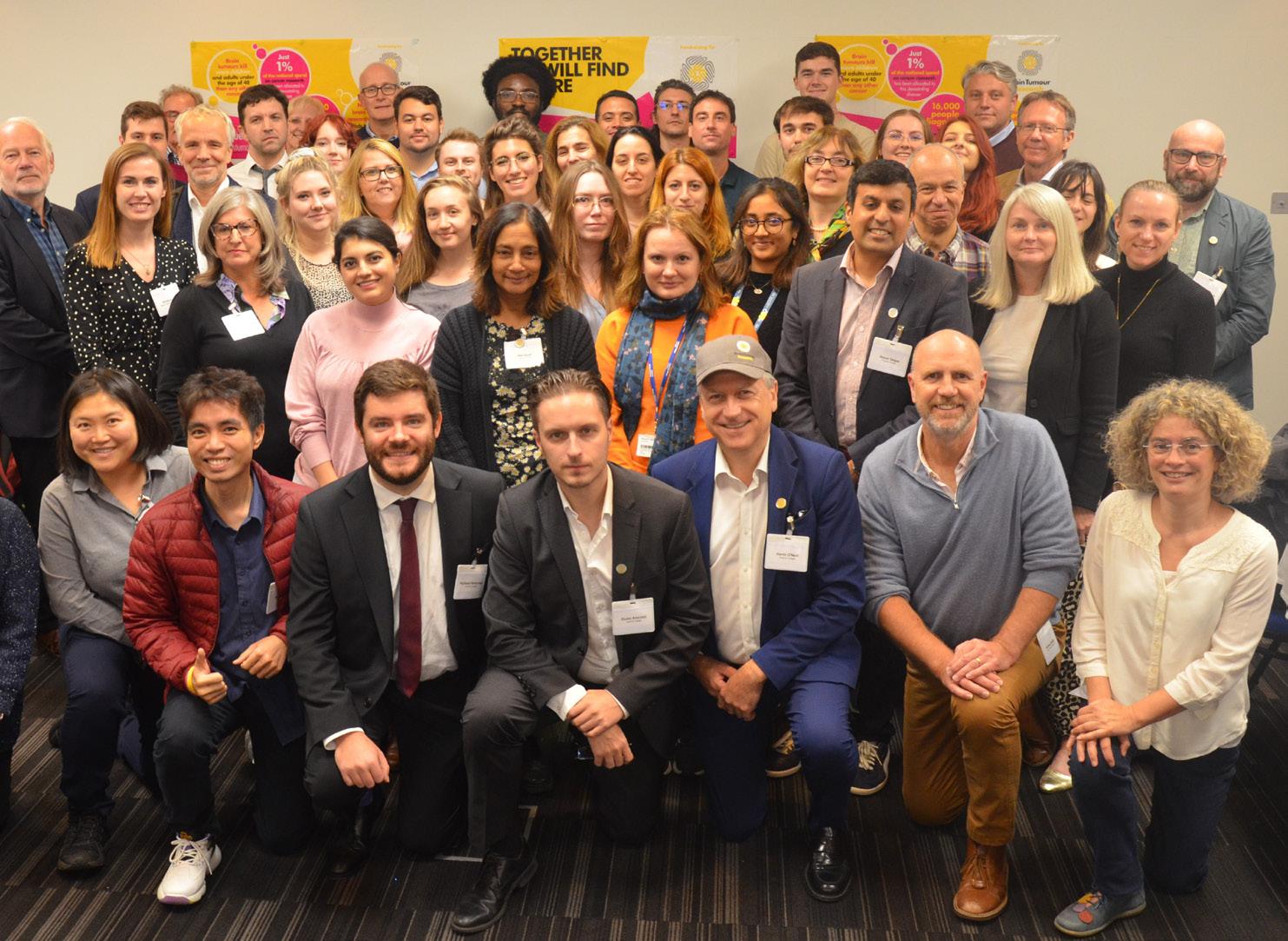
Outstanding attendance at our 2022 Researcher Workshop
Investing in research that best serves the interests of patients, scientists and clinicians
Increasingly successful grant applications being enjoyed across our Centres
Brain Tumour Research – Registered Charity 1153487 (England and Wales) and SC046840 (Scotland). 11 Company Limited by Guarantee 08570737. Report of The Trustees and Accounts, Year Ended 30th June 2023
Preparing brain tumour tissue samples for examination
Operations and Financial Review (continued)
Queen Mary University of London
The research team at the Brain Tumour Research Centre at Queen Mary University of London primarily focus on research into glioblastoma (GBM), the most common aggressive form of brain tumour in adults. The Research Centre is also applying innovative approaches to develop new treatments for childhood tumours such as medulloblastoma and diffuse intrinsic pontine glioma (DIPG) tumours. In 2022/23 the Research Centre attracted £661k of additional funding from external sources, raising their total leveraged funding to £11.9 million since the start of their award.
New Discoveries for 2022-23
This year, the team from the Centre of Excellence at Queen Mary University of London discovered a new subgroup of GBM tumours, increasing our understanding of GBM. The newly identified group of GBM tumours appears to share similar developmental characteristics to the unspecialised neural cells that will ultimately go on to become astrocytes (important non-neuronal cells that are responsible for a wide variety of complex and essential functions in the healthy central nervous system). They found that these astrocytic-like tumours had an increased ability to invade surrounding tissue and contained different proportions of immune cells compared to other GBM tumours. Identifying GBM tumours with these traits could have important implications for patients undergoing treatments which rely on the effectiveness of immune system mechanisms.
Celebrating Brain Tumour Research-Funded Researchers
In order to facilitate sustainable scientific research into brain tumours, it is vital that talented researchers are attracted to, and remain, in the brain tumour research field. As a part of the Queen Mary’s Centre of Excellence Award, early career research training is a key priority. This year the Centre helped early career researchers flourish.
Postdoctoral Researcher Dr Claire Vinel was one of six brain tumour researchers worldwide to be recognised with a Future Leaders Postdoctoral Fellowship award from The Brain Tumour Charity. The award will enable Claire to progress in her career and take the first steps towards being an independent researcher.
Dr Vinel said: “I was fortunate enough to have received support from Brain Tumour Research for several years, which provided me with the necessary time and optimal environment to acquire technical skills, expand my knowledge and establish a professional network. Thanks to the Charity, I am now best placed to grow toward an independent scientist in the field of brain tumours.”
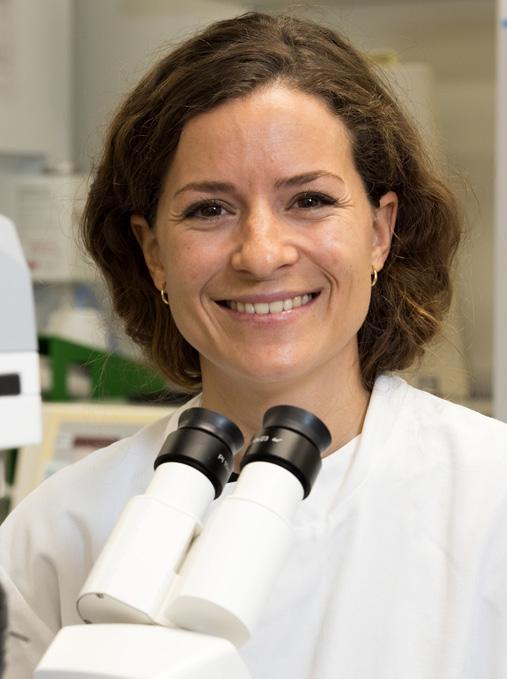
Dr Myrianni Constantinou successfully completed and defended her PhD in 3D cerebral organoids – ‘mini-brains’ that will enable researchers to validate both the functional impact of epigenetic changes in GBM, but also assess their potential to be targeted by therapeutics. Dr Constantinou started at the Centre in 2019, supported by our Member Charity, In Sue’s Name.
Following the success of the Centre and its leveraged funding, the Centre of Excellence at Queen Mary has attracted researchers from other disciplines into the brain tumour field. Dr Sindhuja Sridharan, a systems biochemist, was recruited to a junior Principal Investigator position funded by Barts Charity to begin research into systems proteomics in GBM.
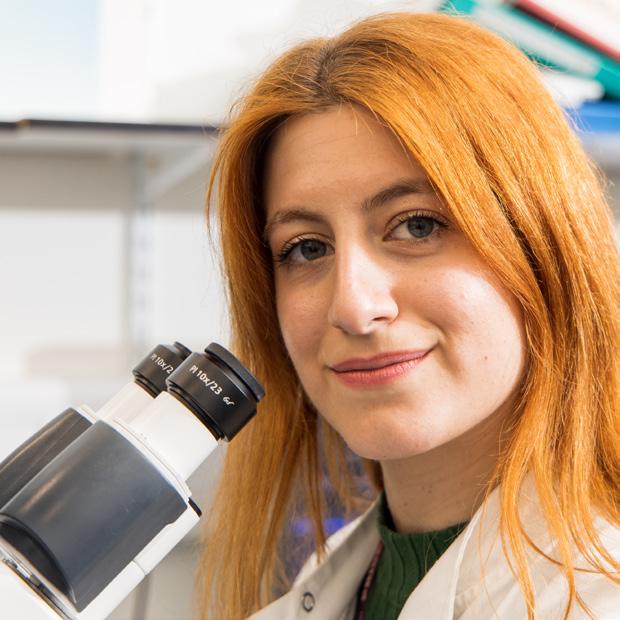

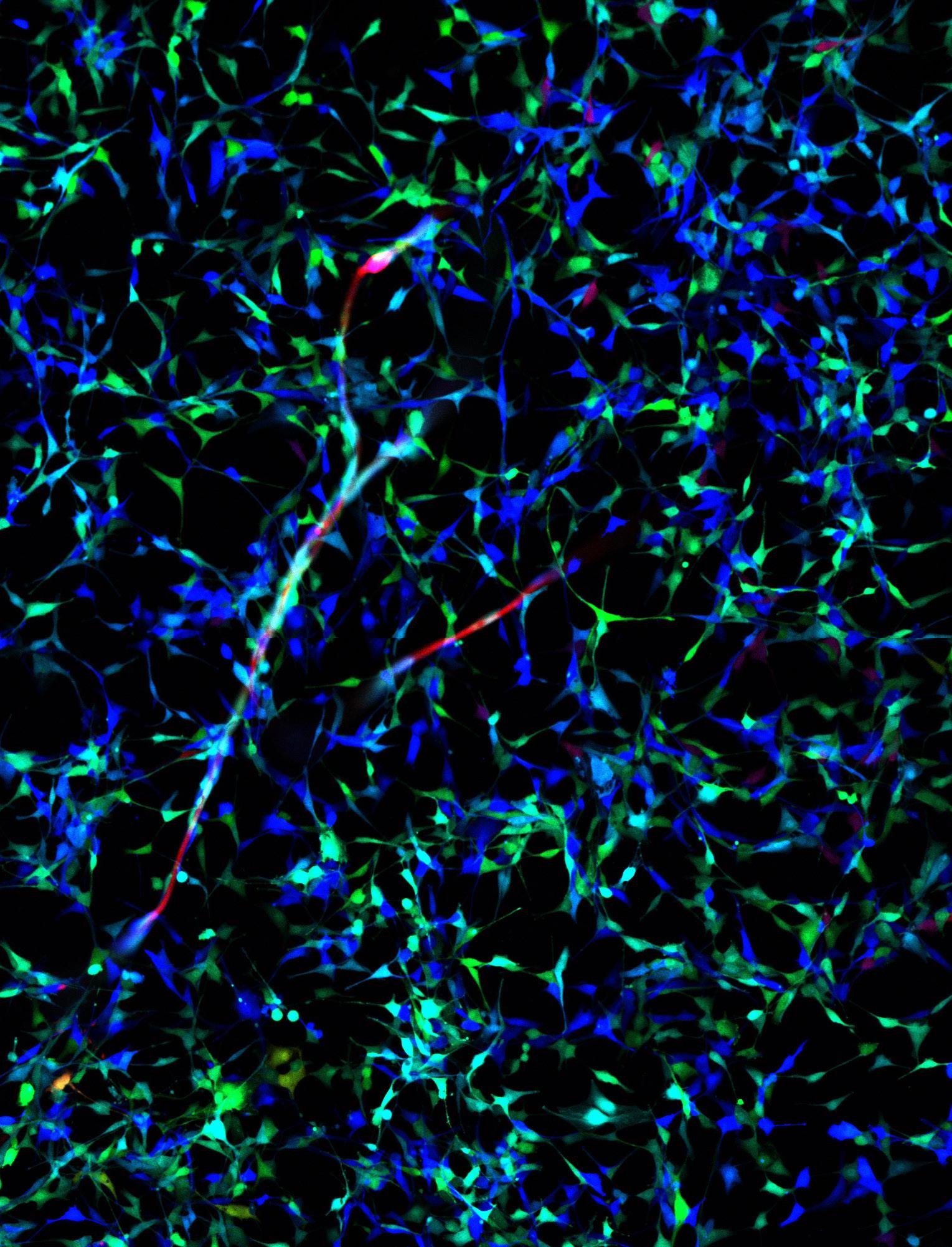 Dr Claire Vinel
Dr Claire Vinel
12 Brain Tumour Research – Registered Charity 1153487 (England and Wales) and SC046840 (Scotland). Company Limited by Guarantee 08570737. Report of The Trustees and Accounts, Year Ended 30th June 2023
GBM cells. Credit: Queen Mary University of London
Dr Myrianni Constantinou
University of Plymouth
The Brain Tumour Research Centre of Excellence at the University of Plymouth is one of Europe’s leading research institutes for low-grade brain tumours. Led by Professor Oliver Hanemann, the Centre incorporates three research teams which are investigating how tumours initially arise, how low-grade tumours develop into higher-grade ones, and novel treatments for tumours related to Neurofibromatosis 2 (NF2) or sporadic NF2 mutations.
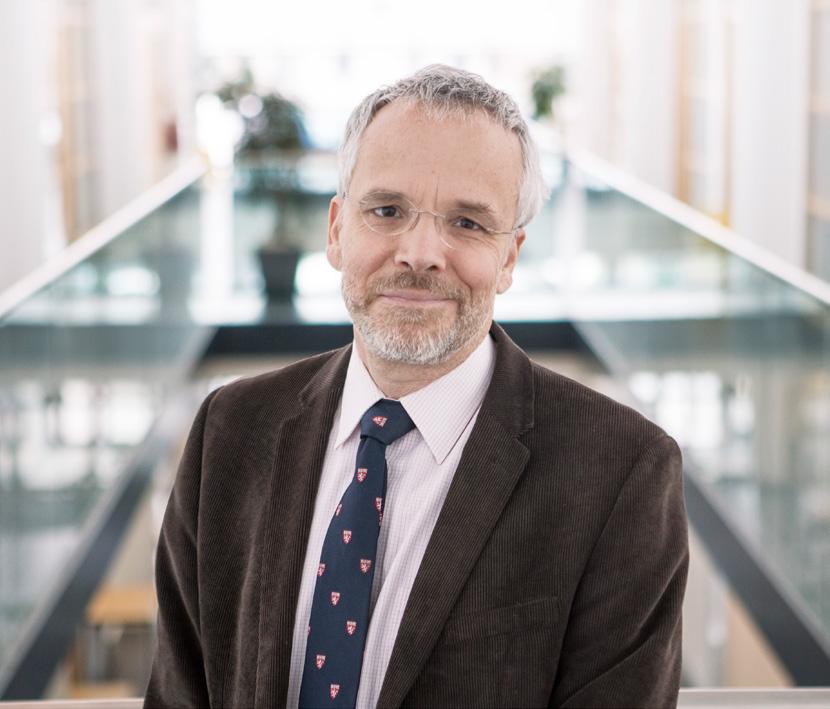
The Research Centre has attracted £1.2 million of additional funding from external sources this year, raising their total leveraged funding to £4.8 million.
New Discoveries for 2022-23
This year, researchers at the Centre of Excellence at the University of Plymouth demonstrated that a serum blood test can both detect and classify meningioma tumours. The work of the team led by Professor Oliver Hanemann was published in the prestigious Journal of Neuro-Oncology
The research team was looking into whether chemicals released from meningioma tumours are present in the blood, and if so, was there scope to develop a blood test to help support the diagnosis and classification process without the need for invasive biopsies. They discovered that two chemicals known as miR-497 and miR-219 were released from meningioma tumours in different quantities to normal cells. They went on to show that these concentrations could be measured in a serum blood test and be accurately linked to the grade of the tumour.
The team is now looking to build on this breakthrough by analysing blood from patients who have had their tumour removed to monitor progression.
In the future, this could mean that meningioma patients may be offered regular blood tests to monitor the progression of their condition and inform treatment decisions, rather than potentially risky and invasive surgical biopsies.
Neurofibromatosis type 2 (NF2) is an inherited disorder characterised by the formation of low-grade tumours such as schwannoma, meningioma and ependymoma. Almost everyone with NF2 develops tumours along the nerves responsible for hearing and balance (vestibular schwannoma).
Professor David Parkinson, Principal Investigator on tumours related to the NF2 gene (also called NF2), and his team (with funding support from the Children’s Tumor Foundation) demonstrated that two drugs, VT1 and VT2, not only stopped the growth of NF2-related vestibular schwannoma (acoustic neuroma) but shrank them.
The work, published in the journal Brain, is a step forward in the development of a non-surgical treatment for NF2 patients who have developed schwannoma tumours, where there are no approved chemotherapies, and surgical removal carries a high risk of damage to surrounding nervous tissue.
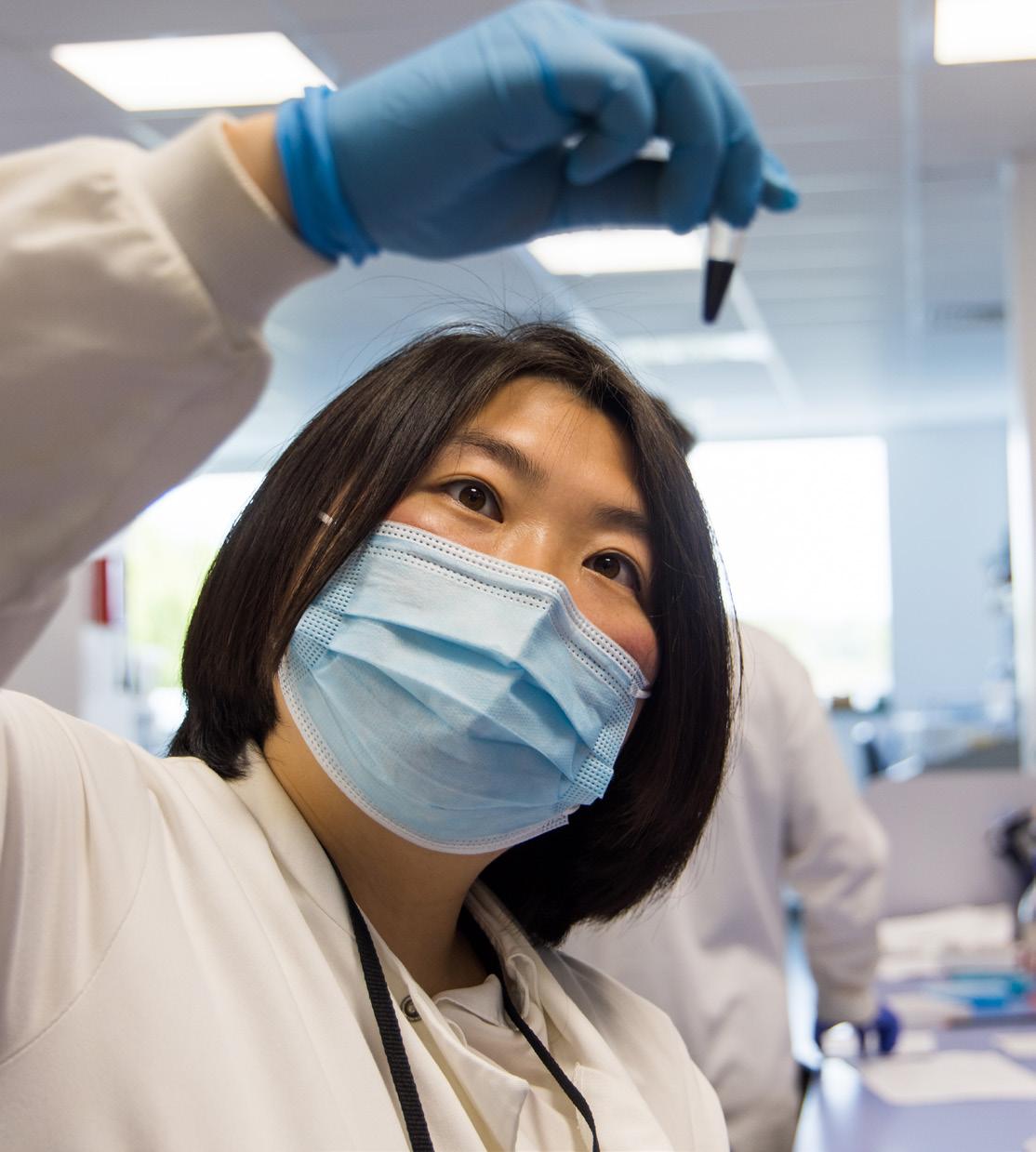
NF2 is caused by a faulty copy of a gene NF2. The faulty gene causes cells to follow a pro-tumour signalling route, leading to tumour formation. Using VT1 and VT2, Prof Parkinson successfully targeted the final stages of this pro-tumour pathway present in neurofibromatosis 2 patients, as well as cells which have sporadically gained an NF2 mutation.
The team is now looking to build on this work by investigating the effect of VT1 and VT2 in NF2-related meningioma.
Dr Karen Noble, our Director of Research, Policy and Innovation, said: “This is a significant step towards a much-needed clinical trial for patients with this currently incurable, aggressive tumour type. There is still a lot of work to do in this area but together we will find a cure.”
Celebrating Brain Tumour Research-Funded Researchers
Leading researcher Dr Mahmoud Labib was recruited to a lecturer position in the Faculty of Health in April 2023 from Northwestern University, USA. Dr Labib has a proven track record in development of cancer diagnostics and therapeutics and will apply his expertise to brain tumour research.
Dr Liyam Laraba, a Research Fellow who completed his Brain Tumour Research funded PhD in 2021, has been awarded first prize in the Distinguished Young Investigator Research Award, Clinician/ Research Scientist category at the Annual Neurofibromatosis Young Investigators Forum, in Houston, USA.
The award recognises the quality of his research and comes with a $5,000 research grant. Dr Laraba said: “I was especially pleased to win a prize which will further my research efforts within the Brain Tumour Research Centre of Excellence at the University of Plymouth.”

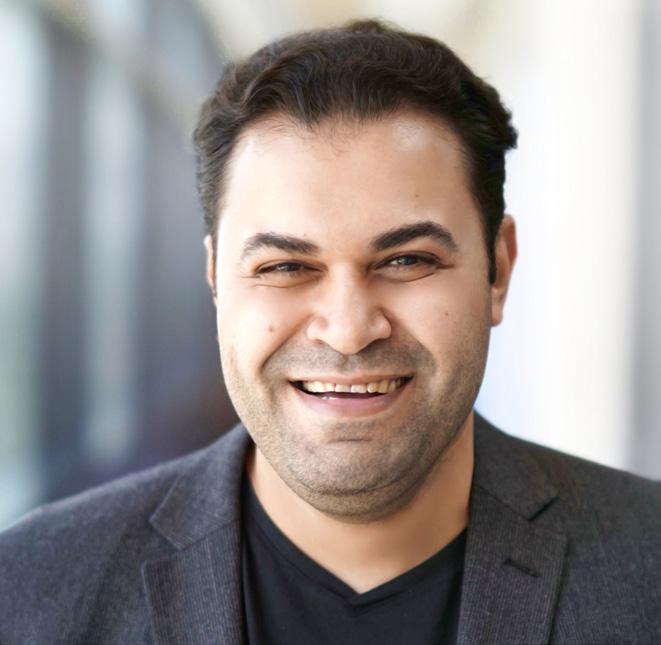
Brain Tumour Research – Registered Charity 1153487 (England and Wales) and SC046840 (Scotland). 13 Company Limited by Guarantee 08570737. Report of The Trustees and Accounts, Year Ended 30th June 2023
Professor Oliver Hanemann
Dr Juri Na, Research Fellow at the University of Plymouth
Dr Mahmoud Labib
Operations and Financial Review (continued)
Imperial College London
The Brain Tumour Research Centre of Excellence at Imperial College, London, has a unique research programme that combines both clinical (surgical interventions) and translational (laboratory) lines of investigation to identify new therapeutic strategies for glioblastoma (GBM) that are directly translatable to the clinic. The close collaboration between the research laboratories at Imperial College London and Imperial College Healthcare NHS Trust, particularly Charing Cross Hospital, places them in a strong position to ensure that basic laboratory science is quickly translated into the clinic where patients can benefit from their cutting-edge research.
In 2022-23 the Research Centre attracted £697k of additional funding from external sources, raising their total leveraged funding to £2.2 million since the start of their award. They have also been at the forefront of clinical trial design and the development of a blood test for
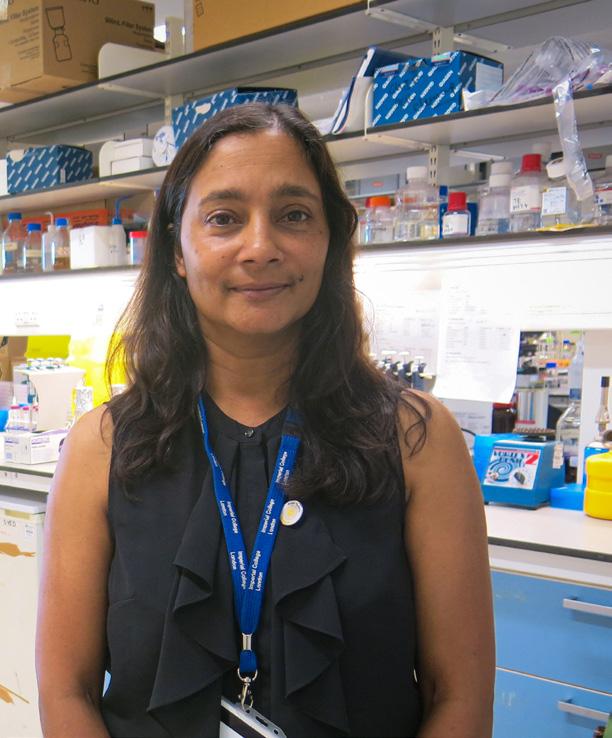
New Discoveries for 2022-23
This year, the Centre of Excellence at Imperial College London took the first steps towards a UK clinical trial for GBM patients. Building on the exciting findings from Dr Nelofer Syed’s research team last year, where the drug ADI-PEG20 was shown to improve the efficacy of radiotherapy, the research team was awarded additional funds to develop a robust protocol for a ‘window of opportunity’ trial.
In the project named WISTERIAN, Dr Matt Williams and the team have been writing the protocol and gathering the additional data required to secure external funding for a clinical trial. The study would see patients treated with the drug ADI-PEG20 in combination with radiotherapy prior to surgery, before continuing down the route of standard care.
ADI-PEG20 depletes arginine – an amino acid which is critical for the growth and survival of human cancers. Results from pre-clinical models suggest that by reducing the supply of arginine, GBM tumours are much more susceptible to radiotherapy. ADI-PEG20 is already in early-stage clinical trials for other cancer types.
This year, the team undertook a blinded study to validate the results for a novel blood test for glial tumours that went on to be granted ‘Breakthrough Device Designation’ by the FDA (U.S. Food and Drug Administration).
The blood test, developed by Datar Cancer Genetics to diagnose brain tumours where a conventional biopsy is not possible, works by isolating tumour cells that have ‘broken free’ from the tumour and circulate in the blood. Pathologists then stain the isolated cells and view them under a microscope to identify the tumour.
Both the laboratory and surgical research teams at the Centre of Excellence at Imperial College worked with brain tumour patients to complete blood tests and undertake tumour biopsies. They classified the tumours using traditional histopathological techniques and results were compared with Datar’s findings from the blood test, named TriNetra-Glio.
The test could help patients who would have traditionally required a brain biopsy but cannot have it due to the tumour being inoperable or inaccessible.
Scientists co-funded by Brain Tumour Research at the Centre of Excellence also identified a new potential target for GBM patients known as angiotensin II type 2 receptor (AT2R).
Discovered in the 1990s, AT2R was already known to play a role in the central nervous system and cardiovascular systems when angiotensin II binds to it. But the scientists, led by Dr Nelofer Syed, have discovered it could also have an important role to play in fighting GBM.
They demonstrated that that when angiotensin II binds to its receptor AT2R, on GBM cells, there is a proliferation and invasiveness of the cancer cells. In studies in the lab, they were able to successfully inhibit tumour growth in GBM by blocking the receptor’s activity using a re-purposed drug called EMA401 which was developed for the management of peripheral neuropathic pain.
The results of the work, which were published in the influential journal PNAS, have identified new potential therapeutic targets for further clinical development.
Celebrating Brain Tumour Research-Funded Researchers
Dr Sophie Morse at the Centre of Excellence has been named by the Women’s Engineering Society as one of the Top 50 Women in Engineering. Dr Morse was given the honour for her work on improving the way drugs are delivered to the brain using non-invasive and targeted ultrasound technology combined with microbubbles.
Dr Morse said: “It means a lot to me that all the passion and time I’ve put into developing this technology to deliver drugs to the brain, while advocating for women so they feel comfortable in engineering, is being recognised. I am so thankful to everyone who has supported, mentored, and encouraged me along the way.”


Imperial College Healthcare NHS Trust 14 Brain Tumour Research – Registered Charity 1153487 (England and Wales) and SC046840 (Scotland). Company Limited by Guarantee 08570737. Report of The Trustees and Accounts, Year Ended 30th June 2023
Dr Sophie Morse
Dr Nelofer Syed

The Institute of Cancer Research
Following a £2.5 million funding call in June 2022, Brain Tumour Research announced its fourth Centre of Excellence at the Institute of Cancer Research (ICR), March 2023, following a competitive review process, bringing fresh hope of a cure for the deadliest of childhood cancers.
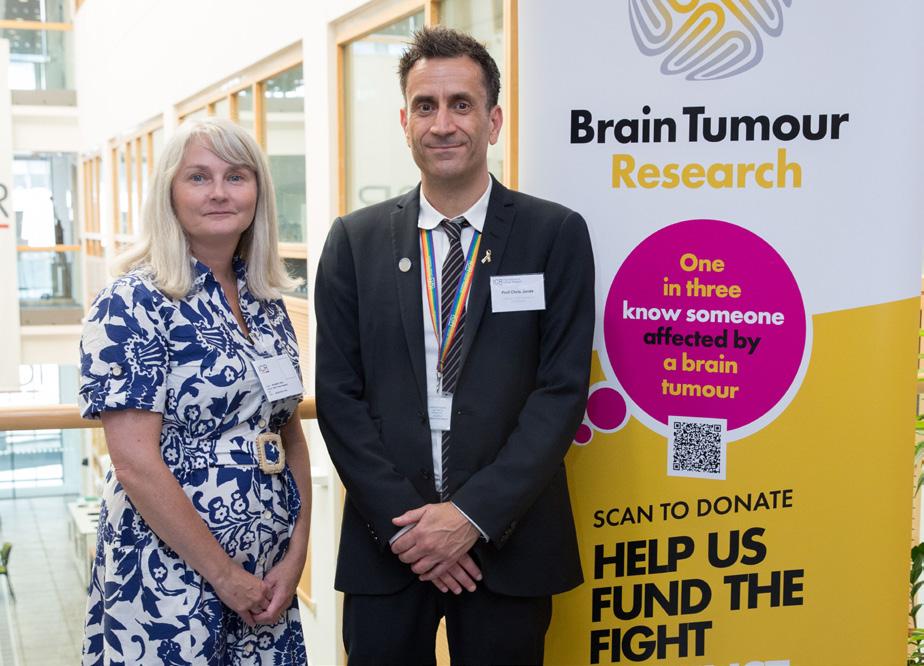
Dr Karen Noble, our Director of Research, Policy and Innovation, said: “This Centre will act as an international hub for the development of new treatments for children and young adults with these terrible brain tumours. Improving outcomes for those affected with these types of tumours is crucial if we are to make progress and bring much-needed hope to so many.”
The new Centre in Surrey is a significant milestone – the Charity’s first Centre dedicated to research into childhood brain tumours. The team led by Professor Chris Jones will use the Centre of Excellence Award to identify new treatments for children affected by paediatrictype diffuse high-grade gliomas (PDHGG), which include diffuse hemispheric glioma (DHG), and diffuse midline glioma (DMG) such as diffuse intrinsic pontine glioma (DIPG). The outcomes for children with these tumours are incredibly poor, with median survival of just nine to18 months.
The research at ICR complements ongoing investigations across our network of Centres, including Queen Mary University of London where a paediatric hub is investigating DIPG and medulloblastoma.
The Research Team
The funding provided by the Centre of Excellence Award will support two senior scientists, two junior technical posts, jointly funded with CONNECT, and two PhD students.
Dr Chris Jones, an internationally recognised paediatric brain tumour researcher, will lead the Centre as Director. He is Professor of Childhood Brain Tumour Biology at ICR, an international expert in PDHGG, and Preclinical Chair of the international CONNECT consortium.
Dr Rebecca Rogers, postdoctoral training fellow, and Dr Diana Carvalho, senior scientific officer, are the senior scientists within the team and have more than 20 years of experience at ICR between them.
Research at the Centre
The Centre will generate the laboratory data needed to support the application and launch of new clinical trials for children and young adults with PDHGG.
The team will assess the best therapeutic ideas from its own lab and others, as well as drug companies, and select those most likely to benefit patients.
Following extensive preclinical testing, the Centre will help prioritise the most promising approaches for clinical trial within established CONNECT platforms across the consortium worldwide, for which Professor Chris Jones is the preclinical lead.
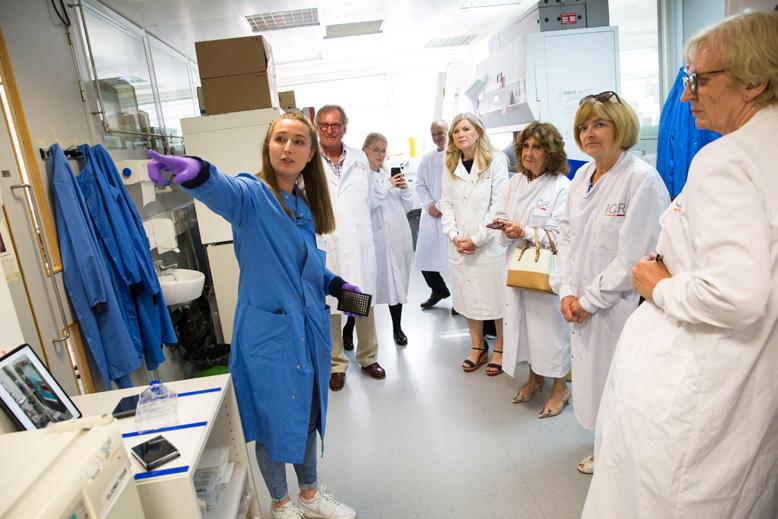
Select promising new therapeutic combinations and novel therapeutic compounds
Complete robust pre-clinical testing
Assess results and identify treatments to progress into humans
Use CONNECT platform to trail the new therapy in patients
CONNECT is a collaborative of 18 international sites across North America, Europe, UK, and Australia. Its purpose is to conduct scientifically rational pilot studies to assess feasibility and early efficacy of incorporating promising novel agents to established frontline therapeutic regimens in children with newly-diagnosed, high-risk brain tumours. CONNECT serves as a clinical research organisation providing concept and protocol development, data and study management, drug shipping, and all operational support.
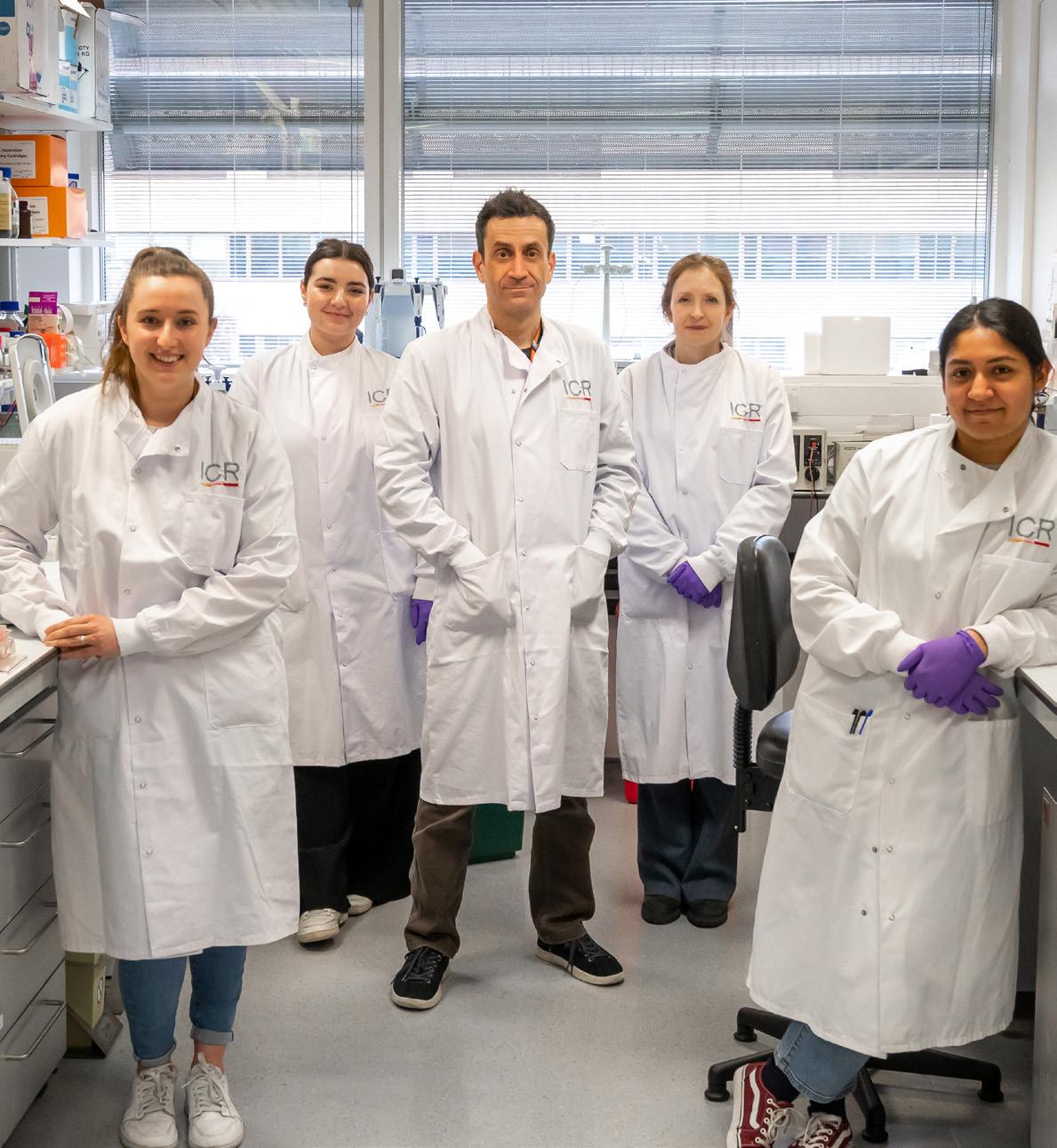
 Dr Karen Noble and Professor Chris Jones at the launch of our newest Research Centre of Excellence at The Insitute of Cancer Research
Dr Karen Noble and Professor Chris Jones at the launch of our newest Research Centre of Excellence at The Insitute of Cancer Research
Brain Tumour Research – Registered Charity 1153487 (England and Wales) and SC046840 (Scotland). 15 Company Limited by Guarantee 08570737. Report of The Trustees and Accounts, Year Ended 30th June 2023
DrRebeccaRogersguidesalabtour at the launch of the Research Centre
The ICR Team with Professor Chris Jones
Operations and Financial Review (continued)
Our Funded Initiatives
Brain Tumour Research supports innovative research in the UK and is committed to growing capacity, building infrastructure, and accelerating treatments. To deliver on these aims, the Charity has partnered with other charity and government organisations to fund several high-impact initiatives.
BRAIN UK
In 2022/23, BRAIN UK increased its access to brain tumour samples to include 146,000 biopsy and 38,000 post-mortem cases, unlocking thousands of new opportunities for researchers throughout the UK and internationally. There were 28 new research outputs reported which used brain tumour samples, bringing the total to 257. These include conference presentations, published abstracts, and peer-reviewed publications.
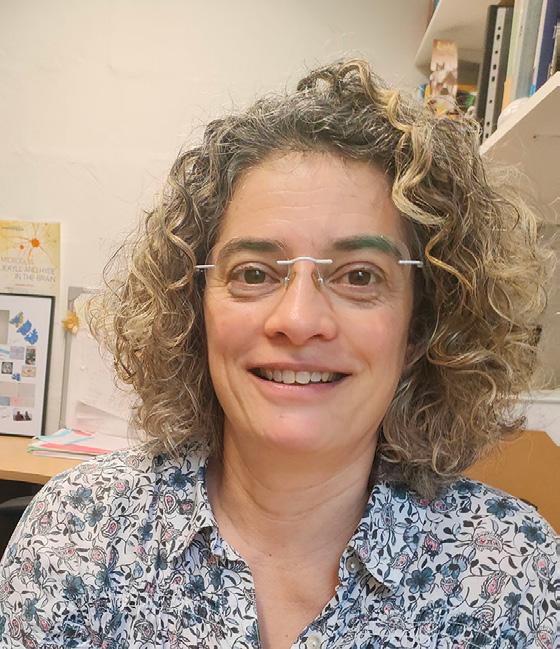

BRAIN UK also appointed Professor Delphine Boche as the BRAIN UK Director, replacing Professor James Nicoll, who stepped down from the role but continues to work alongside Prof Boche and Dr David Hilton.

PRIME
In partnership with our Member Charity brainstrust, Brain Tumour Research funds the Patient Research Involvement Movement (PRIME), which was set up to bring people with direct experience of living with a brain tumour into contact with the clinical research community where they can help shape studies and secure funding for research and clinical trials.
Entering its second year funded by Brain Tumour Research, the programme continues to work towards a new gold standard for patient and public involvement (PPI) in the clinical brain tumour research landscape. This year, patient advocates have been involved in seven studies, including early-phase clinical trials such as a glioblastoma (GBM) study on traversing the blood-brain barrier; studies on social cognition assessments for brain tumour patients and establishing core outcome sets for brain cancer trials.
PPI is essential if clinical trials are to be funded; it offers insight into how best to design a study and improve the quality of the study overall, so that it is meaningful, relevant, and more likely to recruit.
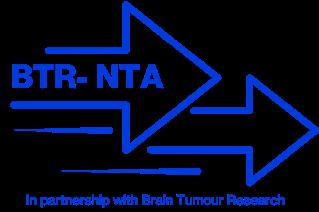
Brain Tumour Research
Novel Therapeutics Accelerator
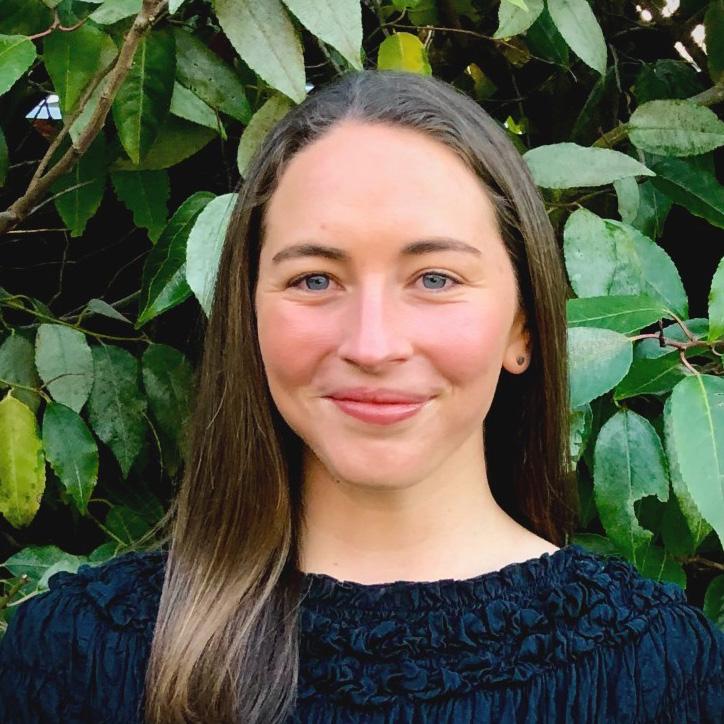
In partnership with the Tessa Jowell Brain Cancer Mission, the Brain Tumour Research Novel Therapeutics Accelerator (BTR-NTA) is designed to close the gap between the number of promising research findings and the number that progress into successful clinical trials. It provides the infrastructure for researchers to receive bespoke feedback on the development path for the therapeutics they are studying, as well as identifying pitfalls in clinical trial design before they approach potential funders.
Since it was announced in June 2022, the initiative has welcomed Dr Charlotte Aitken as a full-time programme manager and recruited 12 brain tumour, pre-clinical and pharmaceutical experts, as well as a patient representative. It has also built an extended bank of contacts who can provide tailored expertise for applications.
The programme received six full applications for its first round of applications in June 2023. Selected applicants will have their therapeutic reviewed by the bespoke panel of experts at the first in-person review meeting in November 2023.
Brain Tumour Research –
MRC-Funded Project at Cardiff University
In 2023, Brain Tumour Research partnered with the Medical Research Council (MRC) to support an innovative research project designed to develop a set of ‘super sponges’ to deliver drugs directly to the brain following surgery for GBM.
The £500k award will fund the project being led by Dr Ben Newland at Cardiff University. The ‘super sponge’ will deliver combinations of repurposed cancer therapeutics, which are unable to pass through the blood-brain barrier, directly to the site. This will reduce the effects of drugs on non-targeted areas, as well as deliver effective treatment to the tumour cells which are left behind after surgery and go on to cause recurrence of the disease.
Karen Noble, our Director of Research, Policy, and Innovation, said: “We are delighted to support this pioneering work by Dr Newland and his team. We share his excitement on undertaking this challenge, which is our first partnership with the MRC and the Charity’s first major investment in Wales.”
This successful proposal was identified during a ‘sandpit’ event where cross-disciplinary academic experts collaborate to design innovative new projects to address cancers of unmet need.
16 Brain Tumour Research – Registered Charity 1153487 (England and Wales) and SC046840 (Scotland). Company Limited by Guarantee 08570737. Report of The Trustees and Accounts, Year Ended 30th June 2023
Professor Delphine Boche
Dr Charlotte Aitken
Achievements and Performance –Campaigning and Raising Awareness
People cannot support a campaign unless they know it exists and, in the year ended 30th June 2023 we had 1,240 supporters receiving weekly campaigning updates designed to motivate and empower our supporters to push their elected representatives to advocate for improved brain tumour research funding. We now have an active political brain tumour research supporter in more than 80% of UK constituencies.
2022/23 was a year of intense activity particularly in our role as provider of the secretariat for the All-Party Parliamentary Group on Brain Tumours (APPGBT) which this year was strengthened by the election of Hilary Benn MP and Sarah Owen MP as officers. We were delighted that Derek Thomas MP is to continue as our Chair and that Brain Tumour Research will continue to provide the secretariat.
A review of highlight activity by the APPGBT in 2022/23 includes:
•The Pathway to a Cure inquiry report delivery and launch at Westminster with Science Minister George Freeman in attendance and commenting on his own reason to support our cause
•The report being disseminated to all Westminster MPs
•The Brain Tumour Debate on the 9th March with more than 500 emails sent to MPs from Brain Tumour Research campaigners requesting their MPs contribute to the debate
•The APPGBT had media coverage in The Guardian, The Express and Sky News
•During Brain Tumour Awareness Month, Derek Thomas used PMQs as an opportunity to ask PM Rishi Sunak to make brain tumours a critical priority because “a unique complex disease needs a unique response”
In separate campaigning activity, 22 questions were asked of ministers at Westminster, Holyrood and the Senedd and the Prime Minister, Rishi Sunak, met – at separate events – two of our key campaigners.
The full title for the APPGBT inquiry report was Pathway to a Cure – breaking down the barriers.
The only way to overcome any barriers to progress, is to ask what those barriers are. For the report preparation, we read written evidence from 37 scientists and clinicians, we heard from 11 of these brain tumour researchers in oral evidence sessions, we asked charitable funders what they thought and took feedback from the pharmaceutical industry too, and we asked those affected by a brain tumour diagnosis with more than 275 responses to our patient survey.
The report identified the current funding system as being unfit for purpose and claimed patients and families continue to be let down despite the promise of millions of pounds of investment which has not materialised. It raised issues in the treatment of terminally ill children denied access to last resort clinical trials despite their parents’ wishes. Also highlighted was the so-called “valley of death” in which potential new treatments discovered in the laboratory fail to reach patients because of unnecessary complexity in the way research is funded.
The primary call to action was for the Government to recognise brain tumour research as a critical priority, ring-fencing £110 million of current and new funding because the research funding system has been built in silos and needs to be joined up from basic science through to clinical trials.
Other recommendations included:
•Patients with brain tumours should have equity of access to trials of new anti-cancer drugs
•Funding bodies should ring-fence specific funding for research into childhood brain tumours
The report featured heavily in a brain tumour debate held in the main chamber at Westminster on 9th March 2023.
Following impassioned contributions from MPs, Will Quince the Health Minister, responding on behalf of the Government, said:
“I genuinely believe that the funding for brain tumour research is promising and we look forward to considering the APPG recommendations with colleagues across Government. I am confident that the Government’s continued commitment to funding will help us make progress towards effective treatment.”
In May, it was Will Quince who released the information that of the £40 million made available for allocation to brain tumour researchers in 2018 just £10.7 million had actually been deployed.
In June, at a Westminster Hall debate Will Quince restated his commitment to doing “all I can to improve the situation in relation to brain tumours”.
He continued: “In truth, I think I have spent more time on this particular issue in my time as a Minister than I have on any other condition under the umbrella of the Major Conditions Strategy.”
This is real testament to the momentum and impact of our campaigning activity this year.
We continue to exert our influence, calling for increased national investment for research into brain tumours and ultimately to achieve parity with other cancers such as breast and leukaemia.
Our work in the devolved nations achieved real traction in 2022/23 and the Welsh Government – The Senedd – held a short debate with the theme, Why Wales needs a strategic plan to prioritise brain tumour research and at Holyrood, the Scottish Parliament, to mark our national awareness campaign, held its first debate on brain tumours since 2017.
We continue to be involved with relevant campaigning and professional organisations, such as Cancer52 (including as a member of its Policy and Public Affairs Steering Group), Scottish and Welsh Cancer Coalitions, the Joint APPG on Cancer Group, Association of Medical Research Charities (AMRC), the Society for British Neurosurgeons (SBNS), the British Neuro-oncology Society (BNOS), and Children and Young People’s Cancer Coalition (as a member of the steering group). We have been a partner of the National Cancer Research Institute (NCRI) and a member of the National Health Service England Cancer Charities Forum. We are an active member of the Neurological Alliance and support The Less Survivable Cancers Taskforce (LSCT).
Brain Tumour Research – Registered Charity 1153487 (England and Wales) and SC046840 (Scotland). 17 Company Limited by Guarantee 08570737. Report of The Trustees and Accounts, Year Ended 30th June 2023
Operations and Financial Review (continued)
Achievements and Performance –Campaigning and Raising Awareness Campaigning brings purpose and, most of all, it brings hope and we are uniting activists who inhabit a world that they never wanted to be a part of. This year demonstrated that the time to move from talk to action, from sympathy to strategy, is now.
As a bereaved mother wrote to us this year: “When it comes to research funding and taking us closer to finding a cure for this disease that has devastated our family, none of us should assume that someone further up the chain has got this all sorted, we all need to add our voice to the campaign so that as a community we can be heard and move brain tumour research higher up the agenda. That was my motivation for asking my MP to attend the APPGBT. Samuel [her son who died aged 18] didn’t get his chance to vote and have his opinion and voice heard, so now we speak on his behalf.”
In April, as part of our campaigning work we launched our petition calling on the Government to ring-fence £110 million of current and new funding to kick-start an increase in the national investment in brain tumour research to £35 million a year by 2028. This is a continuation of our activity to ensure that underfunding in brain tumour research remains at the forefront of the government’s healthcare agenda, despite other issues of the day. We aim to reach 100,000 signatures in support of prompting a parliamentary debate.
Our PR team secured a record volume of coverage in the news media this year which has enabled us to continue to describe Brain Tumour Research as “the leading voice of the brain tumour community in the media”.
We were delighted that our high profile and authority saw us invited to work on BBC soap EastEnders to advise on a hard-hitting brain tumour storyline. We worked as script consultant and the project culminated in actor Danielle Harold, who played young mum Lola dying of a glioblastoma (GBM), picking up the title Best Leading Performer at the British Soap Awards; we were extremely proud to watch the coverage as she dedicated the award to Brain Tumour Research. The EastEnders project generated more than 1,500 pieces of media coverage. The poignant storyline which ended with Lola’s death from a GBM was widely welcomed by the brain tumour community as realistic, recognisable, and a valuable tool in raising awareness with audiences.
We demonstrated our ownership of Brain Tumour Awareness Month in March with our Light up the UK project which saw more than 50 buildings and landmarks lit up in our signature colours of pink and yellow, including a number in the devolved nations. Now in its second year, this initiative is going from strength to strength and we have plans to build on this project next year.
Fundraising
This year has been another challenging one for fundraising, not only with the cost-of-living crisis and rising household costs for many of our supporters; staff recruitment within the community fundraising team has also been difficult. On a more positive note, we have recruited a Corporate Development Manager as well as a Trusts and Foundations Manager to ensure we diversify our income streams.
The amount raised came to £6 million before income of £588k from the UK Government COVID Medical Research Charity Support Fund (£327k was received in 2021/22) bringing the total amount raised for 2022/23 to more than £6.5 million.
Despite the challenging economic and fundraising environment, we are pleased to have grown income in many categories for this financial year and have built a platform for further growth in 2023/24 and beyond.
Donations, which include regular giving, individual donations, and in memoriam, finished the year with £1.1 million raised – this area of individual giving has been especially impacted by the current economic challenges, although we have started to implement a strategy to drive growth in this area.
Legacies continued to come in across the year and achieved £373k for the full year, our best-ever performance. We now have more than 220 notifications with an estimated value of nearly £1 million to come in over the next few years. We will continue to grow notifications via the Free Wills Network and other providers with an eventual goal to grow this income stream, such that it is maintained at a consistent level, circa 10% of our annual income.
Our challenge events fundraising proved an especially positive area in an otherwise challenging fundraising environment, achieving more than £1.2 million for the year, mainly due to the unique situation of having two physical London Marathons in the same financial year.
We continue to invest in our Community Fundraising team, but our fundraising income was under pressure all year, as supporters and their networks were inevitably impacted by the economic challenges.
This year saw a steady year on year increase in income from Trusts and Foundations. We believe this area presents further scope for growth and we feel well-placed entering the new financial year with a full time Trusts and Foundations Fundraising Manager on board.
In October, we recruited a Corporate Development Manager, and we are beginning to see traction in this area with a strong income pipeline for 2023/24.
As always, we want to extend our thanks to all our supporters and are keen to let them know that we do not take their support for granted.
18 Brain Tumour Research – Registered Charity 1153487 (England and Wales) and SC046840 (Scotland). Company Limited by Guarantee 08570737. Report of The Trustees and Accounts, Year Ended 30th June 2023
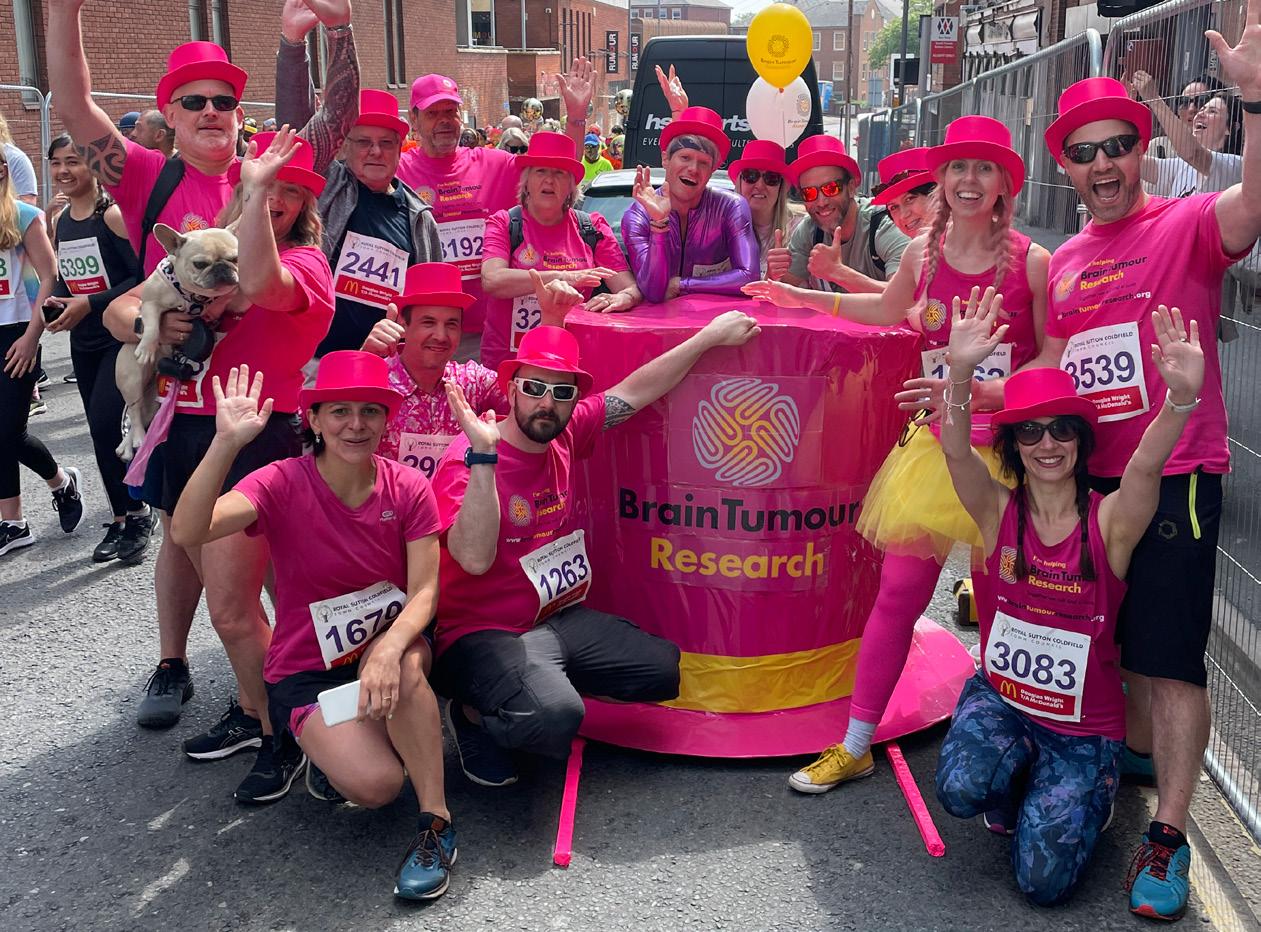
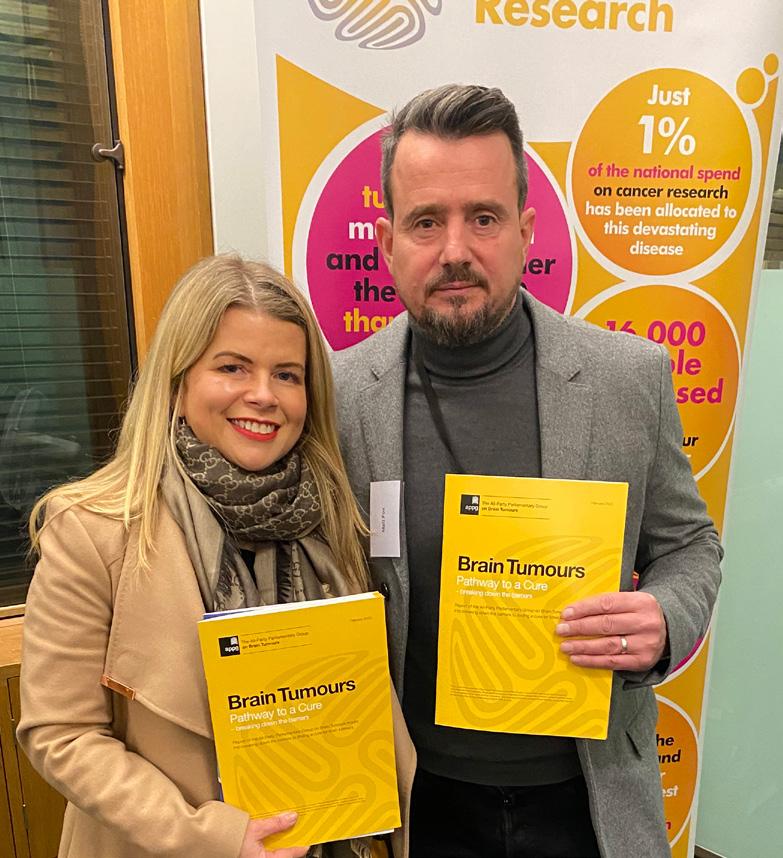

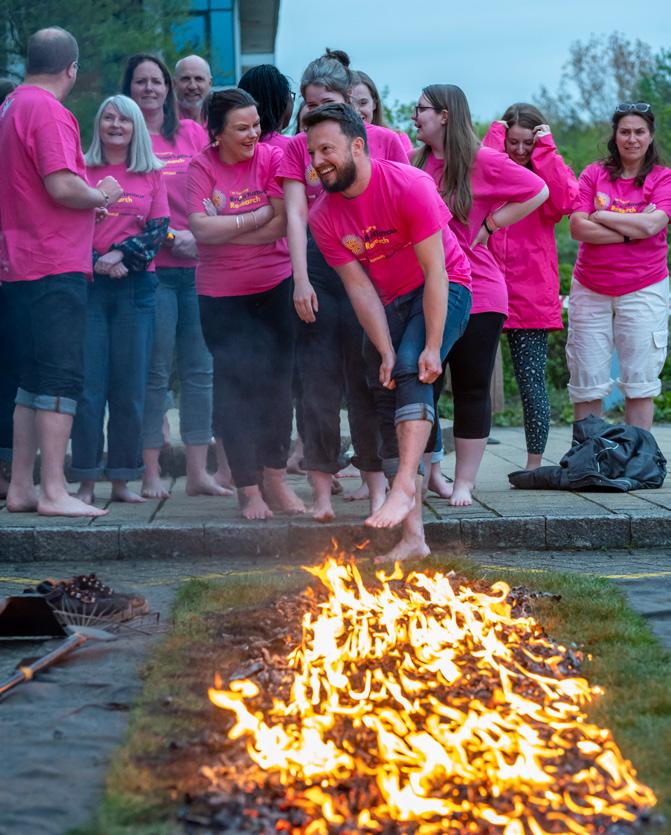

Brain Tumour Research – Registered Charity 1153487 (England and Wales) and SC046840 (Scotland). 19 Company Limited by Guarantee 08570737. Report of The Trustees and Accounts, Year Ended 30th June 2023
Fundraising Group Brainstorm enjoying Wear A Hat Day 2023
New petition to drive increase in national investment Best ever year for income from legacies Some 1,500 pieces of media coverage from EastEnders project Rochester Cathedral lit up yellow and pink for us. Image credit:
Geoff Watkins, Aerial Imaging South East
Ournewfirewalkchallenge
Celebrity Ambassador and actor, Danielle Harold Louise and Matt Fox with our Report
Operations and Financial Review (continued)
Fundraising Practices
Recent years have been very challenging for many sectors of the economy and the charity sector in particular, as a result of austerity, Brexit uncertainty, new regulations, the COVID health crisis and now an extended cost-of-living crisis.
We consider our Charity a leader in good fundraising practice and supporter care, ensuring our supporters are treated fairly and with respect, and we voluntarily subscribe to the Fundraising Regulator’s Code of Fundraising Practice.
All members of the team are required to demonstrate an understanding of the Code and make a commitment to act in accordance with its principles when they join the Charity and throughout their employment with the Charity.
Supporter feedback is an important source of information about how our work impacts on supporters and members of the public, providing us with insight and lessons for future fundraising activities.
As a national charity, our fundraisers will occasionally encounter people who may be in vulnerable circumstances. We aim to be especially careful and sensitive when engaging with vulnerable people, including those affected by cancer. We are confident in the safeguarding measures we have in place, including a whistleblowing hotline, but it is an issue we take very seriously and regularly review our Safeguarding Policy.
Communicating with members of the public, in person, on the telephone, by email or through social media are vital ways to engage people in our work and raise funds. This work is only carried out by members of our team.
In the time period of this Report, we received two complaints (2022:nil) relating to our fundraising activities, which were resolved satisfactorily.
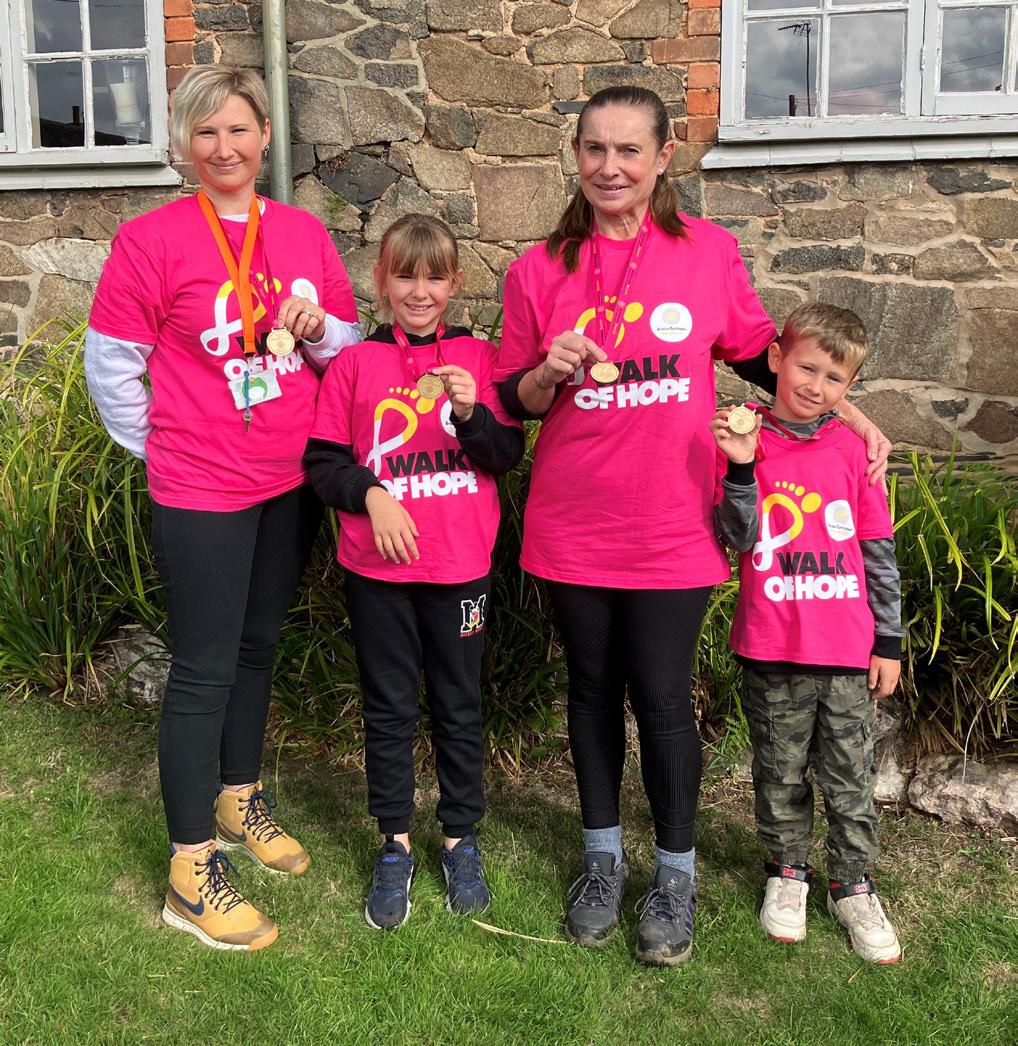
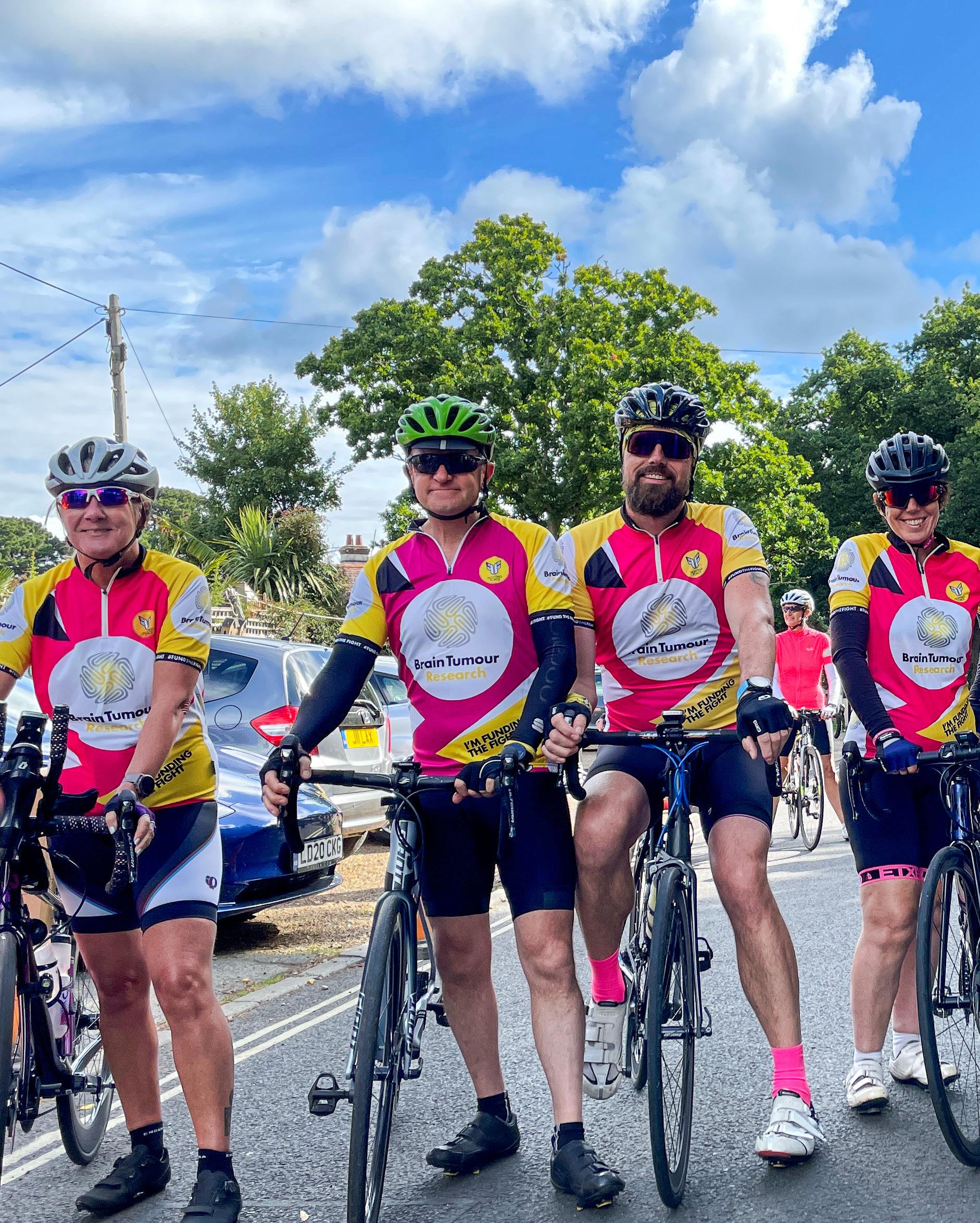

 Our Ambassador Sam Suriakumar runs the TCS London Marathon
Our Ambassador Sam Suriakumar runs the TCS London Marathon
20 Brain Tumour Research – Registered Charity 1153487 (England and Wales) and SC046840 (Scotland). Company Limited by Guarantee 08570737. Report of The Trustees and Accounts, Year Ended 30th June 2023
Cyclists ready to take on our Isle of Wight Randonnée challenge
Supporters show their medals after taking part in our Walk of Hope
Beth Davies’ JumpforHope skydivechallenge


Future Plans
Our mission is to increase the UK investment to £35 million a year while fundraising to create a sustainable network of seven Brain Tumour Research Centres of Excellence across the UK. We are now funding four Centres of Excellence; Imperial College London, Queen Mary University of London, the University of Plymouth and the Institute of Cancer Research.
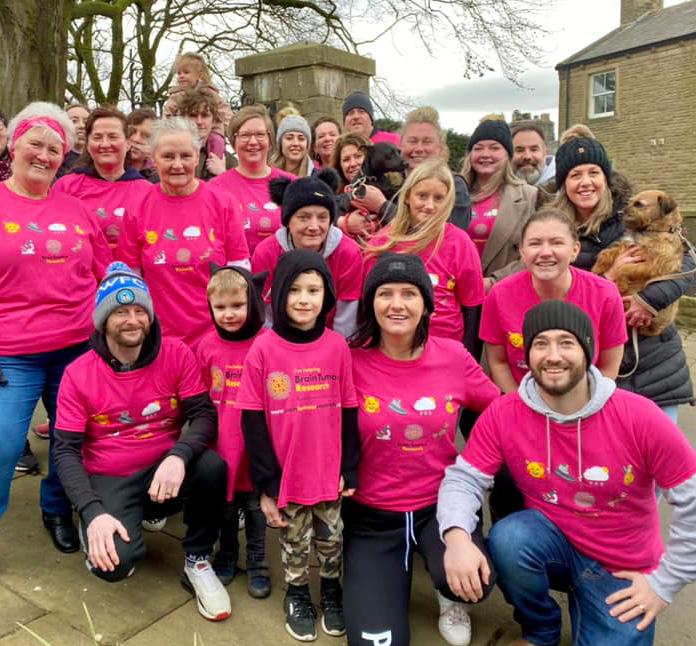
In July 2022, we announced plans to fund a new, fourth Brain Tumour Research Centre of Excellence. Applications were invited from UK-based researchers and their teams who will play a pivotal role in helping us achieve our vision of finding a cure for all types of brain tumours. Brain Tumour Research is investing an initial £2.5 million over five years in the new Centre.
The review process, involving our Scientific and Medical Advisory Board, patient representatives and additional international experts, concluded in early 2023. We were delighted with the quality of applications, and in the next financial year we will be working to deliver a performance that will allow us to launch a further Centre before the end of the year.
Our research policies are also being updated, as part of a review of our grants’ terms and conditions. Research policies are designed to provide guidance and a framework to help the researchers that we fund to conduct research to the highest standard. We provide not just the finances but also other support to enable high-quality research to continue to be delivered at our Centres of Excellence.
Despite the challenges, we emerge from 2022/23 an even stronger organisation, having made investments to make it fit for the future; further building reserves to make the organisation more resilient against future challenges, investing in the team, and increasing our research spend to record levels.
Our philosophy is to deliver an exceptional supporter experience every time, whether online or in person. To deliver our growth strategy, we will continue to innovate and broaden our range of income streams. We will test and learn, applying our learnings to increase our reach and grow the market, increasing the fundraising for research into brain tumours in the UK.
In particular, we believe corporate partnerships and major donors remain major opportunities for growth; initiatives will be led by our Director of Income Generation and Development supported by our recently-appointed Corporate Development Manager and Trust and Foundations Manager.
We will continue to collaborate with our Member and other charities to bring together patients, carers, activists, researchers and clinicians as appropriate to accelerate progress in the brain tumour research sector. Together we can reach a wider number and range of beneficiaries, signposting to specialist organisations as appropriate, thereby growing the market and fundraising capacity.
Anticipating a General Election in 2024, we will draft a manifesto, demanding more brain tumour research, to share with aspiring politicians of all hues. Our campaigning will continue to lead the sector, and we will continue to provide the secretariat for the APPGBT. We will also use our position on the Steering Group of TJBCM and elsewhere to influence MPs and the Government to understand the continuing need for increased investment in research and awareness of funding inequalities. Our overall goal remains to grow the market for brain tumour funding to the levels of other cancers. We will continue to work with and develop our relationship with the devolved UK Governments.
Reserves Policy
We monitor and review the suitability of our reserves policy at least annually. During the last year, we have conducted a review and consider the policy introduced in 2021 to continue to be suitable and appropriate for the Charity.
It remains our priority to protect our committed research spend. To this end, we perform rolling forecasts to ensure that the Charity maintains the level of reserves required to protect against any unexpected deterioration in our income which cannot be mitigated by savings in expenditure. The target level of reserves at 30th June 2023 has been calculated at £1.3 million, as the mid-point within the range £1.1 million to £1.5 million. The reserves target is calculated by assuming a 25% reduction in forecast income offset by a forecast reduction in discretionary costs of approximately 10%. We ended the year with unrestricted reserves of £1.9 million, a little in excess of the target. This small surplus will allow the Trustees to be more agile in considering future applications for research expenditure.
We are stronger and more resilient despite income challenges
Brain Tumour Research – Registered Charity 1153487 (England and Wales) and SC046840 (Scotland). 21 Company Limited by Guarantee 08570737. Report of The Trustees and Accounts, Year Ended 30th June 2023
10,000 Steps a Day in
Heather Sells and friends take part in our Facebook Challenge
February
Operations and Financial Review
(continued)
Principal Risks and Uncertainties
With the support of the Leadership Team, the Trustees continually review risks as they arise and satisfy themselves that the systems and controls are in place to manage them as appropriate and practicable. The risk management process relies on our judgement of the risk likelihood and impact, and developing and monitoring appropriate controls. We maintain a Risk Register of the principal risks faced by the Charity and a full annual review is an important component of our governance framework.
As a fundraising charity with strategic objectives to fund a network of experts in sustainable brain tumour research and grow the national investment in brain tumour research in order to find a cure, our principal risk is the need to protect and grow our income. To this end, we see our principal risks include our supporter relationships, our brand reputation, our people, the quality of research available to fund and our ability to fund this research.
To grow and maintain a sustainable income, we continue to invest in developing a broad and diverse portfolio of income streams. Having grown our team of skilled digital marketeers who have successfully helped us reach new and broader audiences last year, our priority this year has been to grow the Community Fundraising team across the UK, which has been a challenge in the current environment.
Our success would not have been achieved without the commitment and talent of the whole team and our enthusiastic volunteers. Against a challenging recruitment landscape, we continue to endeavour to attract new and complementary skills to the team to broaden the knowledge and experience of the Charity whilst maintaining the passion for our goal of finding a cure for brain tumours.
Failure to deliver a satisfactory supporter journey risks losing a donor’s support and adversely impacting our ability to grow income. Although this risk grows along with the growing supporter base, we believe we effectively mitigate this risk by expanding the fundraising team under experienced leadership and embedding best-in-class supporter care and management.
Damage to our reputation and negative sentiment in the wider sector is a risk we take seriously, although we believe the close relationships we develop with our supporter base helps minimise this risk and alleviate the potential impact.
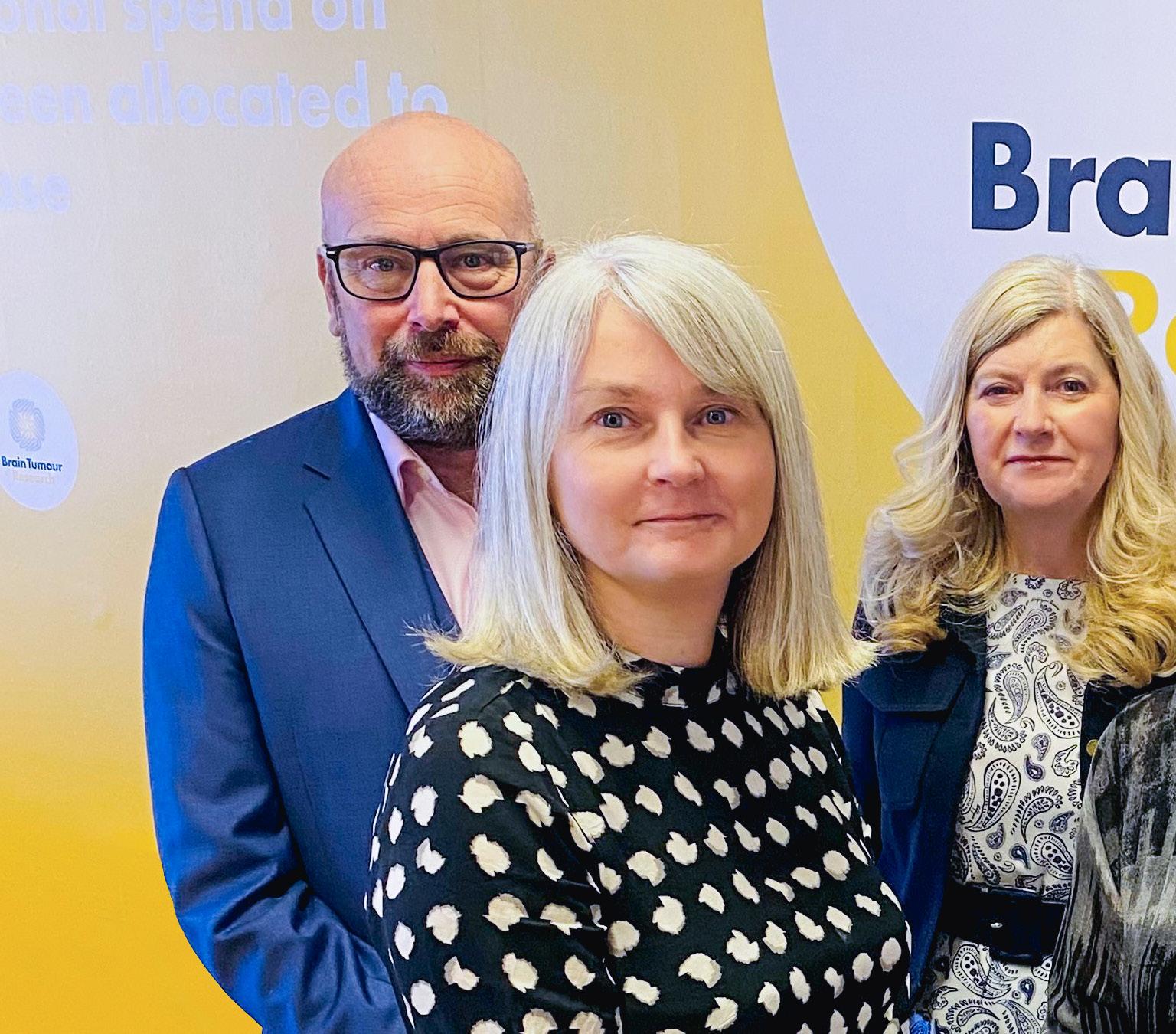
We are also aware of the continuing threat of cyberattacks and cyber fraud in particular. Whilst we believe we have appropriate insurance and proper and adequate controls in place, we have increased the frequency of staff training to ensure all staff are fully aware of the risks and the steps they can take to reduce the risks arising from human error. To guard against a cyber attack and mitigate the risk of digital security failure, vulnerability tests are carried out and the Charity is on the journey to become Cyber Essentials certified.
More broadly, frequent full-team training and development sessions allied to our regular competency and objectives-based appraisal process seek to promote the right behaviours, deliver results and retain key staff. During the year, we conducted our fourth annual Employee Engagement Survey. We were delighted that our overall score remained impressive at 79% (from 81%) despite the increased headcount. We have also conducted our first Mental Health and Wellbeing Survey of all staff, with a view to providing the team with the tools to maintain and improve their own wellbeing.
Continued investment in broad range of income streams
First Mental Health and Wellbeing survey conducted for all staff
22 Brain Tumour Research – Registered Charity 1153487 (England and Wales) and SC046840 (Scotland). Company Limited by Guarantee 08570737. Report of The Trustees and Accounts, Year Ended 30th June 2023
Caption placeholder
The Leadership Team April 2023
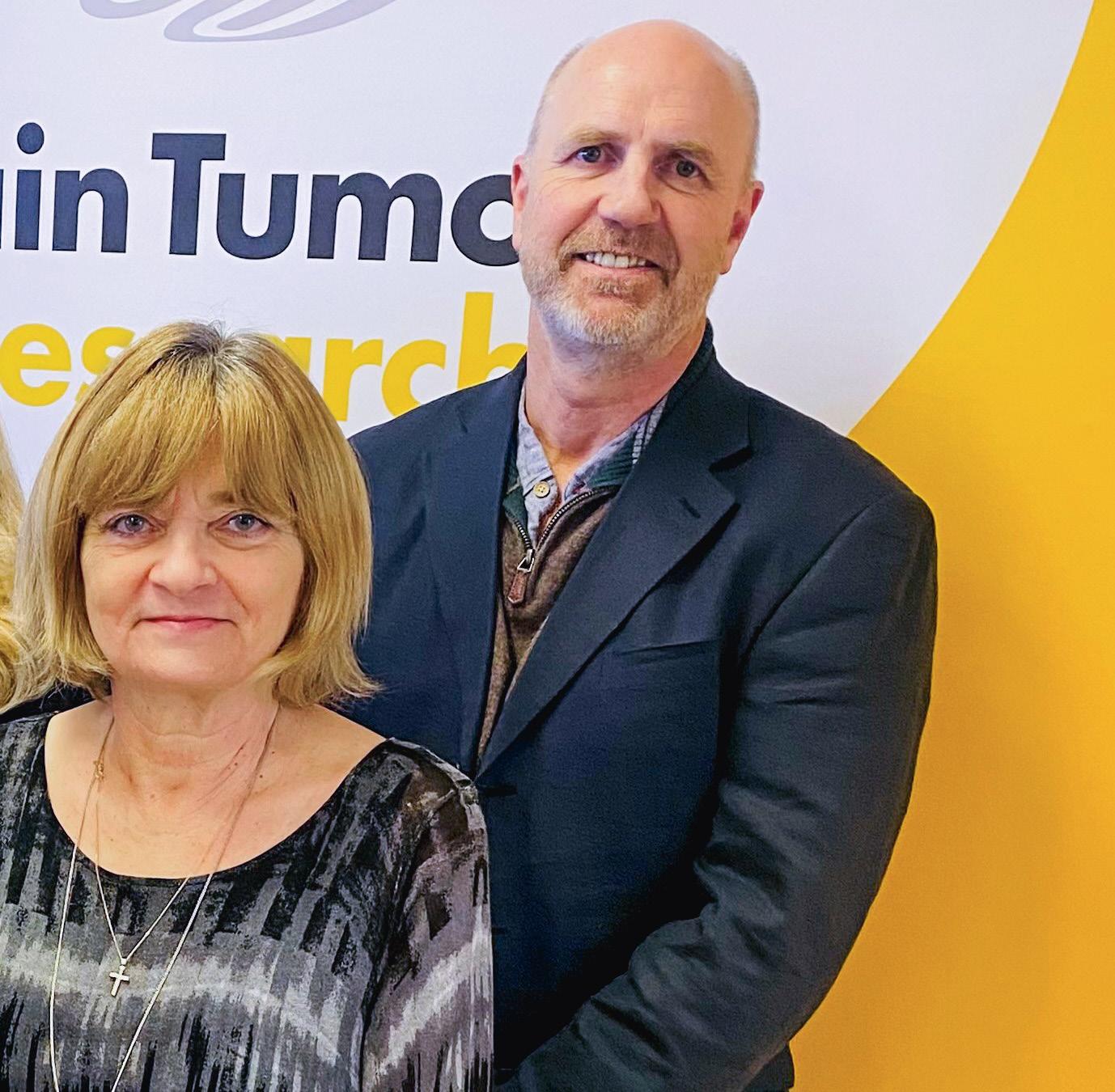
Grant Monitoring
The work carried out at our four dedicated Research Centres and through our funded initiatives including BRAIN UK and our partnerships with the Tessa Jowell Brain Cancer Mission and brainstrust is vital and is monitored carefully to ensure our money is well spent. Indeed, we owe it to brain tumour patients, their families, and our supporters. It is also a condition of our membership of the Association of Medical Research Charities, who regularly audit members to ensure good practice of review, to guarantee that only the best quality research is funded.
Grant Making Policy
New Centre Call
This year, a new Centre was selected following a competitive and robust review process. Following the preliminary application round where the Scientific and Medical Advisory Board (SMAB) committee reviewed applications that briefly outlined research proposals, applicants were invited to submit a full application. Full applications included comprehensive details of the programme of research and methodology. These were peer reviewed by external, international experts and followed by a site review and interview undertaken by the SMAB. The funding recommendations of the SMAB were then considered and ratified by our Trustees.
Annual Reports
Our Research Centres and funded initiatives submit an Annual Report including a request for the subsequent year’s funding. The funds are approved and granted by the Trustees following the advice of the SMAB and recommendations of the Research Sub-Committee resulting from a comprehensive review, which includes Centre interviews with the lead researchers of the Annual Report, and considers results to date, publications and other achievements, and the research vision for the coming years.
Quinquennial Review
Every five years, each Centre of Excellence is asked to complete a more in-depth version of the Annual Review Process. The report is sent out for international peer review, and a site visit is undertaken with an international panel consisting of reviewers with a specific area of expertise related to the focus of the Centre, as well as members of the SMAB who also have relevant areas of expertise. Recommendations from the review panel are then considered and ratified by the Trustees of Brain Tumour Research.
It remains our fundamental goal to develop a network of dedicated Centres of Brain Tumour Research Excellence in order to build research capacity, promote sustainability and the growth of brain tumour research in the UK.
The review is very important for the Charity as it enables the Centre’s progress over the previous five years to be reviewed and consider its plans for the next five years. This provides the Charity with an independent, expert assessment of the Centre’s achievements and goals. It also provides an opportunity for the Centre to include new areas of research that have been indicated as potential routes to a cure for brain tumours, based on its discoveries in the preceding five years.
Whilst it will always be our policy to grant the maximum amount of available funds to brain tumour research each year, it is clear from our discussions with our Centre lead scientists that it is necessary to balance current funding with sustainable levels for the future. Our strategy is for continued growth, rather than increased grant funding levels in the short term, while we continue to build reserves to provide security of future grant funding.
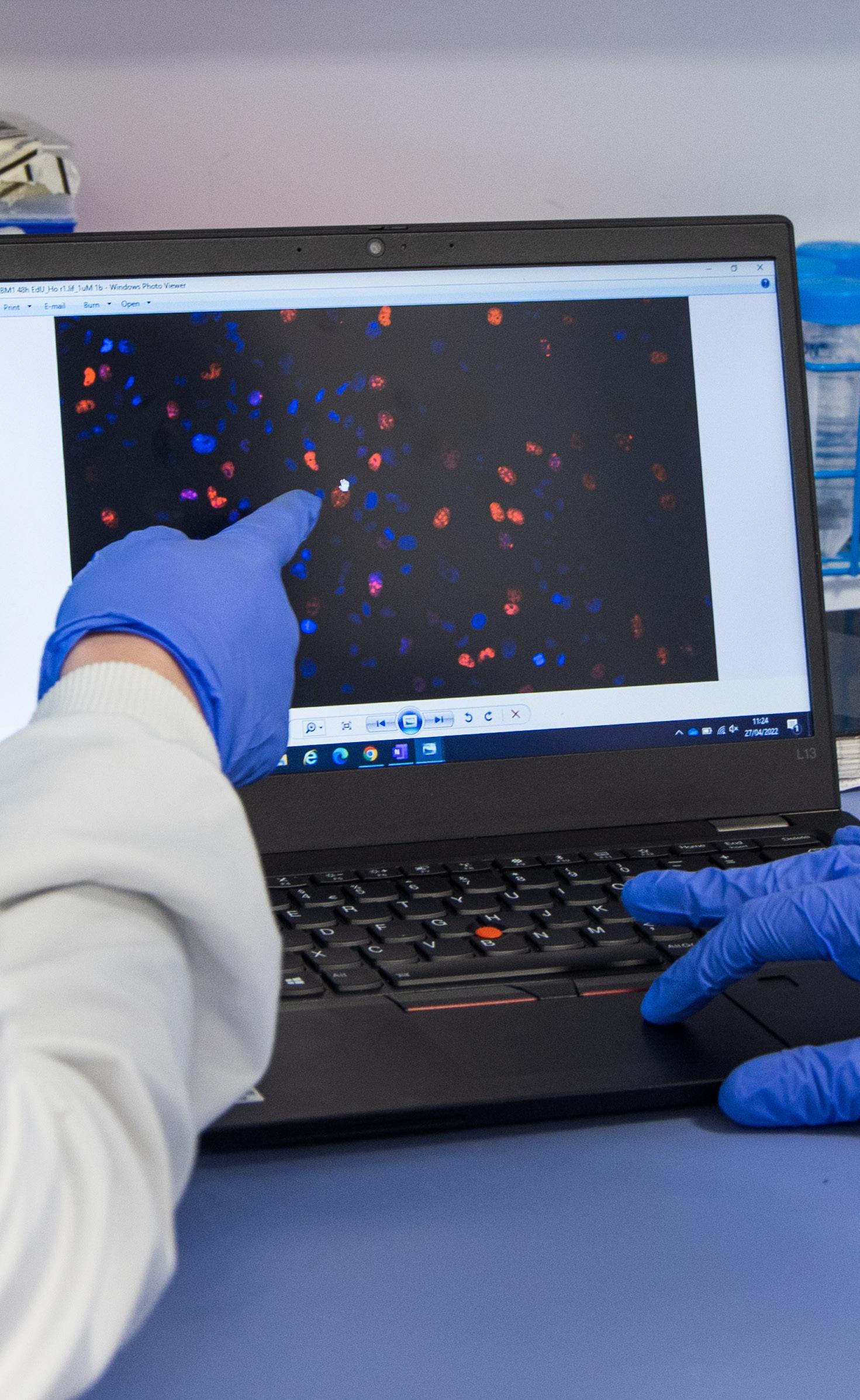
Brain Tumour Research – Registered Charity 1153487 (England and Wales) and SC046840 (Scotland), 23 Company Limited by Guarantee 08570737. Report of The Trustees and Accounts, Year Ended 30th June 2023
Researchers analysing cells at The University of Plymouth
Operations and Financial Review (continued)
Financial Performance
The tough fundraising environment continued into 2022/23, exacerbated by the developing cost-of-living crisis into 2023, which we are continuing to experience at the time of writing.
As ever, this year, we remain grateful to the continued dedication, commitment and passion of our loyal supporters who help the Charity to mitigate this impact.
Nevertheless, most income streams performed consistently well. Regular giving continues to grow slowly and we will continue to invest in recruiting regular donors. Trusts and Foundations were a welcome source of support including the continuing relationship with the Lions Clubs International Foundation. Our Member Charities were also a great support, and their donations continue to support vital researchers. We are pleased to be remembered by increasing numbers of people in their wills and we have seen legacies steadily grow as an income source and reach new levels in 2022/23.
The Charity was determined to use the strengthening reserves position and increased surplus to increase research expenditure, and we were delighted to award a record level of research grants of more than £3 million in the year, compared to £2.7 million in 2021/22.
Net grants awarded to Queen Mary University of London during the year amounted to £559k, to the University of Plymouth £545k, and to Imperial College London £411k. In addition, we awarded £1,146k to our new Centre, The Institute of Cancer Research. To BRAIN UK and our other funded initiatives, we awarded more than £170k. Finally, in collaboration with the Medical Research Council, we awarded £172k to a team at Cardiff University.
Of the grants awarded to date, a total of £1.5 million was paid during the year, with more than £4.5 million remaining committed for future payments, of which nearly £2.7 million is payable within 12 months.
We are delighted with the progress we have achieved in our key charitable objective of campaigning and raising awareness over recent years. This year, we continued to step up our activity, ensuring that the underfunding in brain tumour research remained at the forefront of the government’s healthcare agenda despite other issues of the day. Indeed, at one point during the year, Health Minister Will Quince shared that this was his busiest area of activity.
In order to drive and maintain the national investment in brain tumour research and build on this success, we have strengthened the Research and Policy Affairs team and increased our spend in this area to nearly £1.3 million, compared to £1,027k in the prior year. A further £100k was expended on liaison with our Member Charities and other educational activities.
Overall, the cost of generating funds during this period increased to £2.1 million from £1.8 million, an increase that reflects both the challenging environment and preparing the Charity for future growth.
Pleasingly, the strong income performance and the use of the brought forward restricted funds, allied to the continued shrewd and careful management of costs, allowed us to substantially increase our spend on sustainable brain tumour research and generate a small increase in our unrestricted reserves to £1.9 million. From this position, we are hopeful we can continue to sustainably fund further research centres in the UK.
The charts on the next page illustrate our expenditure as a percentage in 2022/23 and prior year. Spending on our charitable activities was maintained at 64%, whilst our administration costs fell further to just 8.5%.
Unrestricted reserves for future research
£1.9m
Record value of research grants – over £3m
24 Brain Tumour Research – Registered Charity 1153487 (England and Wales) and SC046840 (Scotland). Company Limited by Guarantee 08570737. Report of The Trustees and Accounts, Year Ended 30th June 2023
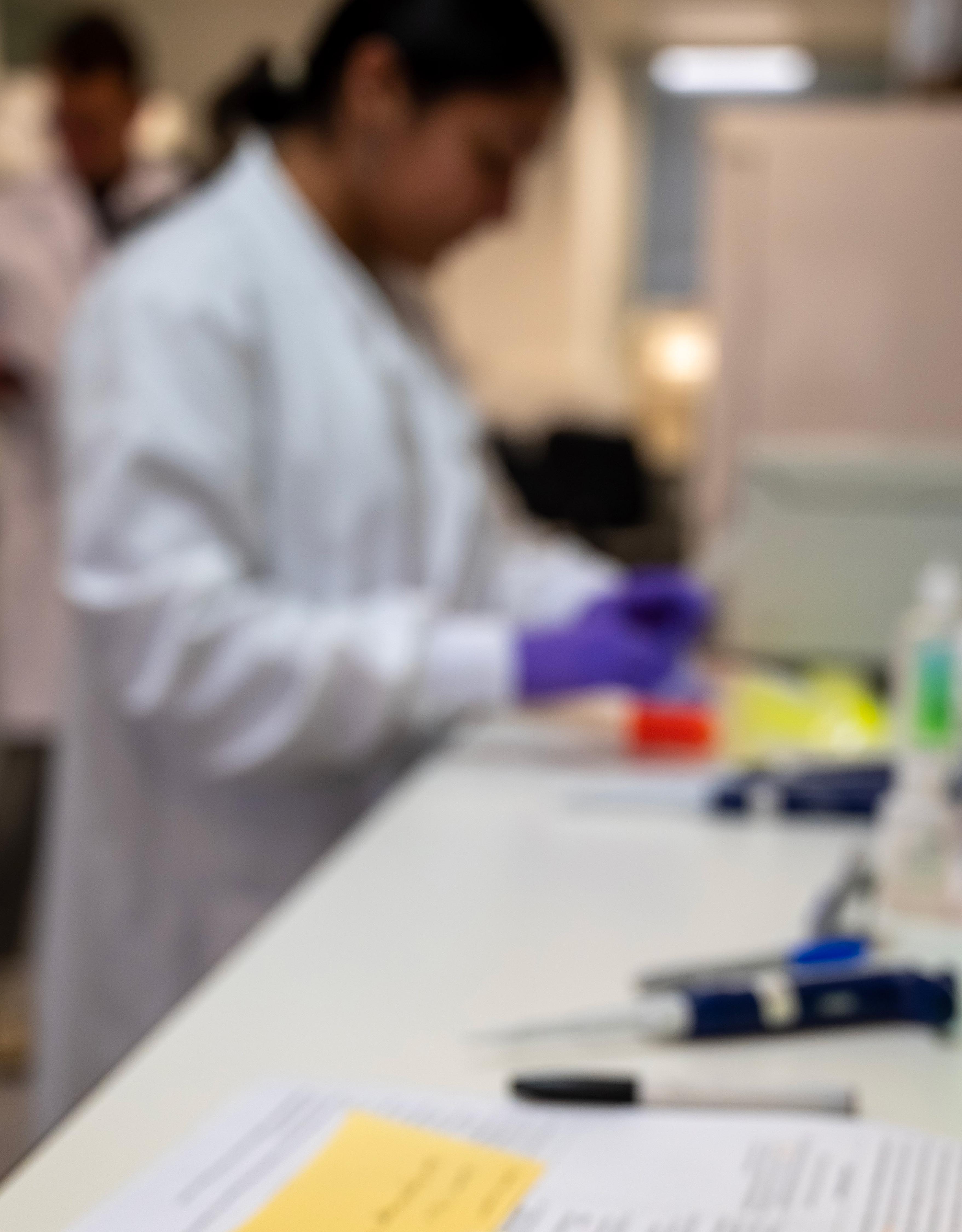
Brain Tumour Research – Registered Charity 1153487 (England and Wales) and SC046840 (Scotland). 25 Company Limited by Guarantee 08570737. Report of The Trustees and Accounts, Year Ended 30th June 2023 Where your money goes year ending June 2023 Where your money goes year ending June 2022
in campaigning and raising awareness Just 8.5% spent on administration 48% 0.7% 0.2% 27.2% 15.2% 8.7% Research Grants Raising Awareness Generating Funds Governance Administration Education 46.5% 0.2% 27.4% 16.2% 8.5% Research Grants Raising Awareness Generating Funds Governance Administration Education 1.2%
£2.1m invested
Operations and Financial Review (continued)
Going Concern
Management and the Trustees regularly review detailed forecasts of income, expenditure and cash flows, typically projecting forward 12 months or more. The assumptions underlying the budget and forecasts are challenged, varied and tested to establish the likelihood of a range of possible outcomes including reasonable cash flow sensitivities. The forecast performance is carefully monitored against actual outcomes each month and variances are highlighted, analysed and discussed at Management and Board level.
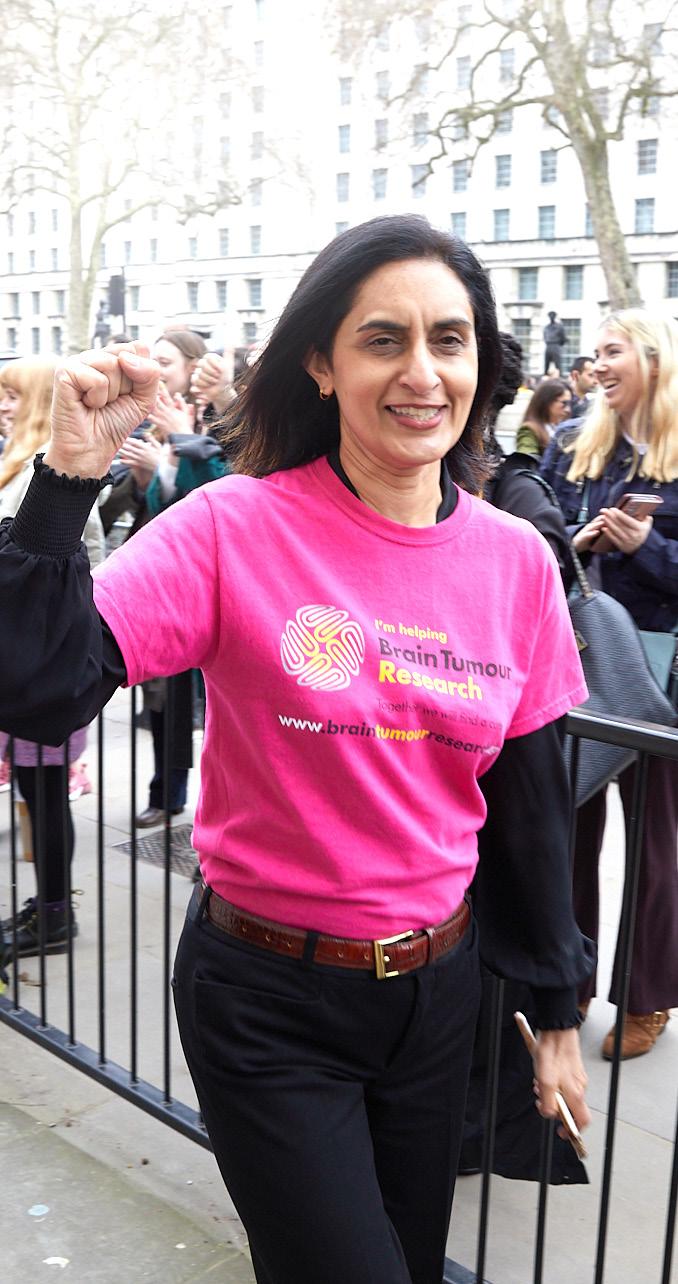
The Trustees have reviewed cash flow forecasts for the period to December 2024 and considered cash flow requirements for this period for the purposes of approving these financial statements. The cash flow forecasts indicate that the Charity will be able to pay its liabilities as they fall due for the period until at least 31st December 2024. In the event that income does not hit the projected levels, management is able to adjust discretionary expenditure to relieve any short-term cash pressures which might arise.
Given previous experience of negative reserves, the Trustees have specified maintaining a minimum available cash balance of £1 million (increased from £500k to reflect the growth in the Charity), which we have consistently attained throughout the period under review. Indeed, throughout the last 12 months, cash has exceeded £5 million and we finished the year with more than £6 million. The Charity is now progressing suitable investments which will protect this cash from the ravages of inflation.
The Trustees are, therefore, satisfied that the financial statements should be prepared on the going concern basis and have advised Management to work on the basis of a continued growth strategy with initiatives and contingencies built in. Management also focus on building reserves that allow for sustainable research funding of our Centres and the growth of our network as we introduce new Centres, whilst also continuing to campaign for increased national investment in brain tumour research. As a result of the performance in 2022/23, notwithstanding the award of more than £3 million in research grants, including £1.1 million to our new Centre at ICR, we were able to increase unrestricted reserves by £514k to £1,925k.
Trustees’ Responsibilities in Relation to the Financial Statements
The Trustees, who are also directors of the charitable company (for the purposes of company law) are responsible for preparing the Trustees’ Report and the Financial Statements in accordance with applicable law and United Kingdom Accounting Standards (United Kingdom Generally Accepted Accounting Practice).
Company law requires the Trustees to prepare financial statements for each financial year which give a true and fair view of the state of affairs of the charitable company and of the incoming resources and application of resources, including the income and expenditure, of the Charity for that period. In preparing these financial statements, the Trustees are required to:
• Select suitable accounting policies and then apply them consistently
• Observe the methods and principles of the Charities SORP FRS 102
• Make judgements and estimates that are reasonable and prudent
• State whether applicable accounting standards have been followed, subject to any material departures disclosed and explained in the financial statements
• Prepare the financial statements on the going concern basis unless it is inappropriate to presume that the charitable company will continue in business
The Trustees are responsible for keeping adequate accounting records that disclose with reasonable accuracy at any time the financial position of the charitable company and enable them to ensure that the financial statements comply with the Companies Act 2006. They are also responsible for safeguarding the assets of the charitable company and hence for taking reasonable steps for the prevention and detection of fraud and other irregularities.
...and now investing to protect income Achieved consistent growth...
26 Brain Tumour Research – Registered Charity 1153487 (England and Wales) and SC046840 (Scotland). Company Limited by Guarantee 08570737. Report of The Trustees and Accounts, Year Ended 30th June 2023
Brain Tumour Research Campaigner Uzmah Yunis at Downing Street for the One Cancer Voice Petition Hand-in
Statement of Disclosure to Auditors
Insofar as the Trustees are aware:
• There is no relevant audit information of which the charitable company’s auditor is unaware
• The Trustees have taken all steps that they should to make themselves aware of any relevant audit information and to establish that the auditor is aware of that information
• The Trustees are responsible for the maintenance and integrity of the corporate and financial information included on the charitable company’s website
• Legislation in the United Kingdom governing the preparation and dissemination of financial statements may differ from legislation in other jurisdictions
Approved by the Trustees on 29th February 2024 and signed on their behalf by
 Wendy Fulcher Chairman of the Trustees
Wendy Fulcher Chairman of the Trustees
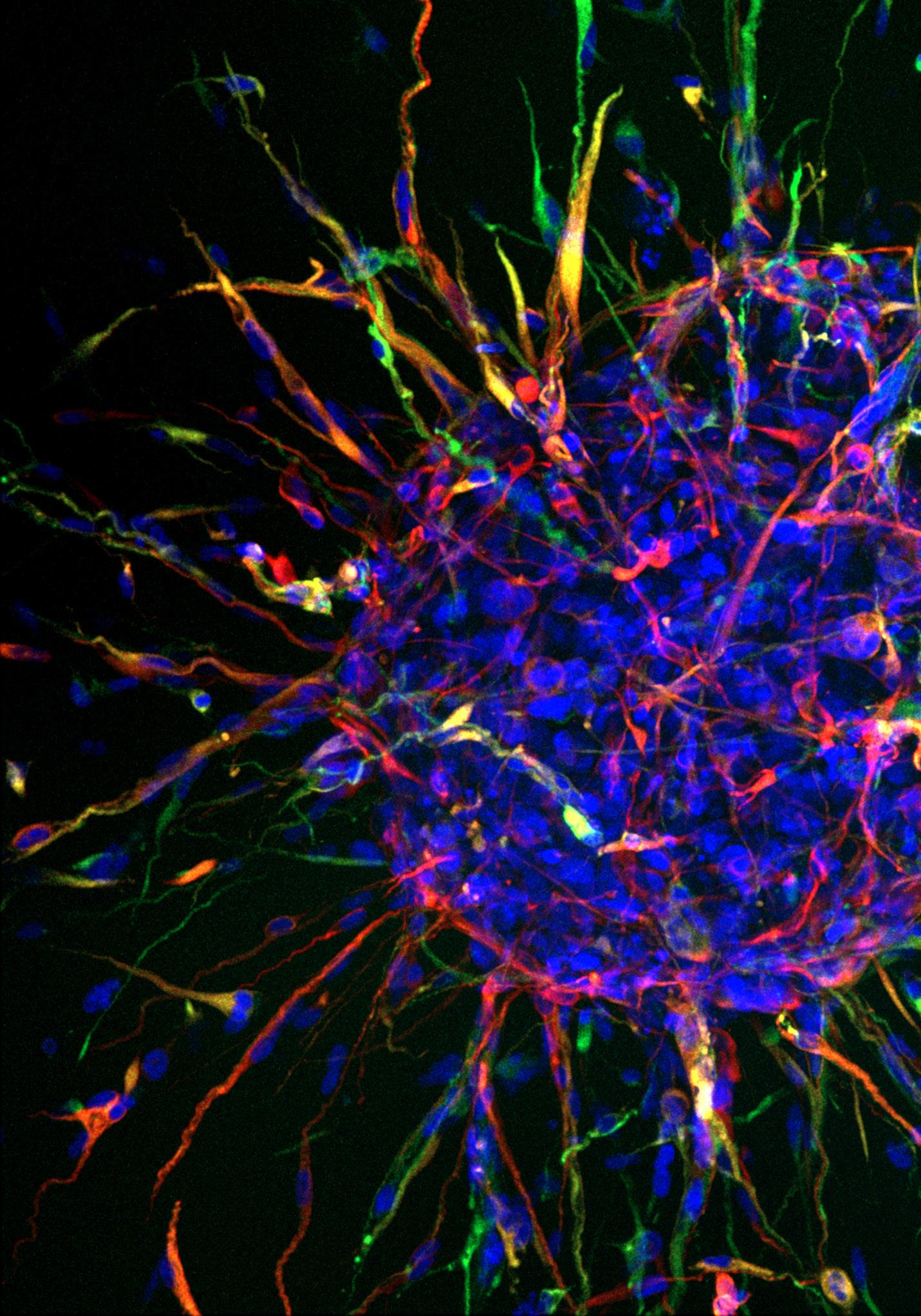
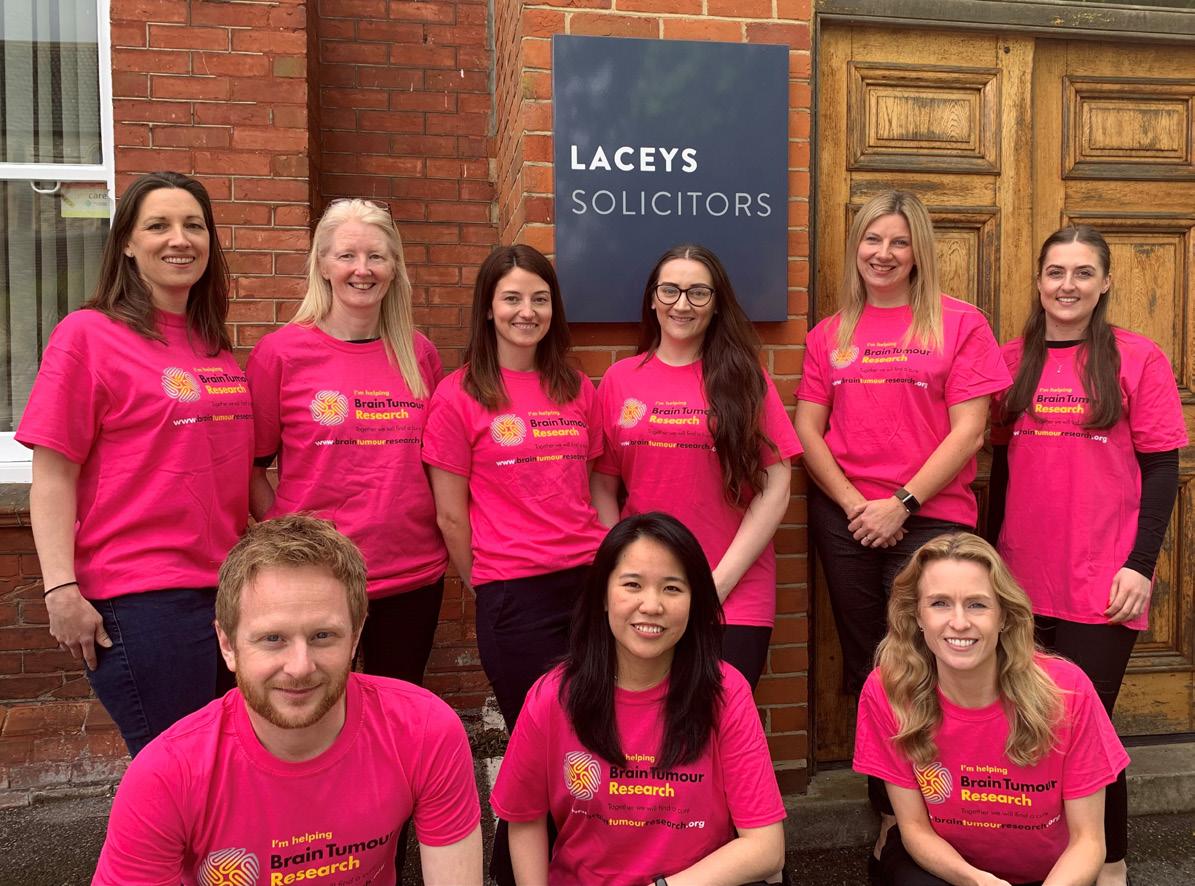
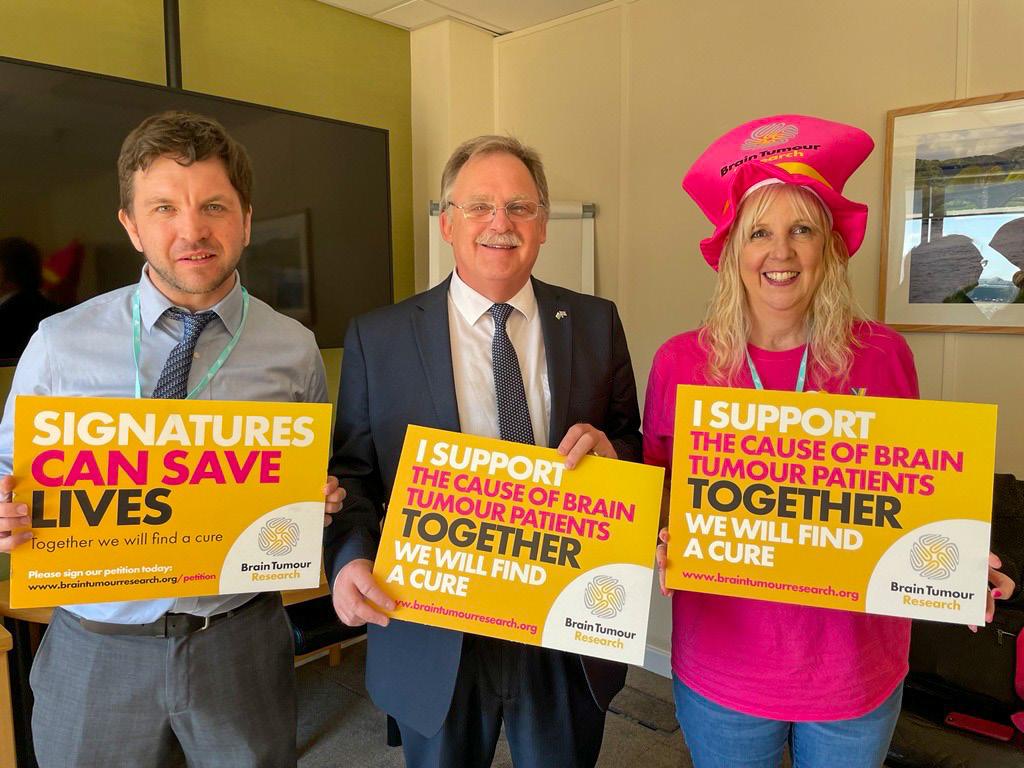
Brain Tumour Research – Registered Charity 1153487 (England and Wales) and SC046840 (Scotland), 27 Company Limited by Guarantee 08570737. Report of The Trustees and Accounts, Year Ended 30th June 2021
Paediatric glioblastoma (GBM) neurosphere showing invasion –credit Institute of Cancer Research
Getting support from Mark Isherwood MS and the Senedd (Welsh Parliament)
Laceys Solicitors chose Brain Tumour Research as their Charity of the Year
Independent Auditor’s Report to the Trustees of Brain Tumour Research
Opinion
We have audited the financial statements of Brain Tumour Research (the ‘charitable company’) for the year ended 30th June 2023 which comprise the statement of financial activities, balance sheet, statement of cash flows and notes to the financial statements, including significant accounting policies. The financial reporting framework that has been applied in their preparation is applicable law and United Kingdom Accounting Standards, including FRS 102 The Financial Reporting Standard applicable in the UK and Republic of Ireland (United Kingdom Generally Accepted Accounting Practice).
In our opinion, the financial statements:
• Give a true and fair view of the state of the charitable company’s affairs as at 30th June 2023 and of its incoming resources and application of resources, including its income and expenditure, for the year then ended
• Have been properly prepared in accordance with United Kingdom Generally Accepted Accounting Practice
• Have been prepared in accordance with the requirements of the Companies Act 2006, the Charities and Trustee Investment (Scotland) Act 2005 and regulation 8 of the Charities Accounts (Scotland) Regulations 2006 (as amended)
Basis for Opinion
We conducted our audit in accordance with International Standards on Auditing (UK) (ISAs (UK)) and applicable law. Our responsibilities under those standards are further described in the Auditor’s responsibilities for the audit of the financial statements section of our report. We are independent of the charitable company in accordance with the ethical requirements that are relevant to our audit of the financial statements in the UK, including the FRC’s Ethical Standard and we have fulfilled our other ethical responsibilities in accordance with these requirements. We believe that the audit evidence we have obtained is sufficient and appropriate to provide a basis for our opinion.
Conclusions Relating to Going Concern
In auditing the financial statements, we have concluded that the Trustees’ use of the going concern basis of accounting in the preparation of the financial statements is appropriate.
Based on the work we have performed, we have not identified any material uncertainties relating to events or conditions that, individually or collectively, may cast significant doubt on Brain Tumour Research’s ability to continue as a going concern for a period of at least 12 months from when the financial statements are authorised for issue.
Our responsibilities and the responsibilities of the Trustees with respect to going concern are described in the relevant sections of this Report.
Other Information
The other information comprises the information included in the Trustees’ Annual Report, other than the financial statements and our auditor’s report thereon. The Trustees are responsible for the other information contained within the Annual Report. Our opinion on the financial statements does not cover the other information and, except to the extent otherwise explicitly stated in our report, we do not express any form of assurance conclusion thereon. Our responsibility is to read the other information and, in doing so, consider whether the other information is materially inconsistent with the financial
statements or our knowledge obtained in the course of the audit, or otherwise appears to be materially misstated. If we identify such material inconsistencies or apparent material misstatements, we are required to determine whether this gives rise to a material misstatement in the financial statements themselves. If, based on the work we have performed, we conclude that there is a material misstatement of this other information, we are required to report that fact.
We have nothing to report in this regard.
Opinions on Other Matters Prescribed by the Companies Act 2006
In our opinion, based on the work undertaken in the course of the audit:
• The information given in the Trustees’ Annual Report for the financial year for which the financial statements are prepared is consistent with the financial statements
• The Trustees’ Annual Report has been prepared in accordance with applicable legal requirements
Matters on Which we are Required to Report by Exception
In the light of the knowledge and understanding of the charitable company and its environment obtained in the course of the audit, we have not identified material misstatements in the Trustees’ Annual Report
We have nothing to report in respect of the following matters in relation to which the Companies Act 2006 and the Charities Accounts (Scotland) Regulations 2006 (as amended) require us to report to you if, in our opinion:
• Adequate accounting records have not been kept, or returns adequate for our audit have not been received from branches not visited by us
• The financial statements are not in agreement with the accounting records and returns
• Certain disclosures of Trustees’ remuneration specified by law are not made
• We have not received all the information and explanations we require for our audit
• The Directors were not entitled to prepare the financial statements in accordance with the small companies’ regime and take advantage of the small companies’ exemptions in preparing the Trustees’ Annual Report and from the requirement to prepare a strategic report
Responsibilities of Trustees
As explained more fully in the statement of Trustees’ responsibilities set out in the Trustees’ Annual Report, the Trustees (who are also the Directors of the charitable company for the purposes of company law) are responsible for the preparation of the financial statements and for being satisfied that they give a true and fair view, and for such internal control as the Trustees determine is necessary to enable the preparation of financial statements that are free from material misstatement, whether due to fraud or error.
In preparing the financial statements, the Trustees are responsible for assessing the charitable company’s ability to continue as a going concern, disclosing, as applicable, matters related to going concern and using the going concern basis of accounting unless the Trustees either intend to liquidate the charitable company or to cease operations, or have no realistic alternative but to do so.
28 Brain Tumour Research – Registered Charity 1153487 (England and Wales) and SC046840 (Scotland). Company Limited by Guarantee 08570737. Report of The Trustees and Accounts, Year Ended 30th June 2023
Auditor’s Responsibilities for the Audit of the Financial Statements
We have been appointed as auditor under section 44(1)(c) of the Charities and Trustee Investment (Scotland) Act 2005 and under the Companies Act 2006 and report in accordance with regulations made under those Acts.
Our objectives are to obtain reasonable assurance about whether the financial statements as a whole are free from material misstatement, whether due to fraud or error, and to issue an auditor’s report that includes our opinion. Reasonable assurance is a high level of assurance but is not a guarantee that an audit conducted in accordance with ISAs (UK) will always detect a material misstatement when it exists. Misstatements can arise from fraud or error and are considered material if, individually or in the aggregate, they could reasonably be expected to influence the economic decisions of users taken on the basis of these financial statements.
Irregularities, including fraud, are instances of non-compliance with laws and regulations. We design procedures in line with our responsibilities, outlined above, to detect material misstatements in respect of irregularities, including fraud. The extent to which our procedures are capable of detecting irregularities, including fraud are set out below.
Capability of the Audit in Detecting Irregularities
In identifying and assessing risks of material misstatement in respect of irregularities, including fraud and non-compliance with laws and regulations, our procedures included the following:
• We enquired of management, which included obtaining and reviewing supporting documentation, concerning the Charity’s policies and procedures relating to:
- identifying, evaluating, and complying with laws and regulations and whether they were aware of any instances of non-compliance
- detecting and responding to the risks of fraud and whether they have knowledge of any actual, suspected, or alleged fraud
- the internal controls established to mitigate risks related to fraud or non-compliance with laws and regulations
• We inspected the minutes of meetings of those charged with governance
• We obtained an understanding of the legal and regulatory framework that the Charity operates in, focusing on those laws and regulations that had a material effect on the financial statements or that had a fundamental effect on the operations of the Charity from our professional and sector experience
• We communicated applicable laws and regulations throughout the audit team and remained alert to any indications of non-compliance throughout the audit
• We reviewed any reports made to regulators
• We reviewed the financial statement disclosures and tested these to supporting documentation to assess compliance with applicable laws and regulations
• We performed analytical procedures to identify any unusual or unexpected relationships that may indicate risks of material misstatement due to fraud
• In addressing the risk of fraud through management override of controls, we tested the appropriateness of journal entries and other adjustments, assessed whether the judgements made in making accounting estimates are indicative of a potential bias and tested significant transactions that are unusual or those outside the normal course of business
Because of the inherent limitations of an audit, there is a risk that we will not detect all irregularities, including those leading to a material misstatement in the financial statements or non-compliance with regulation. This risk increases the more that compliance with a law or regulation is removed from the events and transactions reflected in the financial statements, as we will be less likely to become aware of instances of non-compliance. The risk is also greater regarding irregularities occurring due to fraud rather than error, as fraud involves intentional concealment, forgery, collusion, omission or misrepresentation.
A further description of our responsibilities is available on the Financial Reporting Council’s website at www.frc.org.uk/auditorsresponsibilities
This description forms part of our auditor’s report.
Use of our Report
This report is made solely to the charitable company’s members as a body, in accordance with Chapter 3 of Part 16 of the Companies Act 2006 and section 44(1)(c) of the Charities and Trustee Investment (Scotland) Act 2005. Our audit work has been undertaken so that we might state to the charitable company’s members those matters we are required to state to them in an auditor’s report and for no other purpose. To the fullest extent permitted by law, we do not accept or assume responsibility to anyone other than the charitable company and the charitable company’s members as a body, for our audit work, for this report, or for the opinions we have formed.

Noelia Serrano (Senior statutory auditor)
29th February 2024
for and on behalf of Sayer Vincent LLP, Statutory Auditor
Invicta House, 108-114 Golden Lane, LONDON, EC1Y 0TL
Sayer Vincent LLP is eligible to act as auditor in terms of section 1212 of the Companies Act 2006
Brain Tumour Research – Registered Charity 1153487 (England and Wales) and SC046840 (Scotland). 29 Company Limited by Guarantee 08570737. Report of The Trustees and Accounts, Year Ended 30th June 2023
Statement of Financial Activities
All of the above results are derived from continuing activities. There were no other recognised gains or losses other than those stated above. Movements in funds are disclosed in Note 19 to the financial statements. The notes on pages 33 to 45 form part of these financial statements.
30 Brain Tumour Research – Registered Charity 1153487 (England and Wales) and SC046840 (Scotland). Company Limited by Guarantee 08570737. Report of The Trustees and Accounts, Year Ended 30th June 2023
Note 2023 Unrestricted £ 2023 Restricted £ 2023 Total £ 2022 Unrestricted £ 2022 Restricted £ 2022 Total £ Income from: Donations and legacies 2 4,206,402 871,112 5,077,514 4,782,961 1,602,942 6,385,903 Other trading activities 3 1,464,096 – 1,464,096 1,144,600 – 1,144,600 TOTAL INCOME 5,670,498 871,112 6,541,610 5,927,561 1,602,942 7,530,503 Expenditure on: Raising funds 4 2,105,942 – 2,105,942 1,842,809 – 1,842,809 Charitable activities: Research 4 1,658,349 1,917,778 3,576,127 2,527,945 724,609 3,252,554 Campaigning and raising awareness 4 1,291,762 – 1,291,762 1,027,483 – 1,027,483 Members liaison, workshop and conferences 4 100,632 – 100,632 49,709 – 49,709 TOTAL EXPENDITURE 5,156,685 1,917,778 7,074,463 5,447,946 724,609 6,172,555 Net (expenditure)/income before net losses on investments 513,813 (1,046,666) (532,853) 479,615 878,333 1,357,948 Loss on investments 12 (96) – (96) (88) – (88) Net (expenditure)/income for the year and net movement in funds 6 513,717 (1,046,666) (532,949) 479,527 878,333 1,357,860 Reconciliation of funds: Total funds brought forward 1,411,084 1,046,666 2,457,750 931,557 168,333 1,099,890 TOTAL FUNDS CARRIED FORWARD 1,924,801 – 1,924,801 1,411,084 1,046,666 2,457,750
Balance Sheet

Brain Tumour Research – Registered Charity 1153487 (England and Wales) and SC046840 (Scotland). 31 Company Limited by Guarantee 08570737. Report of The Trustees and Accounts, Year Ended 30th June 2023
Note 2023 £ 2023 £ 2022 £ 2022 £ Fixed assets: Tangible assets 11 74,418 52,640 Investments 12 – 96 74,418 52,736 Current assets: Stock 13 52,022 40,515 Debtors 14 283,589 301,213 Cash at bank and in hand 21 6,243,078 5,344,217 6,578,689 5,685,945 Liabilities: Creditors: amounts falling due within one year 16 (2,859,348) (2,428,980) Net current assets 3,719,341 3,256,965 Debtors recoverable in more than one year 15 35,563 19,499 Total assets less current liabilities 3,829,322 3,329,200 Creditors: amounts falling due after one year 17 (1,904,521) (871,450) TOTAL NET ASSETS 18 1,924,801 2,457,750 The funds of the Charity: 19a Restricted income funds – 1,046,666 Unrestricted income funds: General funds 1,924,801 1,411,084 Total unrestricted funds 1,924,801 1,411,084 TOTAL FUNDS 1,924,801 2,457,750 Approved by the Trustees on 29th February 2024 and signed on their behalf by: Wendy Fulcher Chairman of Trustees Sukanta Ghosh Trustee
Statement of Cash Flows
32 Brain Tumour Research – Registered Charity 1153487 (England and Wales) and SC046840 (Scotland). Company Limited by Guarantee 08570737. Report of The Trustees and Accounts, Year Ended 30th June 2023
Note 2023 £ 2023 £ 2022 £ 2022 £ Cash flows from operating activities: Net cash provided by operating activities 20 953,916 3,029,404 Cash flows from investing activities: Purchase of fixed assets (55,055) (46,160) Net cash (used in) investing activities (55,055) (46,160) Change in cash and cash equivalents in the year 898,861 2,983,244 Cash and cash equivalents at the beginning of the year 5,344,217 2,360,973 CASH AND CASH EQUIVALENTS AT THE END OF THE YEAR 21 6,243,078 5,344,217
Notes to the Financial Statements
1.1 Statutory information
Brain Tumour Research is a charitable company limited by guarantee and is incorporated in the United Kingdom. The registered office address and principal place of business, is Suite 37, Shenley Pavilions, Chalkdell Drive, Shenley Wood, Milton Keynes, MK5 6LB.
1.2 Basis of preparation
The financial statements have been prepared in accordance with Accounting and Reporting by Charities: Statement of Recommended Practice applicable to charities preparing their accounts in accordance with the Financial Reporting Standard applicable in the UK and Republic of Ireland (FRS 102) – (Charities SORP FRS 102), the Financial Reporting Standard applicable in the UK and Republic of Ireland and the Companies Act 2006.
All figures are presented in sterling and rounded to the nearest pound.
In applying the financial reporting framework, the Trustees have made a number of subjective judgements, for example in respect of significant accounting estimates. Estimates and judgements are continually evaluated and are based on historical experience and other factors, including expectations of future events that are believed to be reasonable under the circumstances. The nature of the estimation means the actual outcomes could differ from those estimates. Any significant estimates and judgements affecting these financial statements are detailed within the relevant accounting policy below.
1.3 Public benefit entity
The charitable company meets the definition of a public benefit entity under FRS 102.
1.4 Going concern
The Charity’s charitable and fundraising activities, along with the operating environment, performance and prospects are set out on pages 10 to 27 in the body of the Annual Report.
Management and the Trustees regularly review detailed forecasts of income, expenditure and cash flows, regularly projecting forward 12 months or more. The assumptions underlying the budget and forecasts are challenged, varied and tested to establish the likelihood of a range of possible outcomes including reasonable cash flow sensitivities. The expected figures are carefully monitored against actual outcomes each month and variance are highlighted, analysed and discussed at Management and Board level.
The Trustees have reviewed cash flow forecasts for the period to 31st December 2024 and considered cash flow requirements for the period to 31st December 2024 for the purposes of approving these financial statements.
The cash flow forecasts indicate that the Charity will be able to pay its debts as they fall due for the period until at least 31st December 2024. In the event that income does not hit the projected levels, management is able to adjust discretionary expenditure to relieve any short term cash pressures which might arise. The Trustees have specified maintaining a minimum cash balance of £500k. Management will monitor income and expenditure and ensure that payments are managed to achieve this level.
The Trustees are, therefore, satisfied that the financial statements should be prepared on the going concern basis.
1.5 Income
Income is recognised when the Charity has entitlement to the funds, any performance conditions attached to the income have been met, it is probable that the income will be received and that the amount can be measured reliably.
Income from grants is recognised when the Charity has entitlement to the funds, any performance conditions attached to the grants have been met, it is probable that the income will be received and the amount can be measured reliably and is not deferred.
For legacies, entitlement is taken as the earlier of the date on which either: the Charity is aware that probate has been granted, the estate has been finalised and notification has been made by the executor(s) to the Charity that a distribution will be made, or when a distribution is received from the estate. Receipt of a legacy, in whole or in part, is only considered probable when the amount can be measured reliably and the Charity has been notified of the executor’s intention to make a distribution. Where legacies have been notified to the Charity, or the Charity is aware of the granting of probate, and the criteria for income recognition have not been met, then the legacy is treated as a contingent asset and disclosed if material.
Income received in advance of the provision of a specified service is deferred until the criteria for income recognition are met.
1.6 Donations of gifts, services and facilities
Donated professional services and donated facilities are recognised as income when the Charity has control over the item or received the service, any conditions associated with the donation have been met, the receipt of economic benefit from the use by the Charity of the item is probable and that economic benefit can be measured reliably. In accordance with the Charities SORP (FRS 102), volunteer time is not recognised so please refer to the Trustees’ Annual Report for more information about their contribution.
On receipt, donated gifts, professional services and donated facilities are recognised on the basis of the value of the gift to the Charity which is the amount the Charity would have been willing to pay to obtain services or facilities of equivalent economic benefit on the open market; a corresponding amount is then recognised in expenditure in the period of receipt.
Brain Tumour Research – Registered Charity 1153487 (England and Wales) and SC046840 (Scotland). 33 Company Limited by Guarantee 08570737. Report of The Trustees and Accounts, Year Ended 30th June 2023
1 Accounting policies
Notes to the Financial Statements (continued)
1.7 Interest receivable
Interest on funds held on deposit is included when receivable and the amount can be measured reliably by the Charity; this is normally upon notification of the interest paid or payable by the bank.
1.8 Fund accounting
Restricted funds are to be used for specific purposes as laid down by the donor. Expenditure which meets these criteria is charged to the fund.
Unrestricted funds are donations and other incoming resources received or generated for the charitable purposes. Designated funds are unrestricted funds earmarked by the Trustees for particular purposes.
1.9 Expenditure and irrecoverable VAT
Expenditure is recognised once there is a legal or constructive obligation to make a payment to a third party, it is probable that settlement will be required and the amount of the obligation can be measured reliably. Expenditure is classified under the following activity headings:
•Costs of raising funds relate to the costs incurred by the Charity in inducing third parties to make voluntary contributions to it, as well as the cost of any activities with a fundraising purpose
•Expenditure on charitable activities includes the costs of grants made to research institutions, lobbying and PR activities and other educational activities undertaken to further the purposes of the Charity and their associated support costs
Irrecoverable VAT is charged as a cost against the activity for which the expenditure was incurred.
1.10 Allocation of support costs
Resources expended are allocated to the particular activity where the cost relates directly to that activity. However, the cost of overall direction and administration of each activity, comprising the salary and overhead costs of the central function, is apportioned on the basis set out in note 4.
Governance costs are the costs associated with the governance arrangements of the Charity. These costs are associated with constitutional and statutory requirements and include any costs associated with the strategic management of the Charity’s activities.
1.11 Operating leases
Rental charges are charged on a straight line basis over the term of the lease.
1.12 Tangible fixed assets
Items of equipment are generally capitalised where the purchase price exceeds £250. Depreciation costs are allocated to activities on the basis of the use of the related assets in those activities. Assets are reviewed for impairment if circumstances indicate their carrying value may exceed their net realisable value and value in use.
Fixed assets include the office telephone system, laptops, PCs, software, furniture and ‘Wall of Hope’ panels.
Where fixed assets have been revalued, any excess between the revalued amount and the historic cost of the asset will be shown as a revaluation reserve in the balance sheet.
Depreciation is provided at rates calculated to write down the cost of each asset to its estimated residual value over its expected useful life. The depreciation rates in use are as follows:
Computer equipment
Fixtures and fittings
Leasehold improvements
1.13 Listed investments
3-5 years
5 years
Remaining length of the lease at time of investment
Investments are a form of basic financial instrument and are initially recognised at their transaction value and subsequently measured at their fair value as at the balance sheet date using the closing quoted market price. Any change in fair value will be recognised in the statement of financial activities and any excess of fair value over the historic cost of the investments will be shown as a fair value reserve in the balance sheet. Investment gains and losses, whether realised or unrealised, are combined and shown in the heading “Net gains/(losses) on investments” in the statement of financial activities. The Charity does not acquire put options, derivatives or other complex financial instruments.
1.14 Stocks
Stocks are stated at the lower of cost and net realisable value. In general, cost is determined on a first in first out basis and includes transport and handling costs. Net realisable value is the price at which stocks can be sold in the normal course of business after allowing for the costs of realisation. Provision is made where necessary for obsolete, slow moving and defective stocks. Donated items of stock, held for distribution or resale, are recognised at fair value which is the amount the charity would have been willing to pay for the items on the open market.
1.15 Trade and other debtors
Trade and other debtors are recognised at the settlement amount due after any trade discount offered. Prepayments are valued at the amount prepaid net of any trade discounts due.
34 Brain Tumour Research – Registered Charity 1153487 (England and Wales) and SC046840 (Scotland). Company Limited by Guarantee 08570737. Report of The Trustees and Accounts, Year Ended 30th June 2023
1.16 Cash at bank and in hand
Cash at bank and cash in hand includes cash and short term highly liquid investments with a short maturity of three months or less from the date of acquisition or opening of the deposit or similar account.
1.17 Creditors and provisions
Creditors and provisions are recognised where the Charity has a present obligation resulting from a past event that will probably result in the transfer of funds to a third party and the amount due to settle the obligation can be measured or estimated reliably. Creditors and provisions are normally recognised at their settlement amount after allowing for any trade discounts due. A provision is used when there is uncertainty over the amount or timing of the liability.
1.18 Financial instruments
The Charity only has financial assets and financial liabilities of a kind that qualify as basic financial instruments. Basic financial instruments are initially recognised at transaction value and subsequently measured at their settlement value.
1.19 Pensions
The charitable company operates two defined contribution pension schemes. The schemes are funded partly by contributions from the employees and from the Charity. Such contributions are held and administered completely independent of the charitable company’s finances. The contributions are made by the Charity and are accounted for on an accruals basis.
1.20
Trustees remuneration
All Trustees donate their time spent running the Charity on a voluntary basis and do not receive remuneration for their work, but are entitled to reimbursement for any expenses incurred in carrying out their duties.
Brain Tumour Research – Registered Charity 1153487 (England and Wales) and SC046840 (Scotland). 35 Company Limited by Guarantee 08570737. Report of The Trustees and Accounts, Year Ended 30th June 2023
2023 Unrestricted £ 2023 Restricted £ 2023 Total £ 2022 Unrestricted £ 2022 Restricted £ 2022 Total £ Fundraising 2,473,809 – 2,473,809 3,189,842 – 3,189,842 Individual donations 628,720 8,000 636,720 516,396 1,070,400 1,586,796 Memorial donations 419,577 – 419,577 459,032 – 459,032 Donations from Fundraising Groups* 149,248 – 149,248 176,838 – 176,838 Trusts 155,674 274,331 430,005 155,542 205,702 361,244 Legacies 372,795 – 372,795 273,441 – 273,441 Coronavirus Research Grant – 588,781 588,781 – 326,840 326,840 Donor marketing 6,579 – 6,579 11,870 – 11,870 TOTALS 4,206,402 871,112 5,077,514 4,782,961 1,602,942 6,385,903
2 Income from donations and legacies
* Fundraising Groups are supporter groups who organise events and other activities to raise money on behalf of and under the umbrella of Brain Tumour Research.
2023 Unrestricted £ 2023 Restricted £ 2023 Total £ 2022 Unrestricted £ 2022 Restricted £ 2022 Total £ Challenge events 1,219,845 – 1,219,845 819,762 – 819,762 Campaigns 186,522 – 186,522 243,308 – 243,308 Merchandise 42,237 – 42,237 55,282 – 55,282 Online fundraising 15,492 – 15,492 26,248 – 26,248 TOTALS 1,464,096 – 1,464,096 1,144,600 – 1,144,600
3 Income from other trading activities
Notes to the Financial Statements (continued)
4a Analysis of expenditure Charitable
Support and governance costs have been apportioned based on estimated usage as a proportion of directly attributable expenditure.
36 Brain Tumour Research – Registered Charity 1153487 (England and Wales) and SC046840 (Scotland). Company Limited by Guarantee 08570737. Report of The Trustees and Accounts, Year Ended 30th June 2023
activities Note Cost of raising funds £ Research £ Campaigning and raising awareness £ Members liaison, workshop and conferences £ 2023 Total £ 2022 Total £ Staff costs: 7 1,024,225 265,411 763,775 59,716 2,113,127 1,523,245 Direct costs: Research grants committed 5 – 3,005,421 – – 3,005,421 2,722,436 Social media 193,353 – 93,160 – 286,513 416,365 Challenge events 135,533 – 19,362 – 154,895 126,336 Fundraising and other agency commission 131,878 – 3,671 – 135,549 108,385 Artwork and design 54,666 108 31,941 534 87,249 79,783 Printing 29,223 – 53,885 – 83,108 82,063 Advertising 47,815 – 26,366 – 74,181 76,542 Digital marketing 32,249 – 32,249 – 64,498 87,064 Other direct costs 287,606 21,828 119,473 22,820 451,727 399,842 912,323 3,027,357 380,107 23,354 4,343,141 4,098,815 Support costs: Property costs 42,987 82,780 39,147 4,864 169,778 149,080 HR and recruitment 23,833 45,894 21,704 2,697 94,128 63,794 Accounting, consulting and contractors fees 17,111 32,951 15,583 1,936 67,581 93,419 Training and development 18,571 4,368 12,684 1,051 36,674 31,217 Depreciation 8,426 16,225 7,673 953 33,277 26,934 Sundry other costs 54,226 92,975 47,227 5,581 200,009 171,731 165,154 275,193 144,018 17,082 601,447 536,174 Governance costs: Audit fee 2,905 5,595 2,646 329 11,475 12,250 Other fees 1,335 2,571 1,216 151 5,273 2,071 4,240 8,166 3,862 480 16,747 14,321 TOTAL EXPENDITURE 2023 2,105,942 3,576,127 1,291,762 100,632 7,074,463 6,172,555 TOTAL EXPENDITURE 2022 1,842,809 3,252,554 1,027,483 49,709 6,172,555
4b Analysis of expenditure
Brain Tumour Research – Registered Charity 1153487 (England and Wales) and SC046840 (Scotland). 37 Company Limited by Guarantee 08570737. Report of The Trustees and Accounts, Year Ended 30th June 2023
Charitable activities Note Cost of raising funds £ Research £ Campaigning and raising awareness £ Members liaison, workshop and conferences £ 2022 Total £ Staff costs: 7 725,854 204,293 548,333 44,766 1,523,245 Direct costs: Research grants committed 5 – 2,722,436 – – 2,722,436 Social media 286,055 – 130,310 – 416,365 Challenge events 126,336 – – – 126,336 Fundraising and other agency commission 108,385 – – – 108,385 Digital marketing 43,532 – 43,532 – 87,064 Printing 46,236 234 35,592 – 82,063 Artwork and design 48,384 120 30,769 510 79,783 Advertising 55,861 – 20,681 – 76,542 Other direct costs 237,816 35,395 126,631 – 399,842 952,605 2,758,185 387,515 510 4,098,815 Support Costs: Property costs 44,508 78,556 24,816 1,201 149,080 Accounting, consulting and contractors fees 27,890 49,226 15,551 752 93,419 HR and recruitment 19,046 33,615 10,619 514 63,794 Depreciation 8,041 14,193 4,483 217 26,934 Training and development 9,320 16,449 5,196 251 31,217 Sundry other costs 51,270 90,491 28,586 1,383 171,731 160,074 282,530 89,251 4,318 536,174 Governance Costs: Audit fee 3,657 6,455 2,039 99 12,250 Other fees 618 1,091 345 17 2,071 4,276 7,546 2,384 115 14,321 Total expenditure 2022 1,842,809 3,252,554 1,027,483 49,709 6,172,555 Support and governance costs have been apportioned based on estimated usage as a proportion of directly attributable expenditure.
Notes to the Financial Statements (continued)
38 Brain Tumour Research – Registered Charity 1153487 (England and Wales) and SC046840 (Scotland). Company Limited by Guarantee 08570737. Report of The Trustees and Accounts, Year Ended 30th June 2023
5 Grants payable 2023 £ 2022 £ Grant commitment brought forward 3,040,889 1,502,419 Grants committed in the year 3,304,076 2,722,436 Grants withdrawn in the year (298,655) –Grants paid (1,477,479) (1,183,966) Grant commitment carried forward 4,568,831 3,040,889 6 Net income for the year This is stated after charging: 2023 £ 2022 £ Depreciation 33,277 26,934 Operating lease rentals: Property 100,240 90,241 Auditors’ remuneration (excluding VAT): Audit 11,475 9,975 Grants committed in the year and the grant commitment carried forward at 30th June 2023 comprised: Grants committed brought forward £ Grants committed in the year £ Prior year grants withdrawn in the year £ Grants paid £ Grants committed carried forward £ Payable within one year £ Payable after one year £ University of Plymouth 852,429 603,318 (57,525) (634,398) 763,824 504,346 259,478 Queen Mary University London 1,162,554 734,985 (175,816) (471,131) 1,250,592 791,219 459,373 Imperial College London 813,232 476,018 (65,314) (181,712) 1,042,224 725,347 316,877 University of Southampton 52,007 137,807 – (83,654) 106,160 106,160 –brainstrust 30,000 33,750 – (41,250) 22,500 22,500 –Tessa Jowell Brain Cancer Mission CIC 130,667 – (65,334) 65,333 65,333 –Cardiff University – 171,665 – 171,665 42,916 128,749 Institute of Cancer Research – 1,146,533 – – 1,146,533 424,414 722,119 3,040,889 3,304,076 (298,655) (1,477,479) 4,568,831 2,682,235 1,886,596
7 Analysis of staff costs, Trustee remuneration and expenses, and the cost of key management personnel
Staff costs were as follows:
8 Staff numbers
The average number of employees (headcount based on number of staff employed) during the year was as follows:
There were no related party transactions in the year ended June 2023.
10 Taxation
There are no donations from related parties which are outside the normal course of business and no restricted donations from related parties.
The Charity is exempt from corporation tax as the majority of its income is charitable and is applied for charitable purposes. Non-charitable income in the Charity is within the allowable limits.
Brain Tumour Research – Registered Charity 1153487 (England and Wales) and SC046840 (Scotland). 39 Company Limited by Guarantee 08570737. Report of The Trustees and Accounts, Year Ended 30th June 2023
2023 £ 2022 £ Salaries and wages 1,861,367 1,340,583 Recognition payment – 10,711 Redundancy payment 10,000 10,167 Redundancy provision – (10,000) Social security costs 196,488 135,902 Employer’s contribution to defined contribution pension schemes 45,272 35,881 2,113,127 1,523,244 The following number of employees recieved employee benefits (excluding employer pension costs and employers’ national insurance) during the year between: 2023 No. 2022 No. £70,000 – £79,999 4 –£60,000 - £69,999 1 3 The total employee benefits including pension contributions and employer’s national insurance of the key management personnel were £416,770 (2022: £319,122). The Charity Trustees were not paid and did not receive any other benefits from employment with the Charity in the year (2022: £nil). No Trustee received reimbursement of expenses incurred during the year (2022: £nil).
2023 No. 2022 No. Costs of generating funds 27 21 Research grants 6 4 Campaigning and raising awareness 18 14 Members liaison, workshop and conferences 2 1 53 40 9 Related party transactions 2022 £ 2021 £
–
–
Notes to the Financial Statements (continued)
11 Tangible fixed assets
Investments are revalued at market value at the balance sheet date and any unrealised gain or loss is taken to the Statement of Financial Activities. Investments are intended to be available at short notice for use by the Charity in its charitable activities.
Stock comprises merchandise for resale such as running vests, cycling jerseys, caps, t-shirts, brooches and Christmas cards.
40 Brain Tumour Research – Registered Charity 1153487 (England and Wales) and SC046840 (Scotland). Company Limited by Guarantee 08570737. Report of The Trustees and Accounts, Year Ended 30th June 2023
Computer equipment £ Fixtures and fittings £ Leasehold improvements £ Total £ Cost or valuation: At the start of the year 114,800 65,947 17,988 198,735 Additions in year 26,372 16,972 11,711 55,055 Disposals in year (34,586) (12,652) – (47,238) At the end of the year 106,586 70,267 29,699 206,552 Depreciation: At the start of the year 82,218 57,464 6,413 146,095 Charge for the year 21,752 5,652 5,873 33,277 Eliminated on disposal (34,586) (12,652) – (47,238) At the end of the year 69,384 50,464 12,286 132,134 Net book value: At the end of the year 37,202 19,803 17,413 74,418 At the start of the year 32,582 8,483 11,575 52,640 All of the above assets are used for charitable purposes. 12 Listed investments 2023 £ 2022 £ Fair value at the start of the year 96 184 Loss on change in fair value (96) (88) Fair value at the end of the year – 96 Investments comprise: UK Equities – 1,607 ordinary shares in Bonhill Group PLC – 96 – 96 13 Stock 2023 £ 2022 £ Merchandise and fundraising materials 52,022 40,515 52,022 40,515
Brain Tumour Research – Registered Charity 1153487 (England and Wales) and SC046840 (Scotland). 41 Company Limited by Guarantee 08570737. Report of The Trustees and Accounts, Year Ended 30th June 2023 14 Debtors 2023 £ 2022 £ Debtors represent amounts in respect of: Fundraising platforms 91,498 113,572 Other debtors 8,895 –Prepayments 183,196 187,641 283,589 301,213 15 Debtors: amounts recoverable in more than one year 2023 £ 2022 £ Rent deposit 21,709 19,499 Other debtors 3,880 –Places booked for events due to take place in more than one year 9,974 –35,563 19,499 16 Creditors: amounts falling due within one year 2023 £ 2022 £ Grant commitments 2,682,235 2,181,364 Accruals and other creditors 177,113 247,616 2,859,348 2,428,980 17 Creditors: amounts falling due after one year 2022 £ 2021 £ Creditors falling due in 1-2 years 1,042,770 541,016 Creditors falling due in 2-5 years 843,826 318,509 Creditors falling due in more than 5 years – –Dilapidation provision 17,925 11,925 1,904,521 871,450
Notes to the Financial Statements (continued)
18a Analysis of net assets between funds (current year)
18b Analysis of net assets between funds (prior year)
42 Brain Tumour Research – Registered Charity 1153487 (England and Wales) and SC046840 (Scotland). Company Limited by Guarantee 08570737. Report of The Trustees and Accounts, Year Ended 30th June 2023
General unrestricted £ Restricted £ 2023 Total funds £ 2022 Total funds £ Tangible fixed assets 74,418 – 74,418 52,640 Investments – – – 96 Other net current assets 3,719,341 – 3,719,341 3,276,464 Long term liabilities (1,868,958) – (1,868,958) (871,450) Net assets at the end of the year 1,924,801 – 1,924,801 2,457,750
General unrestricted £ Restricted £ 2022 Total funds £ 2021 Total funds £ Tangible fixed assets 52,640 – 52,640 33,414 Investments 96 – 96 184 Other net current assets / (liabilities) 2,229,798 1,046,666 3,276,464 1,512,090 Long term liabilities (871,450) – (871,450) (445,798) Net assets at the end of the year 1,411,084 1,046,666 2,457,750 1,099,890
Purposes of restricted funds
1. The grant from The Garfield Weston Foundation was made with the express direction to fund research into glioblastoma (GBM) (at Queen Mary University of London).
2. The donation from an anonymous donor was initially made with the direction to fund research at a new Research Centre and has been used to fund research at the Institute of Cancer Research.
3. The grant from The Danny Green Fund was made with the express direction to fund research at the Queen Mary University of London.
4. The grant from In Sue’s Name was made with the express direction to fund a PhD researcher at the Queen Mary University of London.
5. The grant from James Clifford Campling Trust was made with the express direction to fund research into GBM (at Queen Mary University of London).
6. The grant from the Brain Tumour Research Bright Club members was made with the express direction to fund a clinical research fellow at Imperial College London.
7. The grant from Shay’s Smiles was made with the express direction to fund a PhD researcher at Queen Mary University of London.
8. The grant from the Simon Gibson Charitable Trust was made with the direction to fund brain tumour research.
9 The grant from The William Low Trust was made with the express direction to fund a PhD researcher at Queen Mary University of London.
10. The grant from Naseem’s Manx Brain Tumour Charity was made with the direction to fund research at Imperial College London.
11. The grant from the Ardonagh Trust was made with the direction to fund brain tumour research.
12. The grant from Alsager Cancer Support was made with the direction to fund brain tumour research.
13. The grant from Lions Clubs International of the British Isles was made with the express direction to fund research.
14. The grant from Charlie’s Challenge was made to support the work of Brain UK.
15. The grant from UKRI was made to support early career researchers in the UK.
Brain Tumour Research – Registered Charity 1153487 (England and Wales) and SC046840 (Scotland). 43 Company Limited by Guarantee 08570737. Report of The Trustees and Accounts, Year Ended 30th June 2023
At the start of the year £ Income and gains £ Expenditure and losses £ Transfers £ At the end of the year £ Restricted funds: 1. Garfield Weston 46,666 – (46,666) – –2. Anonymous donor 1,000,000 – (1,000,000) – –3. The Danny Green Fund – 5,480 (5,480) – –4. In Sue’s Name – 54,000 (54,000) – –5. James Clifford Campling Trust – 1,000 (1,000) – –6. Bright Club – 8,000 (8,000) – –7. Shay’s Smiles – 36,042 (36,042) – –8. Simon Gibson Charitable Trust – 3,000 (3,000) – –9. The William Low Trust – 51,829 (51,829) – –10. Naseems’s Manx Brain Tumour Charity – 20,000 (20,000) – –11. Ardonagh Trust – 5,480 (5,480) – –12. Alsager Cancer Support – 20,000 (20,000) – –13. Lions Clubs International – 52,500 (52,500) – –14. Charlie’s Challenge – 25,000 (25,000) – –15. UK Research and Innovation (UKRI) – 588,781 (588,781) – –Total restricted funds 1,046,666 871,112 (1,917,778) – –General funds 1,411,084 5,670,402 (5,156,685) – 1,924,801 Total unrestricted funds 1,411,084 5,670,402 (5,156,685) – 1,924,801 TOTAL FUNDS 2,457,750 6,541,514 (7,074,463) – 1,924,801
19a Movements in funds (current year)
Notes to the Financial Statements (continued)
19b Movements in funds (prior year)
Purposes of restricted funds
1. The grant from Ollie’s Fund was made with the express direction to fund Dr Sarah Badodi, Postdoctoral Research Fellow at Queen Mary University of London over a period of five years.
2. The grant from The Garfield Weston Foundation was made with the express direction to fund research into glioblastoma (GBM) (at Queen Mary University of London).
3. The grant from The Danny Green Fund was made with the express direction to fund research at Queen Mary University of London.
4. The grant from In Sue’s Name was made with the express direction to fund a PhD researcher at Queen Mary University of London.
5. The grant from In Sue’s Name was made with the express direction to fund research at Queen Mary University of London.
6. The grant from James Clifford Campling Trust was made with the express direction to fund research into GBM (at Queen Mary University of London).
7. The donation from an anonymous donor was made with the direction to fund research at a new Research Centre yet to be established.
8. The grant from the Brain Tumour Research Bright Club members was made with the express direction to fund a clinical research fellow at Imperial College London.
9. The grant from Shay’s Smiles was made with the express direction to fund a PhD researcher at Queen Mary University of London.
10. The grant from The Bryan Guinness Charitable Trust was made with the direction to fund research at Queen Mary University of London.
11. The grant from The William Low Trust was made with the express direction to fund a PhD researcher at Queen Mary University of London.
12. The grant from Lions Clubs International of the British Isles was made with the express direction to fund research.
13. The grant from Lions Clubs International of the British Isles was made with the express direction to fund research equipment at University of Plymouth.
14. The grant from the Melvin Family was made to fund imaging equipment at Queen Mary University of London.
15. The grant from UKRI was made to support early career researchers in the UK.
44 Brain Tumour Research – Registered Charity 1153487 (England and Wales) and SC046840 (Scotland). Company Limited by Guarantee 08570737. Report of The Trustees and Accounts, Year Ended 30th June 2023
At the start of the year £ Income and gains £ Expenditure and losses £ Transfers £ At the end of the year £ Restricted funds: 1. Ollie’s Fund 75,000 – (75,000) – –2. Garfield Weston 93,333 – (46,667) – 46,666 3. The Danny Green Fund – 2,740 (2,740) – –4. In Sue’s Name – 36,037 (36,037) – –5. In Sue’s Name – 53,963 (53,963) – –6. James Clifford Campling Trust – 1,000 (1,000) – –7. Anonymous donor – 1,000,000 – – 1,000,000 8. Bright Club – 40,400 (40,400) – –9. Shay’s Smiles – 37,016 (37,016) – –10. The Bryan Guinness Charitable Trust – 1,000 (1,000) – –11. The William Low Trust – 20,000 (20,000) – –12. Lions Clubs International – 50,000 (50,000) – –13. Lions Clubs International – 3,946 (3,946) – –14. The Family of Ria Melvin – 30,000 (30,000) – –15. UK Research and Innovation (UKRI) – 326,840 (326,840) – –Total restricted funds 168,333 1,602,942 (724,609) – 1,046,666 General funds 931,557 5,927,473 (5,447,946) – 1,411,084 Total unrestricted funds 931,557 5,927,473 (5,447,946) – 1,411,084 TOTAL FUNDS 1,099,890 7,530,415 (6,172,555) – 2,457,750
The Charity’s total future minimum lease payments under non-cancellable operating leases is as follows for each of the following periods:
Brain Tumour Research – Registered Charity 1153487 (England and Wales) and SC046840 (Scotland). 45 Company Limited by Guarantee 08570737. Report of The Trustees and Accounts, Year Ended 30th June 2023 23 Legal status of the Charity
The
At 1st July 2022 £ Cash flows £ Other changes £ At 30th June 2023 £ Cash at bank and in hand 5,344,217 898,861 – 6,243,078 Total cash and cash equivalents 5,344,217 898,861 – 6,243,078 21 Analysis of cash and cash equivalents Property 2023 £ Property 2022 £ Less than one year 148,967 98,754 One to five years 111,725 172,820 260,692 271,574
Operating lease commitments
The Charity is a company limited by guarantee and has no share capital.
liability of each member in the event of winding up is limited to £1.
22
20
activities 2023 £ 2022 £ Net (expenditure)/income for the reporting period (as per the statement of financial activities) (532,949) 1,357,860 Depreciation charges 33,277 26,934 Loss on disposal – –Loss on investments 96 88 (Increase) / decrease in stocks (11,507) 17,875 Decrease in debtors 1,560 20,605 Increase in creditors 1,463,439 1,606,042 Net cash provided by operating activities 953,916 3,029,404
Reconciliation of net income to net cash flow from operating
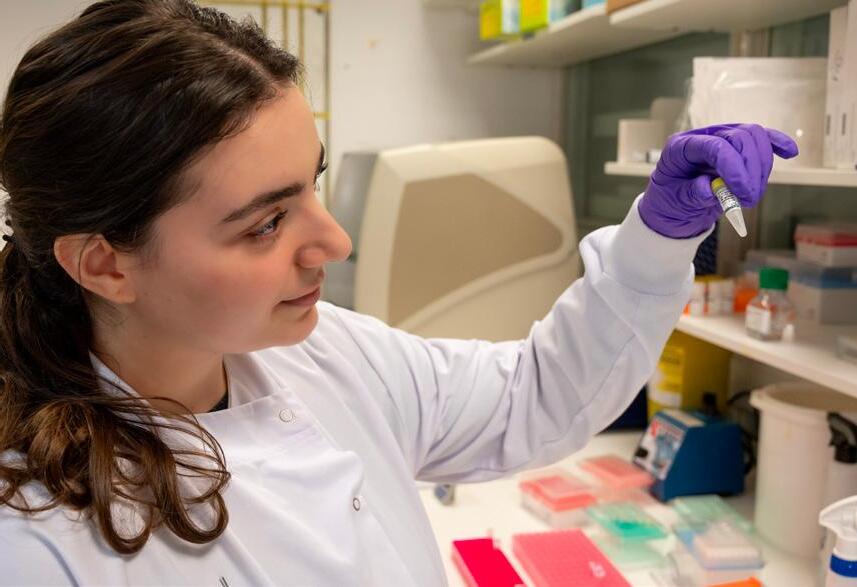
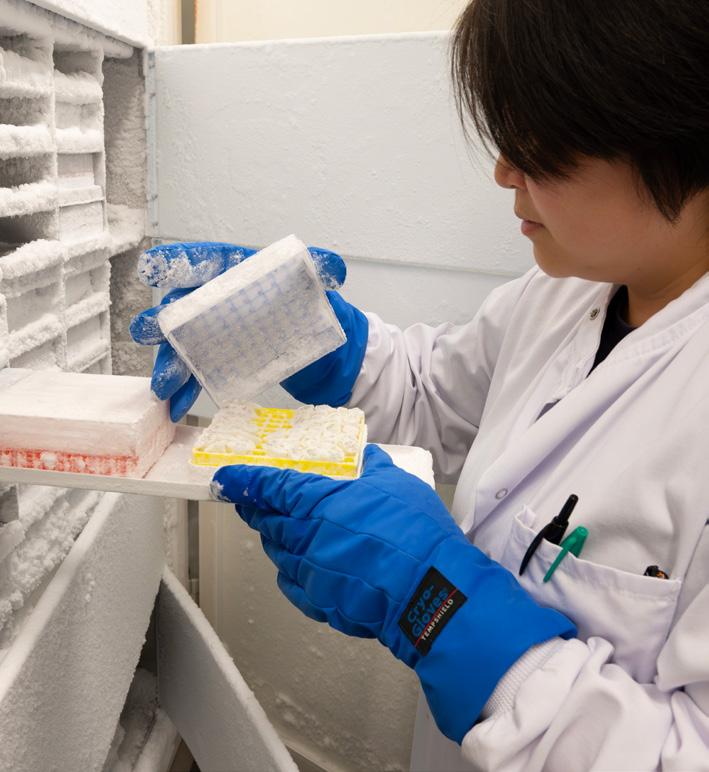
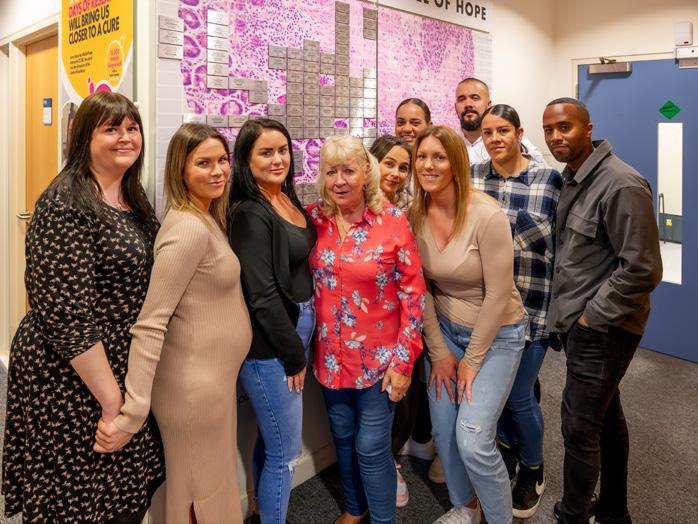
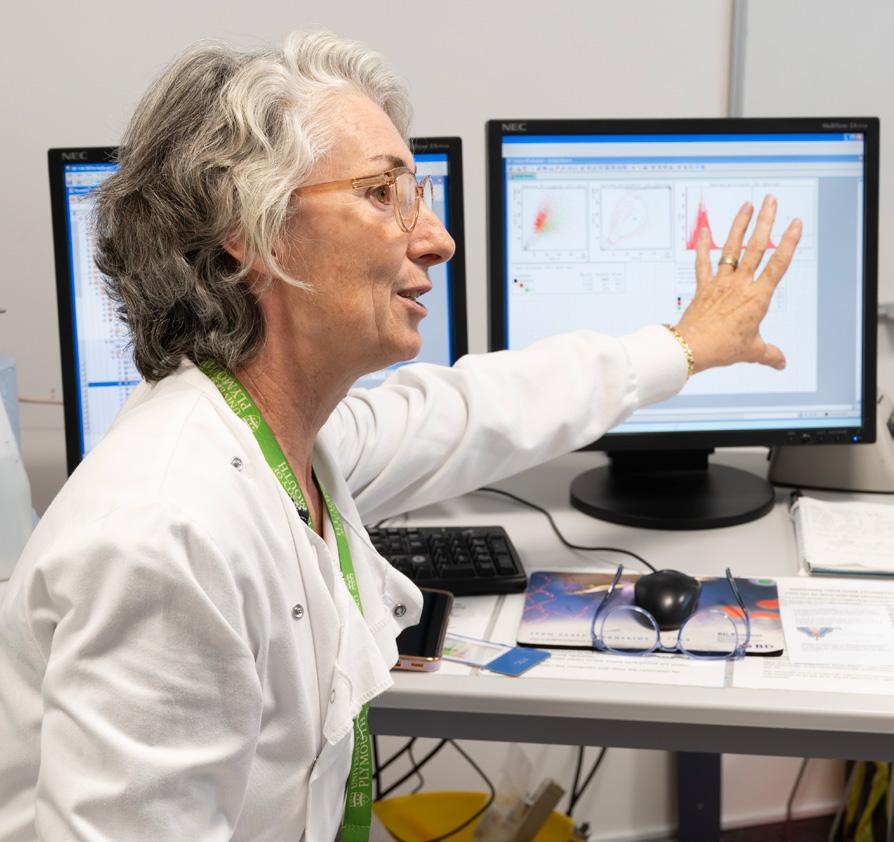

Brain tumour research – a tough nut to crack.
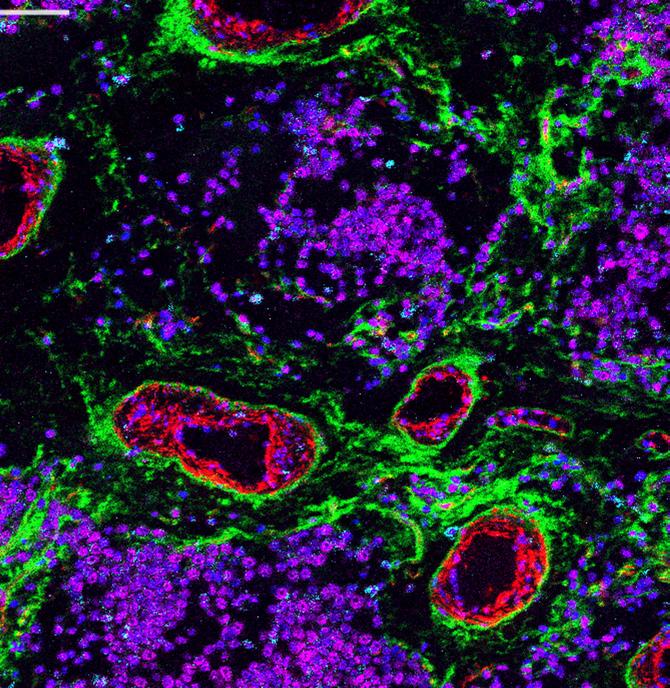
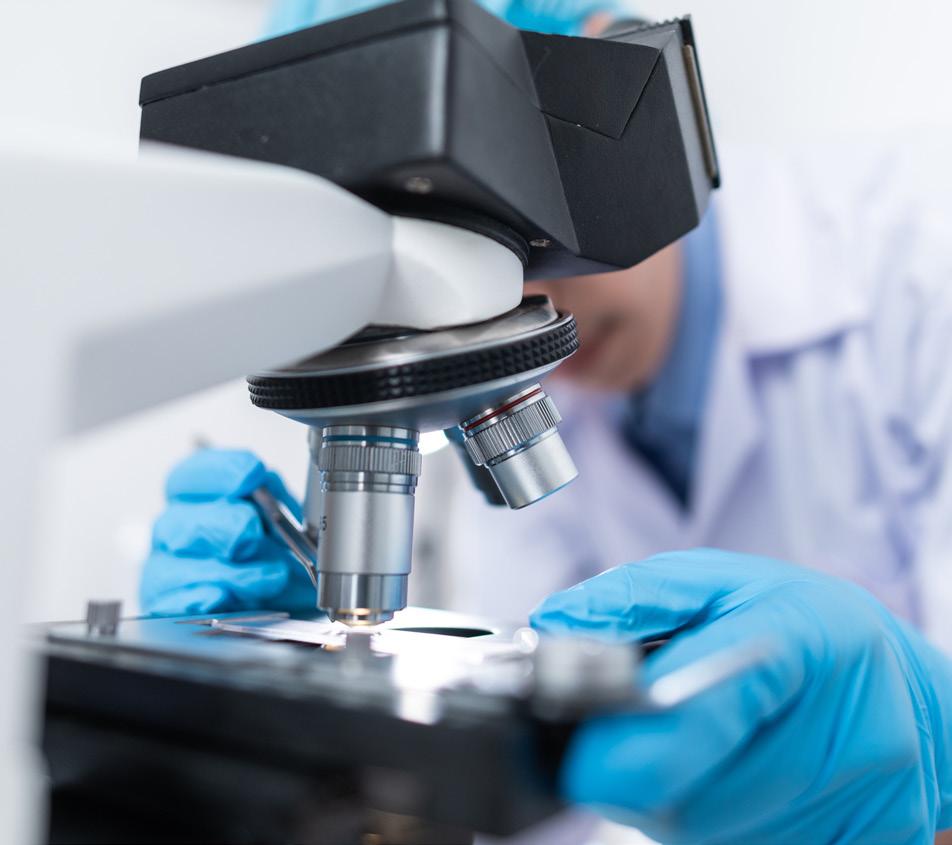
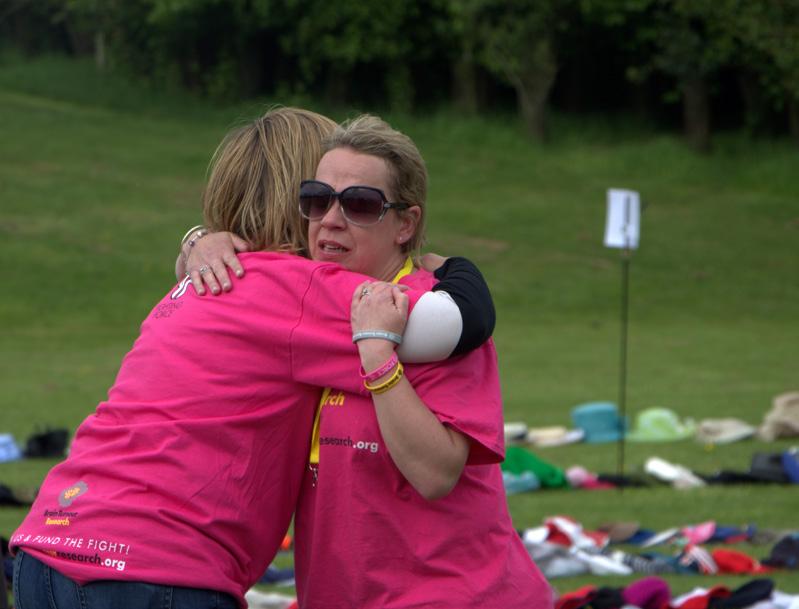
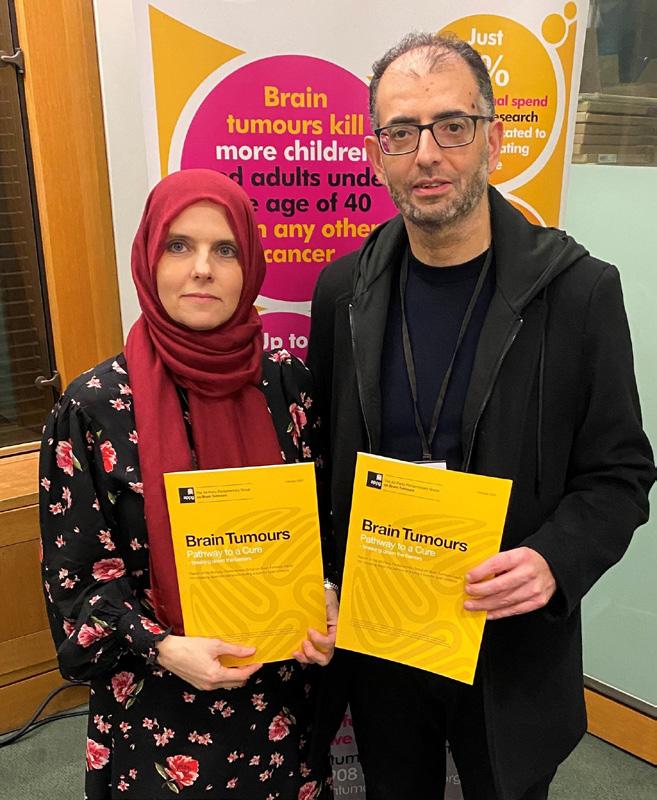
46 Brain Tumour Research – Registered Charity 1153487 (England and Wales) and SC046840 (Scotland). Company Limited by Guarantee 08570737. Report of The Trustees and Accounts, Year Ended 30th June 2023
Easy it’s not.
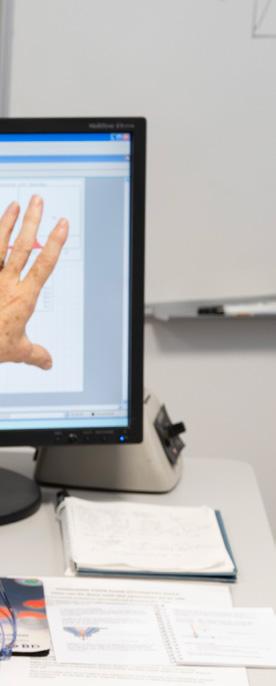
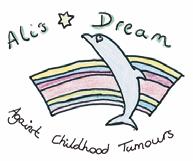
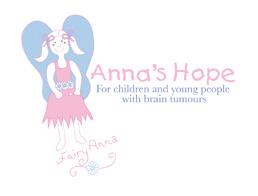
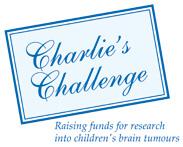
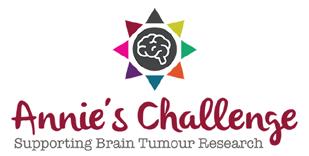
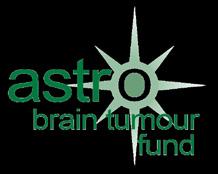
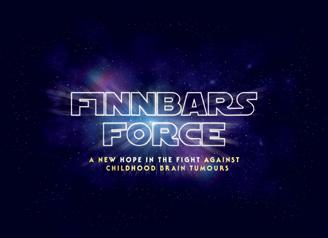


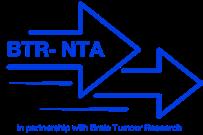

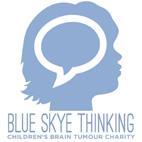

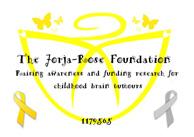


















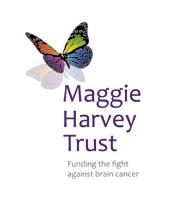
















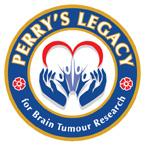








Brain Tumour Research – Registered Charity 1153487 (England and Wales) and SC046840 (Scotland). 47 Company Limited by Guarantee 08570737. Report of The Trustees and Accounts, Year Ended 30th June 2023 Our Fundraising Groups Our Member Charities Together we will find a cure Our Fundraising Partners Leah’s Fairy Fund FUNDRA SING FOR BRAIN TUMOUR RESEARCH RIDE4SIMON n nginsuppo t o b aintumour se h The Lorn’s Legacy T EAM H OPKIN S WINNING FORDID Brain Tumour Research Our Centres of Excellence Funded Initiatives
“Our Centres are attracting outstanding researchers from across the globe, bringing with them expertise from a wide range of backgrounds
simultaneously increasing opportunities for new collaborations. This will bring us closer to finding that key breakthrough that the brain tumour world so desperately needs.”
Dr Karen Noble Director of Research, Policy and Innovation
Tel: 01908 867200
info@braintumourresearch.org
www.braintumourresearch.org
Shenley Pavilions,
Wood, Milton Keynes
Brain Tumour Research, Suite 37,
Chalkdell Drive, Shenley
MK5 6LB
Registered charity number 1153487 (England and Wales) SC046840 (Scotland). Company limited by guarantee number 08570737.
and
Statements for the Year Ended 30th June 2023
Annual Report
Financial
whilst




















 Wendy Fulcher, Co-Founder and Chairman
Wendy Fulcher, Co-Founder and Chairman































 Dr Claire Vinel
Dr Claire Vinel






















 Our Ambassador Sam Suriakumar runs the TCS London Marathon
Our Ambassador Sam Suriakumar runs the TCS London Marathon

































































